Update April 12, 2024
Information for u.s. citizens in the middle east.
- Travel Advisories |
- Contact Us |
- MyTravelGov |

Find U.S. Embassies & Consulates
Travel.state.gov, congressional liaison, special issuance agency, u.s. passports, international travel, intercountry adoption, international parental child abduction, records and authentications, popular links, travel advisories, mytravelgov, stay connected, legal resources, legal information, info for u.s. law enforcement, replace or certify documents.
Share this page:
China Travel Advisory
Travel advisory april 12, 2024, mainland china, hong kong & macau - see summaries.
Updated due to new national security legislation in the Hong Kong Special Administrative Region.
Summary: Reconsider travel to Mainland China due to the arbitrary enforcement of local laws, including in relation to exit bans, and the risk of wrongful detentions.
Exercise increased caution when traveling to the Hong Kong Special Administrative Region (SAR) due to the arbitrary enforcement of local laws .
Reconsider travel to the Macau Special Administrative Region (SAR) due to a limited ability to provide emergency consular services . Exercise increased caution when traveling to the Macau SAR due to the arbitrary enforcement of local laws .
See specific risks and conditions in each jurisdiction .
Mainland China – Level 3: Reconsider Travel
Reconsider travel due to the arbitrary enforcement of local laws , including in relation to exit bans, and the risk of wrongful detentions .
Summary: The People’s Republic of China (PRC) government arbitrarily enforces local laws, including issuing exit bans on U.S. citizens and citizens of other countries, without fair and transparent process under the law.
The Department of State has determined the risk of wrongful detention of U.S. nationals by the PRC government exists in the PRC.
U.S. citizens traveling or residing in the PRC may be detained without access to U.S. consular services or information about their alleged crime. U.S. citizens in the PRC may be subjected to interrogations and detention without fair and transparent treatment under the law.
Foreigners in the PRC, including but not limited to businesspeople, former foreign-government personnel, academics, relatives of PRC citizens involved in legal disputes, and journalists have been interrogated and detained by PRC officials for alleged violations of PRC national security laws. The PRC has also interrogated, detained, and expelled U.S. citizens living and working in the PRC.
PRC authorities appear to have broad discretion to deem a wide range of documents, data, statistics, or materials as state secrets and to detain and prosecute foreign nationals for alleged espionage. There is increased official scrutiny of U.S. and third-country firms, such as professional service and due diligence companies, operating in the PRC. Security personnel could detain U.S. citizens or subject them to prosecution for conducting research or accessing publicly available material inside the PRC.
Security personnel could detain and/or deport U.S. citizens for sending private electronic messages critical of the PRC, Hong Kong SAR, or Macau SAR governments.
In addition, the PRC government has used restrictions on travel or departure from the PRC, or so-called exit bans, to:
- compel individuals to participate in PRC government investigations;
- pressure family members of the restricted individual to return to the PRC from abroad;
- resolve civil disputes in favor of PRC citizens; and
- gain bargaining leverage over foreign governments.
U.S. citizens might only become aware of an exit ban when they attempt to depart the PRC, and there may be no available legal process to contest an exit ban in a court of law. Relatives, including minor children, of those under investigation in the PRC may become subject to an exit ban.
The PRC government does not recognize dual nationality. Dual U.S.-PRC citizens and U.S. citizens of Chinese descent may be subject to additional scrutiny and harassment. If you are a U.S. citizen and choose to enter Mainland China on travel documents other than a U.S. passport and are detained or arrested, the PRC government may not notify the U.S. Embassy or the U.S. Consulates General or allow consular access.
Check with the PRC Embassy in the United States for the most updated information on travel to the PRC. In some limited circumstances travelers to Mainland China may face additional COVID-19 testing requirements to enter some facilities or events.
The Department of State does not provide or coordinate direct medical care to private U.S. citizens abroad. U.S. citizens overseas may receive PRC-approved COVID-19 vaccine doses where they are eligible.
Do not consume drugs in the PRC or prior to arriving in the PRC. A positive drug test, even if the drug was legal elsewhere, can lead to immediate detention, fines, deportation, and/or a ban from re-entering the PRC. PRC authorities may compel cooperation with blood, urine, or hair testing. Penalties for drug offense may exceed penalties imposed in the United States.
Demonstrations : Participating in demonstrations or any other activities that authorities interpret as constituting an act of secession, subversion, terrorism, or collusion with a foreign country could result in criminal charges. Be aware of your surroundings and avoid demonstrations.
XINJIANG UYGHUR AUTONOMOUS REGION, TIBET AUTONOMOUS REGION, and TIBETAN AUTONOMOUS PREFECTURES
Extra security measures, such as security checks and increased levels of police presence and surveillance, are common in the Xinjiang Uyghur Autonomous Region, Tibet Autonomous Region, and Tibetan Autonomous Prefectures. Authorities may impose curfews and travel restrictions on short notice.
If you decide to travel to Mainland China:
- Enter the PRC on your U.S. passport with a valid PRC visa and keep it with you.
- Read the travel information page for Mainland China .
- Enroll in the Smart Traveler Enrollment Program (STEP) to receive alerts and make it easier to locate you in an emergency.
- Avoid demonstrations.
- Exercise caution in the vicinity of large gatherings or protests.
- Avoid taking photographs of protesters or police without permission.
- Keep a low profile.
- If you are arrested or detained, ask police or prison officials to notify U.S. Embassy Beijing or the nearest U.S. Consulate General immediately.
- Review the China Country Security Report from the Overseas Security Advisory Council.
- Do not consume drugs in the PRC or prior to arriving in the PRC.
- Follow the Department of State on Facebook and Twitter . Follow U.S. Embassy Beijing on Twitter , WeChat , and Weibo .
- Visit the Centers for Disease Control and Prevention (CDC) page for the latest Travel Health Information related to the PRC.
- Prepare a contingency plan for emergency situations.
- Review the Traveler’s Checklist .
Hong Kong Special Administrative Region (SAR) – Level 2: Exercise Increased Caution
Exercise increased caution due to the arbitrary enforcement of local laws .
Summary: Hong Kong SAR authorities have dramatically restricted civil liberties since the Government of the People’s Republic of China (PRC) imposed the Law of the PRC on Safeguarding National Security in the Hong Kong SAR on June 30, 2020. Following the Hong Kong SAR government’s enactment of its own Safeguarding National Security Ordinance on March 23, 2024, Hong Kong SAR authorities are expected to take additional actions to further restrict civil liberties.
The 2020 National Security Law outlines a broad range of vaguely defined offenses, such as acts of secession, subversion, terrorism, and collusion with foreign entities. The 2024 Safeguarding National Security Ordinance builds on this framework with additional vaguely defined offenses, such as treason, insurrection, theft of state secrets, sabotage against public infrastructure, and external interference. According to the legislation, these offenses are applicable to foreign nationals within the Hong Kong SAR and to individuals, including U.S. citizens and permanent residents, located outside its borders. Under these provisions, anyone who criticizes the PRC and/or Hong Kong SAR authorities may face arrest, detention, expulsion, and/or prosecution. Hong Kong SAR authorities are attempting to enforce these provisions against individuals, including U.S. citizens and permanent residents, residing outside of their jurisdiction by offering cash rewards for information leading to their arrests in the Hong Kong SAR.
Dual Nationality: The Hong Kong SAR government does not recognize dual nationality. Dual U.S.-PRC citizens and U.S. citizens of Chinese descent may be subject to additional scrutiny and harassment. If you are a dual U.S.-PRC citizen and enter Hong Kong SAR on a U.S. passport, and you are detained or arrested, PRC authorities are under an obligation to notify the U.S. Embassy or a U.S. Consulate General of your detention and to allow U.S. consular officials to have access to you. In practice, however, U.S. consular officers may be prevented from providing consular assistance, even to those who have entered on their U.S. passports. For more information, visit Consular Protection and Right of Abode in HK(SAR) for Dual Nationals - U.S. Consulate General Hong Kong & Macau .
Demonstrations : Participating in demonstrations or any other activities that authorities interpret as constituting an act of secession, subversion, terrorism, or collusion with a foreign country could result in criminal charges under the 2020 National Security Law and/or the 2024 Safeguarding National Security Ordinance. Be aware of your surroundings and avoid demonstrations.
If you decide to travel to the Hong Kong SAR:
- Enter the Hong Kong SAR on your U.S. passport and keep it with you.
- Read the travel information page for the Hong Kong SAR .
- Be aware of your surroundings.
- If you are arrested or detained, ask police or prison officials to notify U.S. Consulate General Hong Kong & Macau immediately.
- Review the China Country Security Report from the Overseas Security Advisory Council.
- Do not consume drugs in the Hong Kong SAR or prior to arriving in the Hong Kong SAR.
- Follow the Department of State on Facebook and Twitter . Follow U.S. Consulate General Hong Kong & Macau on Facebook and Twitter .
- Visit the Centers for Disease Control and Prevention (CDC) page for the latest Travel Health Information related to the Hong Kong SAR.
- Monitor local media, local transportations sites, and apps like MTR Mobile or Citybus for updates.
Macau Special Administrative Region (SAR) – Level 3: Reconsider Travel
Reconsider travel due to a limited ability to provide emergency consular services. Exercise increased caution due to the arbitrary enforcement of local laws.
Summary: The U.S. government has a limited ability to provide emergency services to U.S. citizens in the Macau SAR due to People’s Republic of China (PRC) Ministry of Foreign Affairs travel restrictions on U.S. diplomatic personnel.
Even in an emergency, the PRC Ministry of Foreign Affairs requires all U.S. diplomatic personnel, including those accredited to the Macau SAR, to apply for and receive visas before entering the Macau SAR. Approval takes at least five to seven days, significantly limiting the U.S. government’s ability to offer timely consular services in the Macau SAR.
Dual Nationality: The Macau SAR government does not recognize dual nationality. Dual U.S.-PRC citizens and U.S. citizens of Chinese descent may be subject to additional scrutiny and harassment. If you are a dual U.S.-PRC citizen and enter the Macau SAR on a U.S. passport, and you are detained or arrested, PRC authorities are under an obligation to notify the U.S. Embassy or a U.S. Consulate General of your detention and to allow U.S. consular officials to have access to you. In practice, however, U.S. consular officers may be prevented from providing consular assistance, even to those who have entered on their U.S. passports. For more information, visit Consular Protection and Right of Abode in HK(SAR) for Dual Nationals - U.S. Consulate General Hong Kong & Macau .
Demonstrations : Participating in demonstrations or any other activities that authorities interpret as constituting an act of secession, subversion, terrorism, or collusion with a foreign country could result in criminal charges. Be aware of your surroundings and avoid demonstrations.
If you decide to travel to the Macau SAR:
- Enter the Macau SAR on your U.S. passport and keep it with you.
- Read the travel information page for the Macau SAR .
- If you are arrested or detained, ask police or prison officials to notify Review the China Country Security Report from the Overseas Security Advisory Council.
- Do not consume drugs in the Macau SAR or prior to arriving in the Macau SAR.
- Follow the Department of State on Facebook and Twitter . Follow U.S. Consulate General Hong Kong & Macau on Facebook and Twitter .
- Visit the Centers for Disease Control and Prevention (CDC) page for the latest Travel Health Information related to the Macau SAR.
- Monitor local media and the Macau Government Tourism Office website for updates.
- Review your flight status with your airline or at the Macau International Airport website.
Travel Advisory Levels
Assistance for u.s. citizens, search for travel advisories, external link.
You are about to leave travel.state.gov for an external website that is not maintained by the U.S. Department of State.
Links to external websites are provided as a convenience and should not be construed as an endorsement by the U.S. Department of State of the views or products contained therein. If you wish to remain on travel.state.gov, click the "cancel" message.
You are about to visit:

Search Smartraveller

Latest update
Exercise a high degree of caution in China overall.
Other levels apply in some areas.
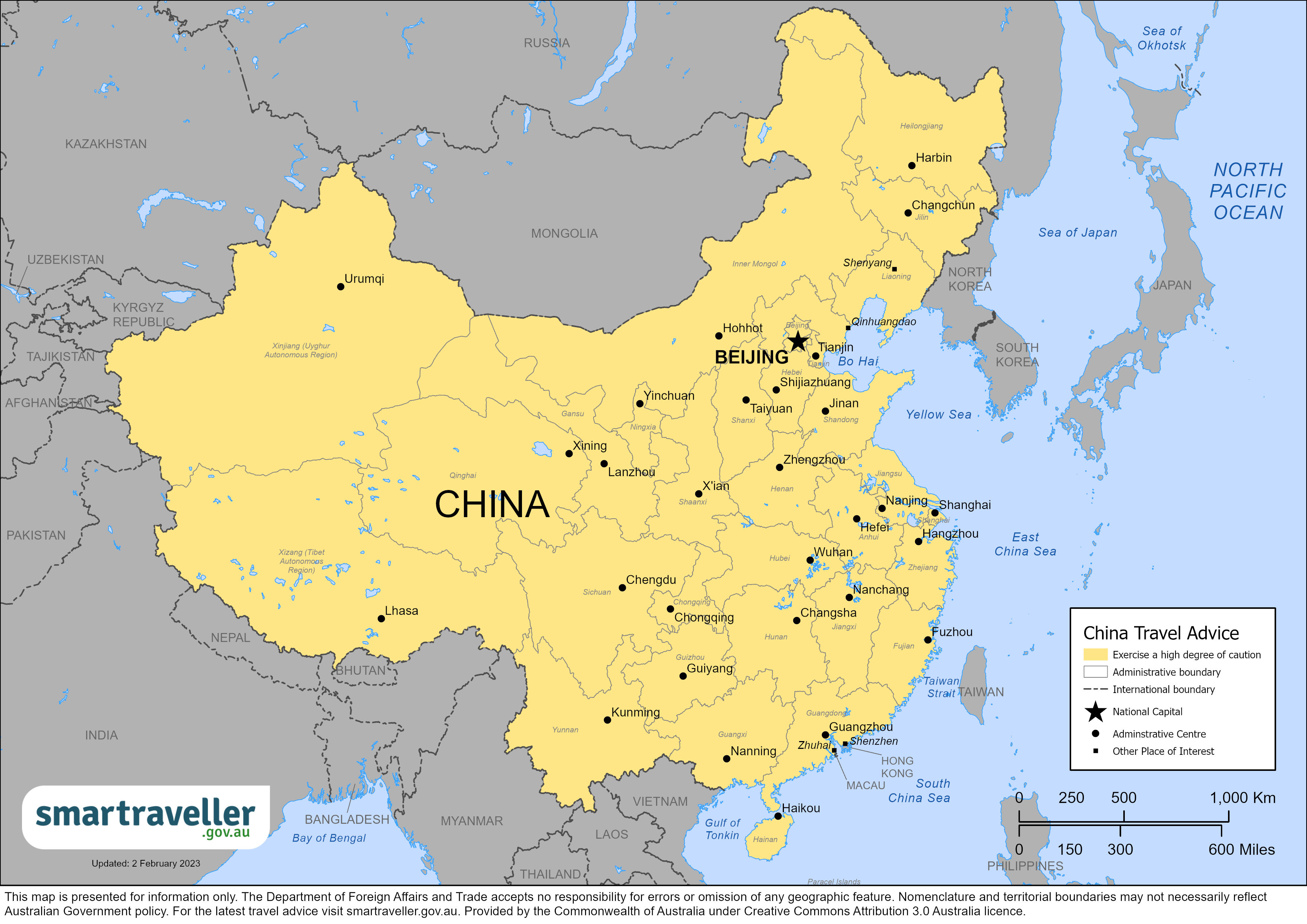
China (PDF 1.07 MB)
Asia (PDF 2.21 MB)
Local emergency contacts
Fire and rescue services, medical emergencies, advice levels.
Exercise a high degree of caution in China overall.
Exercise a high degree of caution in Tibet and Xinjiang.
Exercise a high degree of caution in Tibet and Xinjiang due to the security situation and associated measures.
- Petty crime occurs. Criminals target travellers in crowded areas, including on public transport. Resisting can lead to violence.
- Scams targeting travellers can lead to loss of money, violence and serious assault. Report scams to the nearest police station.
- Armed attacks are a risk in remote border regions. Be careful if travelling in these areas.
- The Chinese Government strictly controls demonstrations. Authorities may arrest protesters. Avoid protests and large gatherings. Don't photograph or video protests.
- Increased security measures are in place in Xinjiang. Be ready to show photo ID if asked.
- There's civil unrest and political tension in Tibet. Get permission from Chinese authorities before you go. You can only travel to Tibet as part of an organised tour.
Full travel advice: Safety
- Tap water in China may not be safe to drink. Drink only bottled water with intact seals.
- People have died from bird flu in China. Stay away from live poultry. When preparing food, handle poultry properly and ensure it's thoroughly cooked.
- HIV/AIDS is a significant risk in China. Take precautions if engaging in activities that expose you to the risk of infection. Ask for sterilised equipment when receiving medical treatment.
- Animal and human rabies and hand, foot and mouth disease are common. Be careful with both wild and domestic animals in China. Wash your hands carefully and regularly. Take other hygiene precautions.
- High pollution levels are a problem in major cities. Follow the advice from local authorities on days with harmful pollution.
Full travel advice: Health
- The Australian Government can't intervene in the Chinese justice process. We also can't help if you're a dual national and don't enter China on your Australian passport.
- Chinese law treats a person aged 12 years and older as an adult. China has strict laws and severe criminal punishments including the death penalty and life imprisonment.
- You must always carry identification and show it to the police if they ask.
- Chinese authorities undertake random drug testing on foreign nationals and can prosecute individuals who return a positive test result regardless of when or where the drugs were taken .
- Many business and employment issues may be considered criminal matters in China. Penalties are severe. Get professional legal advice before entering into any employment or commercial contract in China.
- If you're a former Chinese citizen, authorities may treat you as a citizen and refuse access to Australian consular services. Get legal advice if you're unsure of your citizenship status under Chinese law.
Full travel advice: Local laws
- Entry and exit conditions can change at short notice. You should contact the nearest embassy or consulate of China for the latest details.
- China is gradually reintroducing visas on arrival, including transit visas. You may be permitted to enter China if you’re a foreign national holding a valid residence permit for work, personal matters or reunion. Australians should also contact the nearest Chinese embassy or consulate to confirm visa validity and eligibility, and other travel requirements.
Flights between China and Australia have increased but are less frequent than pre-COVID-19.
- China has implemented random COVID-19 testing for inbound travellers arriving at airports. Authorities have advised that no follow-up action will be taken if travellers test positive on arrival, but they may be advised to seek medical treatment.
- You must register your place of residence with the local Public Security Bureau. This will be part of the standard check-in process if you stay at a hotel.
Full travel advice: Travel
Local contacts
- The Consular Services Charter tells you what the Australian Government can and can't do to help when you're overseas.
- For consular services in China, contact the Australian Embassy in Beijing or our Consulates-General in Shanghai , Guangzhou, Chengdu , and Shenyang .
- To stay up to date with local information, follow the Embassy's social media accounts.
Full travel advice: Local contacts
Full advice
Petty crime.
Petty crime occurs, including:
- pickpocketing
- bag-snatching
- theft of laptops, passports and mobile phones
If you resist, you can be injured if criminals turn violent.
Criminals target travellers in crowded areas, including on transport.
People have reported assaults and robberies , particularly in areas popular with expats. This includes bar and shopping precincts in major cities .
There are scams that target travellers.
Scammers invite travellers for a massage, teahouse service, or nearby cafes and bars. They offer various reasons and may say they wish 'to practise their English'.
Afterwards, they present travellers with an inflated bill. They won't let the traveller leave until they pay the bill by credit card.
Sometimes travellers are asked to carry concealed drugs out of China.
Never carry parcels or luggage for others.
Always pack your own bags.
ATM scams occur. Sometimes scammers set up fake ATMs that take the user's card.
Only use ATMs inside a secure place such as a bank or shopping centre. Do this during daylight hours.
If you're the victim of a crime or scam, report it to the nearest police station immediately.
Always obtain a police report when reporting a crime.
Fake money scams
Be careful of scams if paying a taxi fare with a RMB100 note. The taxi driver may swap the note for a fake note. They will then return the fake note and refuse to accept it as payment because it’s counterfeit.
Armed bandit attacks are a risk in remote areas bordering:
Be careful if travelling in these areas.
Cyber security
You may be at risk of cyber-based threats during overseas travel to any country. Digital identity theft is a growing concern. Your devices and personal data can be compromised, especially if you’re connecting to Wi-Fi, using or connecting to shared or public computers, or to Bluetooth.
Social media can also be risky in destinations where there are social or political tensions, or laws that may seem unreasonable by Australian standards. Travellers have been arrested for things they have said on social media. Don't comment on local or political events on your social media.
More information:
- Cyber security when travelling overseas
Civil unrest and political tension
Public protests and events that draw large groups of people can turn violent.
The Chinese Government prohibits demonstrations they haven't approved. Authorities may arrest protesters.
Avoid protests, demonstrations and large gatherings.
Don't photograph, film or participate in protests or other acts that authorities may consider provocative.
- Demonstrations and civil unrest
Xinjiang Uyghur Autonomous Region (Xinjiang)
Increased security measures are in place in Xinjiang.
People of Uyghur descent are particularly affected.
Security checks in major cities in Xinjiang are common. Be ready to show photo ID if asked.
Violent incidents causing deaths and injuries have occurred across Xinjiang.
The government may restrict movement and communications in Xinjiang with little warning.
Tibet Autonomous Region (Tibet)
In the past, protests have turned violent and people have been killed or injured.
If you're travelling to Tibet, get permission from Chinese authorities first.
You must also apply for a Tibet Entry Permit from the Tibet Tourism Bureau.
You can only lodge applications for Tibet Entry Permits through specialised travel agents in China.
You can only travel as part of an organised tour.
See Travel
Terrorism is a threat worldwide.
Attacks could be targeted or random. They may include places travellers and expats visit.
In recent years, terrorist and other violent attacks have caused injuries and deaths in public places. Targets include railway stations and markets.
You could become the victim of violence directed at others.
Climate and natural disasters
China experiences natural disasters and severe weather , including:
- earthquakes
Typhoons can happen along the southern and eastern coasts between May and November.
The direction and strength of typhoons can change with little warning.
If there's a typhoon:
- you may get stuck in the area
- flights and other transport could be delayed or suspended
- access to seaports may be affected
- adequate shelter may not be available
- available transport may fill quickly
If a typhoon is approaching:
- know the evacuation plan for your accommodation or cruise ship
- identify your local shelter
- secure your passport in a safe, waterproof location
- closely monitor alerts and advice from authorities such as the Global Disaster Alert and Coordination System
- keep in contact with your friends and family
If you plan to travel, contact your airline for the latest flight information.
- World Meteorological Organisation Severe Weather Information Centre
- China Meteorological Administration
Earthquakes and tsunamis
China can experience earthquakes and large, destructive tsunamis.
If there's an earthquake or tsunami:
- follow the advice of local authorities
- monitor the media for updates
Check with the Tsunami Warning Centre for updates on seismic activity and tsunamis.
If you're near the coast, move to high ground straight away if advised, or if you:
- feel a strong earthquake that makes it hard to stand up
- feel a weak, rolling earthquake that lasts a minute or more
- see a sudden rise or fall in sea level
- hear loud and unusual noises from the sea
Don't wait for official warnings such as alarms or sirens. Once on high ground, monitor local media.
Travel insurance
Get comprehensive travel insurance before you travel.
Your policy needs to cover all overseas medical costs, including medical evacuation. The Australian Government won't pay for these costs.
If you can't afford travel insurance, you can't afford to travel. This applies to everyone, no matter how healthy and fit you are.
If you're not insured, you may have to pay many thousands of dollars up-front for medical care.
- what activities and care your policy covers
- that your insurance covers you for the whole time you'll be away
Physical and mental health
Consider your physical and mental health before you travel, especially if you have an existing medical condition.
See your doctor or travel clinic to:
- have a basic health check-up
- ask if your travel plans may affect your health
- plan any vaccinations you need
Do this at least 8 weeks before you leave.
If you have immediate concerns for your welfare or the welfare of another Australian, call the 24-hour Consular Emergency Centre on +61 2 6261 3305 or contact your nearest Australian Embassy, High Commission or Consulate to discuss counselling hotlines and services available in your location.
- General health advice
- Healthy holiday tips (Healthdirect Australia)
Medications
Not all medication available over the counter or by prescription in Australia is available in other countries. Some may even be considered illegal or a controlled substance, even if prescribed by an Australian doctor.
If you plan to bring medication, check if it's legal in China. Take enough legal medicine for your trip.
Carry a copy of your prescription or a letter from your doctor stating:
- what the medication is
- your required dosage
- that it's for personal use
Health risks
Depending on your location, tap water in China may be unsafe to drink.
Drink only bottled water with sealed lids.
Bird flu (avian influenza)
People have died from avian influenza in China. Avian influenza virus strains continue to circulate in poultry in China.
The primary source of infection seems to be poultry handled in poultry markets.
To protect yourself from avian influenza:
- stay away from live poultry
- don't visit live bird and animal markets, including 'wet' markets and poultry farms
- practise good personal hygiene
When preparing food, handle poultry properly. Thoroughly cook all parts of the poultry.
- Avian influenza (WHO)
- Infectious diseases
HIV/AIDS is a significant risk in China.
Take precautions if you engage in activities that expose you to the risk of infection.
If you need medical treatment, you could be exposed to unsafe blood and blood products. This is a particular risk in regional China.
Ask for sterilised equipment. You may need to pay for new syringes in hospitals or clinics.
Insect-borne illnesses
Japanese encephalitis is widespread in rural southern China from June to August. The disease is also known as encephalitis B. A vaccine is available.
The risk of malaria increases during warm weather and is more significant in rural areas, particularly in the provinces of:
- Tibet (Zanbo Valley areas only)
Dengue cases have risen sharply, especially in Guangdong and Guangzhou. Risks increase during the wet season.
To protect yourself from disease:
- make sure your accommodation is insect-proof
- use insect repellent
- wear long, loose, light-coloured clothing
- consider taking medicine to prevent malaria
- get vaccinated against Japanese encephalitis
Animal and human rabies are common. Health authorities report many cases each year.
Be careful with both wild and domestic animals in China.
If you're bitten or scratched by an animal, get medical help immediately.
Hand, foot and mouth disease
Hand, foot and mouth disease (HFMD) is common. Sometimes serious outbreaks happen.
Outbreaks usually start in March or April and peak in May. However, outbreaks can continue until October each year.
The disease mainly affects children under the age of 10 years. Adult cases, particularly in young adults, are not unusual.
People with HFMD experience fever, blisters and rashes on the hands, feet and buttocks.
The disease is spread by direct contact with nose and throat discharges and faeces of infected people.
To protect yourself from illness:
- wash your hands carefully and regularly
- take other hygiene precautions
High pollution levels are a problem.
Children, the elderly and those with pre-existing heart and lung conditions may be especially affected by pollution.
Authorities issue red alerts when pollution is expected to be especially bad.
When a red alert is in place, authorities:
- close schools
- limit car use
- suspend construction activity
Flights are regularly delayed in China because of smog.
Dust storms occur across the north of China. They can:
- cause eye, nose, mouth and throat irritations
- make heart and lung problems worse
Get medical advice if you're worried about air pollution.
Follow the advice from local authorities about days with bad pollution and how to reduce your exposure.
- Air Quality Index
- US Embassy, Beijing
- Air pollution
Altitude sickness
Parts of China are at altitudes of over 3,000m, including:
- parts of Xinjiang
- Western Sichuan
If you travel to those areas, you may get altitude sickness .
People with lung, heart or chest problems should take extra care. Even if you're healthy, you can still be affected.
Symptoms of altitude sickness include:
- coordination problems
In severe cases, fluid can build up in your lungs, brain or both, which can be fatal.
To protect yourself from altitude sickness:
- ascend slowly, especially above an altitude of 2500m
- rest when needed and don't push your body
- avoid alcohol and cigarettes
If you're affected by severe altitude sickness, get to lower ground as soon as possible.
Medical care
Medical facilities.
International standard medical services in China are expensive.
If you plan on staying in China for a while:
- find out about local health insurance
- ask your employer if they provide health cover
Some hospitals in major cities have special departments for treating foreigners.
However, the standard of medical care and the range of medications is often limited, especially outside major cities.
Medical staff in rural areas may not be adequately trained.
Hospitals and doctors may ask for an up-front cash payment before treating you. This includes emergency care.
Medical evacuation from China can be very expensive.
Medical tourism
Travel to China for medical treatment is increasing.
Research and choose your medical service providers carefully. Ask health professionals and former patients about the quality.
Avoid uncertified medical service providers. Their standards may be poor, and they may be unable to provide the advertised medical care.
You're subject to all local laws and penalties, including those that may appear harsh by Australian standards. Research local laws before travelling.
If you're arrested or jailed, the Australian Government will do what it can to help you under our Consular Services Charter . But we can't get you out of trouble or out of jail.
The Australian Government can't intervene in the Chinese justice process.
In China, authorities treat a person aged 12 years and above as an adult under the law.
If detained, a person of this age will be:
- held with adults
- subject to the same conditions and legal processes as adults
The Australian Government can't help you if you're a dual national and you travel on your:
- Chinese passport
- Hong Kong or Macau Mainland Travel Permit
- identity card issued by Taiwan
- any non-Australian foreign passport
- Death penalty
China has the death penalty for drug offences and other serious crimes. Under Chinese criminal law, it's possible for espionage and other national security offences to attract serious penalties, from lengthy custodial sentences to the death penalty.
If you're sentenced to death, it's unlikely that Chinese authorities will grant you leniency.
Penalties for all types of drug offences including use, possession, manufacturing, selling or trafficking are severe and include life in prison or the death penalty.
Authorities strictly enforce these laws, even for small quantities of 'soft' drugs, such as marijuana. Laws apply to people aged 12 years and older.
Authorities conduct random drug tests. Police raids on nightclubs and bars frequented by foreigners have increased, with patrons subjected to urine and / or hair tests. A positive drug test can result in fines, detention and deportation, regardless of when or where the drugs were used.
Authorities have executed foreigners for drug offences.
- Carrying or using drugs
Legal proceedings and investigations
Authorities may not allow you to leave China if you're involved in a:
- criminal matter or investigation
- civil or commercial dispute
Sometimes people are only aware of an exit ban on them once they try to leave China.
Exit bans can affect you even if you're not directly involved in the legal proceedings. Authorities have stopped some Australians from leaving China because of a dispute involving family members. Sometimes it is years before authorities allow people to leave China.
If you're involved in local legal matters:
- get professional advice
- be aware of your rights and responsibilities
China has strict laws on national security, which it updates from time to time. These laws can be interpreted broadly and applied expansively and harshly. Chinese authorities may define certain behaviours and activities as endangering national security that would not be considered as such in Australia. This could include activities that occurred outside of China.
Authorities have detained foreigners on allegations of 'endangering national security'. Australians may be at risk of arbitrary detention or harsh enforcement of local laws, including broadly defined National Security Laws. Under Chinese criminal law, it's possible for espionage and other national security offences to attract serious penalties, from lengthy custodial sentences to the death penalty.
In China, it's illegal to:
- test positive for drugs (even if you used drugs before you arrived in China)
- demonstrate without prior approval from the government
- preach, distribute religious literature and associate with unapproved religious groups
- take part in any Falun Gong activities
- gamble or promote gambling activities
- engage in prostitution
- take photos of military or government buildings without official approval.
If you break these laws, you could be:
Registration and identification
Under Chinese law, you must register your place of residence with the local Public Security Bureau. You must do this within 24 hours of arriving and each time you change your residential location.
Staff do this as part of the standard check-in process if you stay at a hotel.
If you're staying elsewhere, such as with family or friends, visit the nearest police station. Present your passport and a valid Chinese visa.
You must always carry identification and show it to the police if they ask for it.
Authorities will accept your passport or a Chinese residence card as forms of identity.
If you don't register your place of residence or carry identification, authorities can fine or detain you.
LGBTQIA+ laws
Homosexuality is not illegal in China but be aware of local sensitivities.
- Advice for LGBTQIA+ travellers
Australian laws
Some Australian criminal laws still apply when you're overseas. If you break these laws, you may face prosecution in Australia.
- Staying within the law
- Doing business in China
China has experienced higher numbers of commercial disputes involving Australians in recent years.
Before starting business relationships:
- investigate the market
- conduct appropriate due diligence
Get professional legal advice before entering into any contract in China. This includes residential leases and business contracts.
Business versus criminal matters
Many business issues Australians consider civil or commercial are classified as criminal matters in China. This is especially the case if state enterprises or state assets are involved.
Penalties for commercial and economic crimes are often severe.
Cases of Australians and other foreigners being held against their will at their workplace have increased. These incidents involved other companies or employees trying to resolve business and employment disputes. They do this through protests, and often with threats of violence.
- Doing business
- Living or working overseas
Employment in China
Disputes over working and living conditions for Australians working in China are common. This is particularly the case for those teaching English.
If you’re considering travel to China for work:
- verify the true nature of the work on offer
- make sure you have the correct visa before you arrive
Authorities can fine or detain you if you don't maintain a valid visa.
Get professional legal advice before signing any contract in Australia or China.
Carefully check local laws about business or other activities you wish to undertake in China.
Employment contracts may contain conditions that disadvantage you. For example, if your contract is terminated early, conditions may state that:
- you give up your right to a return air ticket
- your employer may withhold your pay
Don't surrender your passport to your employer for 'safe-keeping.' Businesses with a good reputation won't ask you to do this.
Dual citizenship
The Chinese Government doesn't recognise dual nationality. It won't let us provide consular help to Chinese-Australian dual nationals who travel on their:
If you're a Chinese-Australian dual national:
- travel on your Australian passport
- get a visa to China
- always present yourself as an Australian citizen
If you're a former Chinese citizen, Chinese authorities may:
- treat you as a Chinese citizen
- refuse you access to Australian consular services
This can happen even if you entered China on an Australian or other foreign passport and you:
- haven't renounced your citizenship according to Chinese law
- haven't formally advised the Chinese authorities of your Australian citizenship
- continue to maintain a Chinese passport or household registration
Authorities may not allow certain categories of Chinese citizens, such as state officials, to renounce their Chinese nationality under Chinese law.
Get professional legal advice if you're unsure of your citizenship status under Chinese law.
If your child is born in China and you plan to get Australian citizenship by descent, contact the Australian Department of Home Affairs for advice.
If one parent is from mainland China, authorities will consider a child born in China to be a Chinese national.
Local authorities may not recognise the child's Australian citizenship and passport.
Contact the local Entry and Exit Administration Bureau for details.
- Dual nationals
Visas and border measures
Every country or territory decides who can enter or leave through its borders. For specific information about the evidence you'll need to enter a foreign destination, check with the nearest embassy, consulate or immigration department of the destination you're entering.
Australians intending to travel to China should contact the nearest Chinese embassy/consulate to confirm visa eligibility and other travel requirements.
China is gradually reintroducing visas on arrival, including transit visas. You may need a full visa to travel to China, even as a tourist.
If you need a full visa, you must get this before you travel.
See the Embassy of the People's Republic of China for eligibility requirements and visa types.
Foreigners holding valid Chinese residence permits for work, personal matters and reunion may be able to enter China without applying for new visas. Contact your nearest Chinese embassy/consulate to confirm your visa remains valid or to apply for a new visa.
If you're already travelling or living in China, contact the Foreigner's Entry and Exit Administration Section of the local Public Security Bureau (PSB) for visa information.
Authorities will scan your fingerprints when you arrive if you're aged between 14 and 70 years.
Authorities have strict penalties for visa violations. Penalties include:
- fines imposed for each day overstayed, including if you’re in detention
- detention from 5 to 30 days
Make sure you leave China before your visa expires.
Entry and exit conditions can change at short notice. Contact the nearest embassy or consulate of China for details about visas, currency, customs and quarantine rules.
Border measures
You no longer require a negative COVID-19 test to enter China.
China has implemented random COVID-19 testing for inbound travellers arriving at airports. Authorities have advised that no follow-up action would be taken if travellers test positive on arrival, but they may be advised to seek medical treatment.
Travel to Hong Kong and Macau
Hong Kong and Macau are Special Administrative Regions (SAR). They have separate visa and entry rules to mainland China.
If you plan to leave mainland China to visit Hong Kong or Macau, you may need a new Chinese visa to re-enter mainland China. Get the correct visa before you leave Australia.
You may be asked to present your previous passport and Chinese visa if you:
- intend to apply for a visa at the border of Shenzhen and Hong Kong, or Zhuhai and Macau, and
- you held a Chinese visa in a recently replaced passport
If you've visited China before, authorities may deny you a visa-on-arrival if you can't show your previous China visa.
Some visas issued in Hong Kong or at Hong Kong-Macau-Chinese mainland border crossings are valid for limited travel to designated areas only, such as:
- other areas in Guangdong Province
Using these permits to travel to other parts of China is illegal. Carefully check your visa limitations.
- Hong Kong travel advice
- Macau travel advice
Other formalities
If you’re a parent of a newborn baby born in China, you must register the child with the local Public Security Bureau. You must do this within 30 days of the child's birth and will require the child’s birth certificate for registration .
Apply for a Chinese visa in the child's passport. The child will need a valid visa to leave China.
For the registration process you need:
- the child's birth certificate
- parents' passports
- child's passport
For citizenship issues, see the 'Dual citizenship' section under Laws .
Some countries will only let you enter if your passport is valid for 6 months after you plan to leave that country. This can apply even if you're transiting or stopping over.
Some foreign governments and airlines apply the rule inconsistently. Travellers can receive conflicting advice from different sources.
You can end up stranded if your passport is not valid for more than 6 months.
The Australian Government does not set these rules. Check your passport's expiry date before you travel. If you're not sure it'll be valid long enough, consider getting a new passport .
Lost or stolen passports
Your passport is a valuable document. It's attractive to people who may try to use your identity to commit crimes.
Some people may try to trick you into giving them your passport. Always keep it in a safe place.
If your passport is lost or stolen, tell the Australian Government as soon as possible:
- In Australia, contact the Australian Passport Information Service .
- If you're overseas, contact the nearest Australian embassy, high commission or consulate .
If you get a new passport while in China, you must get a new Chinese visa. Otherwise, you won't be able to leave China.
Chinese authorities can take up to 10 working days to issue a visa. It can take longer during Chinese holiday periods.
Authorities won't speed up the process to meet your travel or flight schedule.
To replace your passport and visa:
- get an official report from the local police
- get a replacement passport from the nearest Australian embassy, high commission or consulate
- apply at the Foreigners Entry and Exit Administration Section of the local Public Security Bureau for a replacement Chinese visa in your new passport
You can use the police report when checking in to a hotel.
Passport with ‘X’ gender identifier
Although Australian passports comply with international standards for sex and gender, we can’t guarantee that a passport showing 'X' in the sex field will be accepted for entry or transit by another country. Contact the nearest embassy or consulate of your destination before you arrive at the border to confirm if authorities will accept passports with 'X' gender markers.
- LGBTQIA+ travellers
The currency in China is the Renminbi (RMB).
Chinese law limits the amount of foreign currency you can carry in and out of China.
If you're carrying more than $US5,000 cash or the same amount in another currency, you must declare it when you arrive in China.
Keep the declaration. You need to show it to customs officials when you leave.
If you plan to leave China carrying more than $US5,000 or the same amount in another currency, you need permission from a Chinese bank.
You can't leave China with more than $US10,000 or the same amount in foreign currency.
ATMs are widely available in major Chinese cities. They accept all major credit cards.
Credit cards are widely accepted in major cities, especially in international hotels and restaurants.
In smaller cities, you may find it harder to use international cards.
Local travel
Authorities restrict travel by foreigners in China.
If you plan to travel outside major tourist areas, check that the area is 'open to foreigners'. For example, restrictions apply near military installations and some border areas.
Travel and living conditions vary greatly between cities and less developed rural areas.
In rural areas, you may have trouble accessing these services:
- landline phone
- mobile phone
Driving permit
All drivers must hold a valid Chinese driver's licence.
Foreign driver's licences and International Driving Permits (IDP) aren't valid in mainland China.
Long-term residents can apply for a Chinese driver's licence at their local Vehicle Management Office.
If you're going to China on a visa with less than 90 days validity, you may be able to get a provisional driver's licence. This will be valid for the length of your visa.
If you're hiring a car in China, check driving licence requirements with your car hire company.
Age and health restrictions apply and vary depending on the class of driver's licence.
Road travel
Travel by road is dangerous because of the following:
- poorly maintained roads
- aggressive driving
You're more likely to be killed in a car accident in China than in Australia.
- Driving or riding
Motorcycles
To ride a motorcycle, you must hold a valid Chinese motorcycle licence.
Australian motorcycle licences and International Driving Permits (IDP) issued for motorcycles aren't valid in mainland China.
Rules for applying for a motorbike licence, including a provisional motorcycle licence, are similar to those for cars. Contact your local Vehicle Management Office.
You don't need a licence to ride an electric bike.
Check your insurance covers you for riding all types of motorised bikes.
Always wear a helmet.
Use only licensed taxis or limousine services with a good reputation, preferably those arranged through your hotel.
Always insist that the meter is used.
Most taxis in China don't have seatbelts.
Taxi drivers may swap legitimate RMB100 notes for fake notes. They will then return the fake note and refuse to accept it as payment because it’s counterfeit.
Ridesharing apps are widely used in major Chinese cities.
Public transport
Tour operators, public buses and ferries might not meet safety standards, especially in rural areas.
Transport operators may not:
- provide adequate safety equipment
- maintain vehicles and equipment
- have safety precautions in place
Always use available safety equipment, such as lifejackets or seatbelts.
If appropriate safety equipment isn't available, use another provider.
- Transport and getting around safely
- Travelling by boat
Many airlines have temporarily reduced or stopped flights to China. Further travel restrictions can come into effect at short notice.
DFAT doesn't provide information on the safety of individual commercial airlines or flight paths.
Check China's air safety profile with the Aviation Safety Network.
Contact your airline or travel agent for up-to-date information on domestic and international flights and transport options.
Emergencies
Depending on what you need, contact your:
- family and friends
- travel agent
- insurance provider
Always get a police report when you report a crime.
Your insurer should have a 24-hour emergency number.
Consular contacts
Read the Consular Services Charter for what the Australian Government can and can't do to help you overseas.
For consular services in China, contact the Australian Embassy in Beijing or our Consulates-General in Shanghai, Guangzhou, Chengdu and Shenyang.
Check the relevant website for details about opening hours and any temporary closures.
Australian Embassy, Beijing
21 Dongzhimenwai Dajie Sanlitun, Chaoyang District, Beijing 100600 Phone: (+86 10) 5140 4111 Fax: (+86 10) 5140 4292 Website: china.embassy.gov.au Social media: WeChat , Twitter
Australian Consulate General, Chengdu
27th Floor, Square One 18 Dongyu Street, Jinjiang District Chengdu 610016 Phone: (+86 28) 6268 5200 Fax: (+86 28) 6268 5222 Email: [email protected] Website: chengdu.china.embassy.gov.au
Australian Consulate General, Guangzhou
12th Floor, Development Centre No. 3 Linjiang Road, Zhujiang New City Guangzhou 510623 Phone: (+86 20) 3814 0111 Fax: (+86 20) 3814 0112 Website: guangzhou.china.embassy.gov.au
Australian Consulate General, Shanghai
Level 22, CITIC Square 1168 Nanjing Xi Lu Shanghai 200041 Phone: (+86 21) 2215 5200 Fax: (+86 21) 2215 5252 Website: shanghai.china.embassy.gov.au
Australian Consulate-General, Shenyang
Level 19, China Resources Building, Tower A 286 Qingnian Avenue, Heping District, Shenyang, 110004 Phone: (+86 24) 8610 6100 Fax: (+86 24) 8163 0288 Email: [email protected] Website: shenyang.consulate.gov.au
24-hour Consular Emergency Centre
In a consular emergency, if you can't contact an embassy, call the 24-hour Consular Emergency Centre on:
- +61 2 6261 3305 from overseas
- 1300 555 135 in Australia

Travelling to China?
Sign up to get the latest travel advice updates..
Be the first to know official government advice when travelling.
clock This article was published more than 1 year ago
Everything you need to know about traveling to China
China is finally reopening to foreign tourists after ending its ‘zero covid’ policies.

Three years after shutting down to outsiders, China is finally beginning to issue visas to foreign tourists.
As of March 15 , the country will begin issuing all categories of visas, including those for tourism. China will allow visa-free entry to areas such as the island of Hainan and for cruise ships visiting Shanghai. Multiyear, multiple-entry visas issued before March 28, 2020, will be accepted by Chinese visa authorities as long as they’re still valid.
The country dropped its severe mandatory quarantine on arrival on Jan. 8 , and now only requires travelers to show negative results from a coronavirus test (PCR or rapid, depending on their country of origin) taken within 48 hours of departure.
It’s an exciting move for many American travelers.
“As soon as China relaxed its covid restrictions and started allowing their own citizens to travel, we had a huge influx of people wanting to start planning their trip,” John Rose, chief risk and security officer of the travel agency Altour , said in January.
Angela Hughes, owner of Trips & Ships Luxury Travel , has seen similar interest from clients, and is anticipating the country to become a “sizzling hot” destination once the doors fully open.
If you’re considering planning a trip to China, here’s what you need to know before you go.
The top travel destinations for 2023, according to experts
When can you start planning a trip to China?
Travelers interested in visiting China may apply for entry visas and start planning trips now.
Tourism experts started getting trips on the schedule even before the return of China’s tourist visas. The small-group tour company Intrepid Travel plans to host its first trip in mainland China since January 2020 by June. The company’s partners on the ground in China are actively preparing for the return of tourism, says Natalie Kidd, Intrepid’s Asia division managing director.
How to get refunds if your flight is canceled
Going as soon as China allows won’t be for everybody. Hughes says first-time visitors, families or more risk-averse travelers may want to wait until 2024, when the situation becomes more stable. More adventurous travelers are another story. “I’m definitely going to go right when it opens,” Hughes said in January.
Although China is open for tourism, Catherine Heald, CEO of the luxury travel company Remote Lands , is bracing for more complications.
Citing concerns like limited international commercial flights into China and remaining pandemic restrictions, “we think it will be a slower process than what we witnessed in Japan, Thailand and other parts of Asia,” she said in an email.
What to know about coronavirus protocols in China
With the end of its “zero covid” strategy, China has dropped significant measures like its frequent coronavirus testing and digital health codes for locals, or presenting negative covid tests or health certificates to travel within the country. China is also easing restrictions on the number of flights allowed in.
However, the U.S. Embassy in China warns the country’s policies are subject to change at any time.
For now, the main pandemic restriction in place is for travelers. According to a March 14 news conference from China’s foreign ministry spokesperson Wang Wenbin, China has begun accepting negative results from rapid tests (depending on your country of origin — at this time, Americans should default to PCR testing ). Tests must be taken within 48 hours of departure to China. Kidd says masks are still recommended in China, but not mandated in public areas (except for places like hospitals and clinics) and no quarantines or isolation are required if someone does get covid-19.
This airline booking hack is dividing the internet
What are the risks of visiting as soon as possible?
As of March, the U.S. State Department has a Level 3: Reconsider Travel advisory for China (along with Hong Kong and Macao) due to the “arbitrary enforcement of local laws,” its website reads . Travelers considering a trip to China should refer to the State Department’s entire travel information page for updates on travel advisories and country information.
Neil Slabbert, World Travel Protection ’s chief medical officer for the Asia-Pacific region, says travelers need to be aware of the potential of lockdowns by local authorities that can make accessing health care difficult. There were also reports last spring of parents and children being separated if one or the other tested positive for covid. Travelers should prepare accordingly, and have emergency plans in place (like where they’ll get food, water and medicine) in case of lockdowns or infection.
Rose says those considering a trip should keep an eye on the information we have available at the time of booking, throughout your planning and just before you travel. Don’t forget what reopening looked like for other regions in 2021 and 2022. Countries implemented and removed restrictions “very, very quickly” in reaction to covid cases, and China may be no different.
Hughes says such risks make travel insurance a nonnegotiable for anyone going to China. “Every single person traveling internationally right now needs to have a complete policy above and beyond their credit card’s,” she said, recommending the companies she uses, Allianz and AIG .
What I learned on a two-week trip to Vietnam and Cambodia
What travel will be like once you get there
Like every place in the infancy of its pandemic reopening, China won’t be back to “normal” for the first returning travelers.
Kidd says China is still the same amazing destination with iconic sites and fantastic food, but tourism won’t immediately be the well-oiled machine it once was. Intrepid’s vendors have noted that, as in the rest of the world, many people left China’s tourism industry, and there will be lot of new people entering the field as businesses staff up again.
“We’re having the dialogue that we had two years ago when Europe opened up now with China,” Hughes said.
No matter the method, Kidd says there’s one big perk of returning early: being able to see the country’s highlights with fewer visitors.
More spring travel tips
Trends: Cheaper spring break | Cool all-inclusives | Let ChatGPT plan your day | Is it safe to go to Mexico? | Book a free night in Sicily
The basics: Tip without cash | Traveling with kids | Decide where to stay | A pre-trip checklist of house chores | How to get your passport | Plan a ski trip | Eat without feeling terrible | Budget for your next trip | Plan a cheaper Disney trip
Flying: Fly like a decent human being | How to set airfare price alerts | Flying with an injury | PreCheck vs. Global Entry vs. CLEAR | Can I fly with weed? | AirTag your luggage | Airport parking 101 | Deal with airport crowds | Why Stalk airfare after booking
Driving: 9 tips for road tripping with a baby | Try the Airbnb of rental cars | Rent an EV | Do I need an international license to drive abroad? | Avoid big rental car fees
Greener travel: Bike to the airport | How environmentalists travel | How to find ‘greener’ flights | Make your travel better for the planet
Pets: How to travel with pets | Why the pet fee? | Pet flying 101 | Alternatives to flying with your pet
In case of emergency: Manage airport disasters | Your flight is canceled | How to get a human on the phone | What to do if your car gets stuck | Find your lost luggage | How to get a refund for a canceled flight | Deal with a bad hotel room | When you’re bumped off your flight | If you get rebooked without your family | What are my rebooking rights? | Recover a lost item at TSA, the airport or your flight

Cookies on GOV.UK
We use some essential cookies to make this website work.
We’d like to set additional cookies to understand how you use GOV.UK, remember your settings and improve government services.
We also use cookies set by other sites to help us deliver content from their services.
You have accepted additional cookies. You can change your cookie settings at any time.
You have rejected additional cookies. You can change your cookie settings at any time.
- Passports, travel and living abroad
- Travel abroad
- Foreign travel advice
Safety and security
Terrorism .
There is a high threat of terrorist attack globally affecting UK interests and British nationals, including from groups and individuals who view the UK and British nationals as targets. Stay aware of your surroundings at all times.
UK Counter Terrorism Policing has information and advice on staying safe abroad and what to do in the event of a terrorist attack. Find out how to reduce your risk from terrorism while abroad .
Terrorism in China
Terrorists are likely to try and carry out attacks in China.
Although foreigners have not been specifically targeted, attacks may happen in places visited by foreigners. You should take particular care during national holidays or when transiting public transport hubs, and always follow the advice of the local authorities.
Political situation
In China, the country is ruled by a single political party. Though China is open to foreign visitors, you should be aware of political and cultural sensitivities.
Avoid any demonstrations or large gatherings. The Chinese authorities enforce public order strictly, and you may face arrest, detention and deportation. Foreign journalists have been intimidated, assaulted or detained for trying to report on demonstrations.
You may risk becoming a target when there is an anti-foreign feeling or attitude in China. Keep informed of developments and follow the advice of the local authorities. During periods of tension, the authorities may block:
- news reporting
- access to text-messaging
- the internet
- international telephone lines
Issuing or supporting political statements critical of China or the Chinese authorities could be viewed as illegal.
Serious crime against foreigners is relatively rare, but incidents can happen. Take care of your belongings at major tourist sites and other busy places, particularly where foreigners gather. If your passport is lost or stolen, go to the nearest police station or Public Security Bureau and get a report of the incident.
Drink spiking and sexual assault
Do not leave drinks unattended or accept drinks from strangers. Personal attacks and sexual assaults are rare, but they can happen, including through drinks being spiked. Women, travelling alone or with female friends, could be at higher risk. See advice for women travelling abroad .
Beware of scams in popular tourist areas. A common example is the ‘tea tasting’ or ‘massage’ scam. You may be invited to visit a bar, to drink tea or have a massage, but then face demands for a large fee. This can be followed by threats, violence or credit card fraud.
Check QR code stickers on rental bicycles carefully before using them. The legitimate barcode can be replaced with a false code, which redirects money to a different account.
Commercial disputes
Before entering a commercial contract in China, take legal advice, both in the UK and in China. Contracts entered in the UK are not always enforced by Chinese courts.
If you’re involved in or connected to a business or civil dispute, the Chinese authorities may impose an exit ban, which means you cannot leave China until the matter is resolved. British nationals have been detained against their will, intimidated and forced to pay money.
Violence is rare, but it can be threatened. Report any threats of violence to the Chinese police.
Teaching in China
Thoroughly research the school or university that is hiring you in China and make sure you’re confident they are following the law. Teachers have been detained and deported for working on the wrong visa. It is your responsibility to check you’re working on the correct visa.
Building safety
Fire safety .
Fire protection standards in Chinese accommodation are not always the same as in the UK. You should:
- check fire precautions, including access to fire exits
- make sure your accommodation has a working fire alarm
- regularly check fire exits are not blocked
Carbon monoxide poisoning
Make sure your accommodation has a working carbon monoxide alarm. People have died of carbon monoxide poisoning due to incorrectly installed gas equipment.
Energy UK give advice on how to stay safe and the symptoms to look out for .
Cashless payments through smartphone apps such as WeChat Pay or Alipay are extremely common, especially in major cities.
Outside major cities, credit cards are not always accepted and ATMs are limited. It is not possible to exchange Scottish or Northern Irish banknotes.
Fake banknotes (especially 100 renminbi notes) are common, including from ATMs. Banks will not replace them. Check notes carefully before accepting them.
Laws and cultural differences
Personal id .
Always carry your passport with you. Police carry out random checks, especially during periods of heightened security and major sporting or political events. They do not accept photocopies. Failure to produce your ID can lead to a fine or detention.
If you renew your passport while you are in China, contact your local exit and entry office or call the national immigration service hotline on 12367, before or immediately upon receipt.
Travelling to sensitive areas
All foreign nationals travelling to or around ‘sensitive’ areas might attract more attention from the authorities, including when:
- taking photographs
- engaging with political groups or charities
- engaging with ethnic minority populations
Sensitivities can change over time and may heighten around particular dates or events.
You may attract additional scrutiny while travelling around mainland China if you’re a current or former employee of:
- foreign governments
- media outlets
This list is not exhaustive and may change over time. This is particularly relevant when travelling to areas with large ethnic minority populations, including but not limited to Xinjiang. See regional risks for more information.
National security laws
China’s authorities have detained foreign nationals who break national security laws. Both ‘national security’ and ‘national interest’ appear regularly in Chinese legislation and have broad scope. You may be detained without having intended to break the law. Activity that happened outside of mainland China – including online activity – could fall under scope of mainland legislation. There is a risk of arbitrary detention, including of British nationals.
Religious activities and materials
The Chinese authorities formally recognise 5 religions: Buddhism, Catholicism, Islam, Protestantism and Taoism. Only officially registered religious organisations are permitted to carry out religious activities. Even officially registered organisations must observe restrictions on some religious activities, including preaching and distributing religious materials. The Falun Gong movement and others the authorities consider as ‘cults’ are banned in China.
Criminal proceedings
Chinese laws and procedures relating to the arrest, detention and trial of criminal suspects are different from in the UK. For example:
- if detained, only legal and consular representatives are allowed to visit the detainee until sentence is passed
- there is no trial by jury, the presiding judge or judges will reach a verdict and then pass sentence if they find the accused guilty
- if a case goes to trial, the conviction rate is 99%
- If an offence does not meet the threshold for criminal proceedings, the police have the right to sentence someone to not more than 15 days administrative detention without trial
The granting of bail is rare, and the criminal process can often last at least a year before a verdict is passed. If bail is granted the accused will not be permitted to leave China.
If you’re suspected of a crime, the Chinese authorities can stop you from leaving China by:
- withholding your passport
- applying an exit ban
- detaining you for up to 37 days without charge
The thresholds for detention and prosecution in China differ from those in Hong Kong.
Foreign nationals can be subject to exit bans. Exit bans can:
- be put on people involved in commercial or private disputes to stop them from leaving mainland China
- relate to investigations into an individual, their family or an employer
- be used in criminal and civil matters, including business disputes
Exit bans are different to detention or imprisonment. They are part of the Chinese legal process and can stay in place until a legal process is complete. An exit ban may can last for months or years. You may not be aware you are subject to an exit ban until you try to leave mainland China. If you’re detained on grounds of national security, you may be detained for up to 6 months before formal arrest and denied legal representation before charges are brought.
Illegal drugs penalties and prison sentences
There are severe penalties for drugs offences in China, including the death penalty. The Chinese authorities randomly test foreign nationals for drugs, including on entry to the country. If you test positive, the Chinese authorities can prosecute you regardless of where or when you took drugs. Police also raid homes. If drugs are found in your property, penalties can be extremely harsh.
The police can raid nightclubs and bars. If you’re in a bar that’s raided, you will be subject to on-the-spot testing and immigration checks. This may involve:
- being kept at the location, or another location, for several hours
- giving hair and urine samples
- passport and visa checks
Testing positive for drugs, or being found in breach of your visa conditions, can lead to heavy fines, detention and deportation.
Internet access
The Chinese authorities control internet access. Internet access can be limited around key political events and dates. Some services are permanently blocked, including:
Other websites may sometimes be blocked.
China’s cybersecurity laws state that online products and services (for example, VPNs) need to be licensed by the Chinese government. See the Ministry of Industry and Information Technology (in Mandarin). Make sure you stay informed and follow Chinese law.
LGBT+ travellers
Same-sex relationships are legal in China, but public attitudes are less tolerant than in the UK. Showing affection in public may attract negative attention. There’s no Chinese law guaranteeing freedom from discrimination on the grounds of sexual orientation.
Read more advice for LGBT+ travellers .
Do not hike alone in isolated areas, including on the Great Wall. If you go hiking, always leave your itinerary, mobile number and expected time of return at your hotel or with a third party.
Transport risks
Road travel .
You must have a Chinese driving licence and valid insurance to drive in China. There are harsh penalties for driving without these, including fines and detention.
Drive with caution in China. Accidents are common due to:
- the poor quality of roads
- high volumes of traffic
- low driving standards
If you’re involved in a serious traffic accident, call the police. Do not move your vehicle until they arrive but make sure you and your passengers are in a safe place. If there are injuries, you may be held legally responsible for medical costs. You will also be held responsible if you hit a pedestrian.
There are harsh penalties including fines, detention and imprisonment for driving under the influence of alcohol, even at very low levels.
Rail travel
You must show your passport to buy a ticket and to board a train in China.
Trans-Mongolian Express trains (Beijing-Moscow via Ulaanbaatar) are known for smuggling. Search your compartment and secure the cabin door before the train leaves.
Petty theft from overnight trains is common.
Sea travel
Mariners should avoid the disputed territory between China and other countries in the East China Sea and the South China Sea. There have been incidents of piracy and armed robbery against ships in the area. ReCAAP Information Sharing Centre has further information about piracy and armed robbery.
Avoid travelling in unmarked or unmetered taxis, as there have been incidents of sexual assault and robbery against foreigners. In marked taxis, make sure someone knows where you are and try to take a note of the taxi’s number.
Disputes over taxi fares can quickly escalate. Any physical altercation could lead to detention regardless of who is to blame. Insist on paying the metered fare and ask for a receipt. The receipt should have the taxi number on it.
Extreme weather and natural disasters
Earthquakes .
China is in an active seismic zone and can experience major earthquakes. Learn what to do before, during and after an earthquake from the US Federal Emergency Management Agency.
The typhoon season in China normally runs from May to November, affecting southern and eastern coastal regions. Air travel and other forms of transport can be affected. You should monitor the progress of approaching storms on the Japan Meteorological Agency and the China Meteorological Administration websites.
See guidance on tropical cyclones for advice about what to do if you are caught in a typhoon.
Flooding and storms are common between May and November. In April 2024, heavy rain storms and flooding have hit parts of southern and eastern China earlier than usual. You should monitor local weather reports and follow the advice and instructions of local authorities, including any evacuation orders.
Related content
Is this page useful.
- Yes this page is useful
- No this page is not useful
Help us improve GOV.UK
Don’t include personal or financial information like your National Insurance number or credit card details.
To help us improve GOV.UK, we’d like to know more about your visit today. We’ll send you a link to a feedback form. It will take only 2 minutes to fill in. Don’t worry we won’t send you spam or share your email address with anyone.

©Haines/Shutterstock
China. The name alone makes you want to get packing. It's going places, so jump aboard, go along for the ride and see where it's headed.
Best Time to Visit
Best places to visit, attractions, must-see attractions.
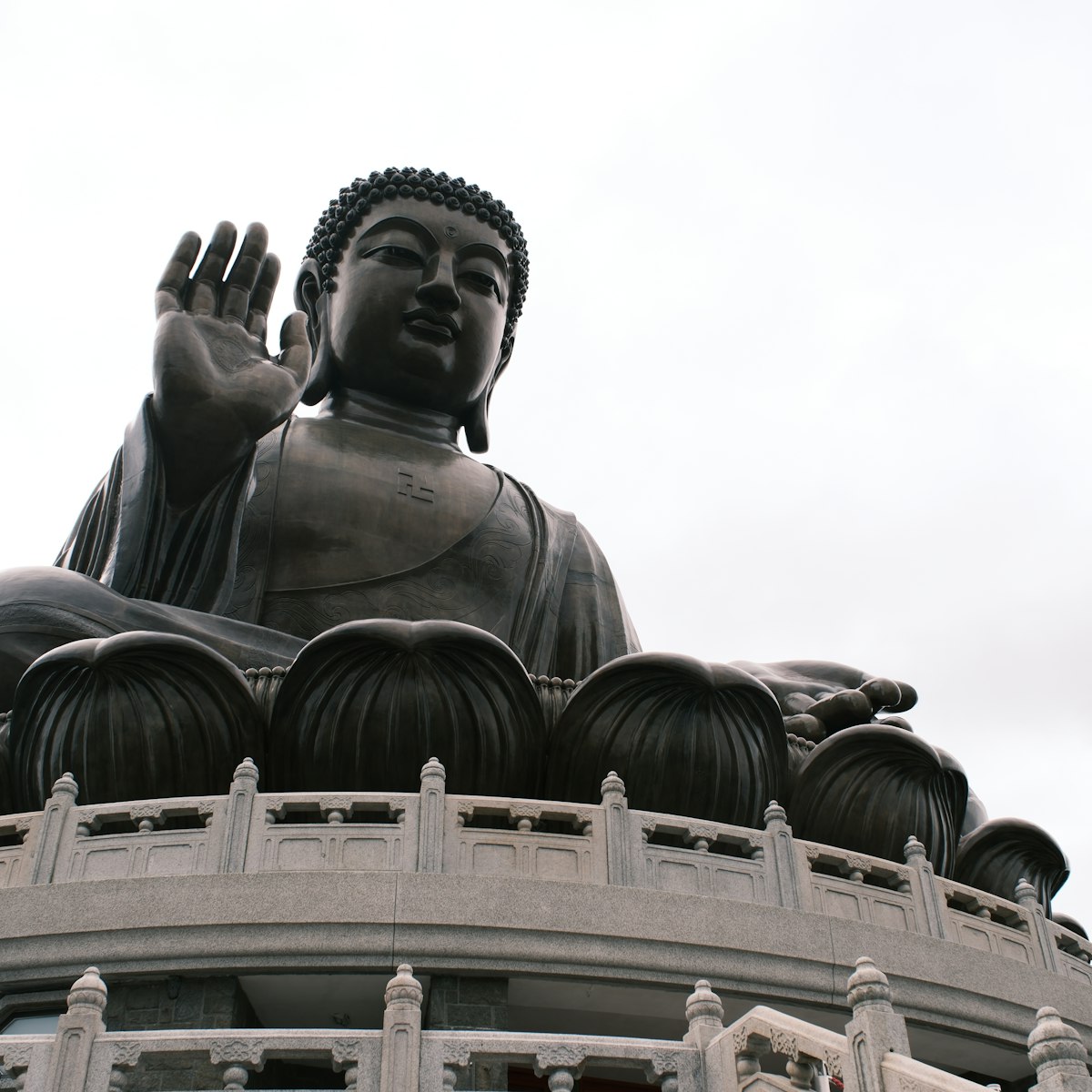
Po Lin Monastery & Big Buddha
Po Lin is a huge Buddhist monastery and temple complex that was built in 1924. Today it seems more of a tourist honeypot than a religious retreat,…
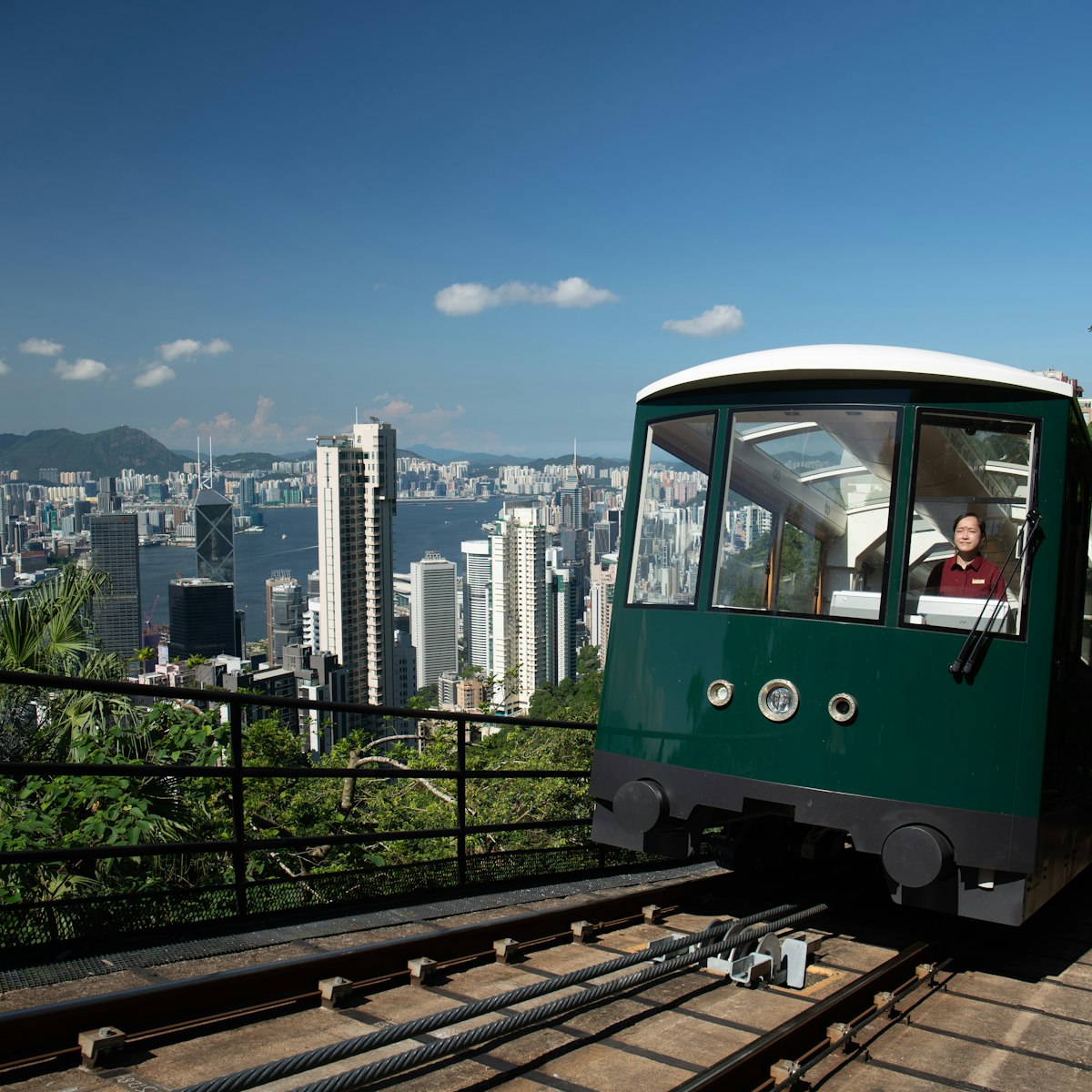
This cable-hauled funicular railway has been scaling the 396m ascent to the highest point on Hong Kong Island since 1888. A ride on this clanking tram is…
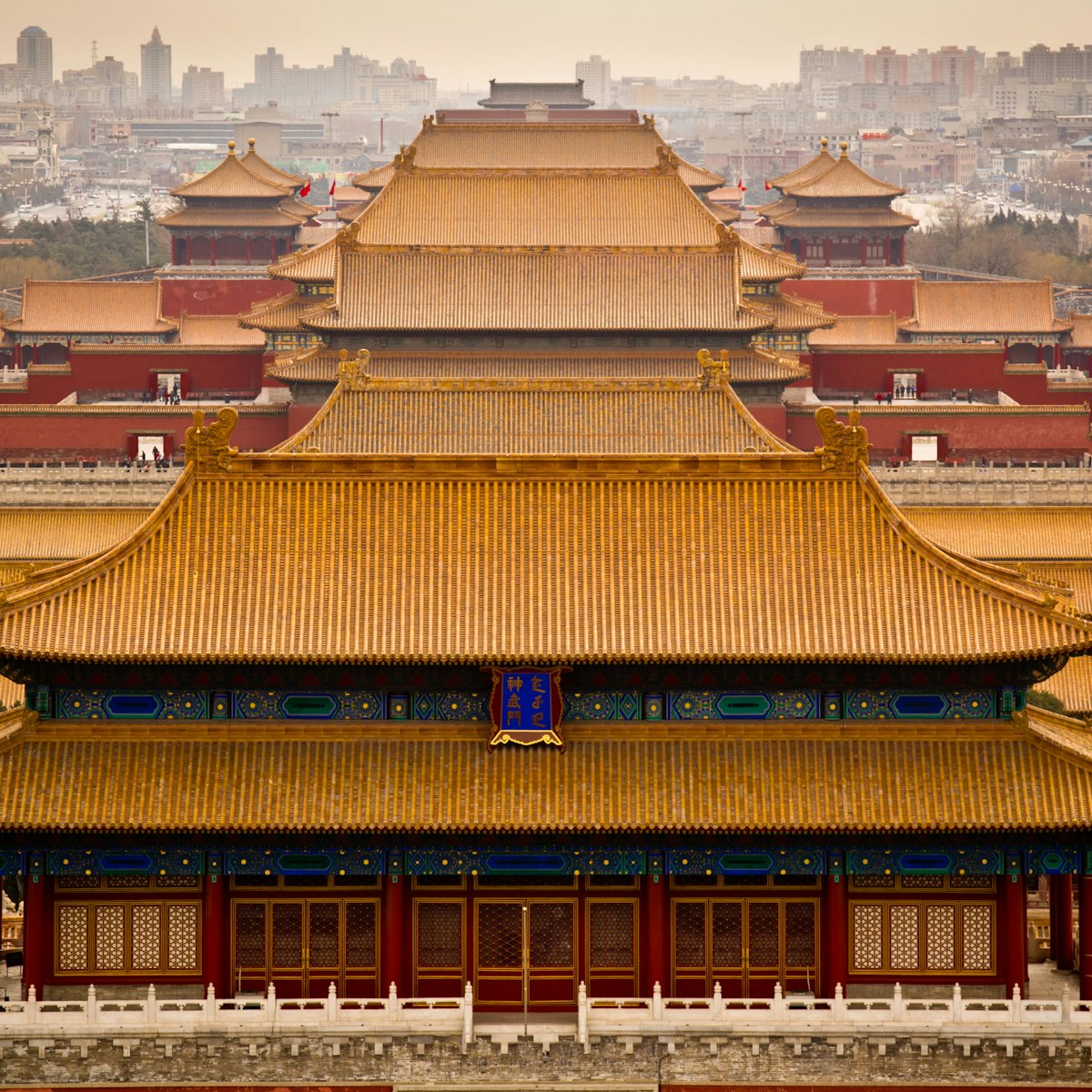
Forbidden City
Forbidden City & Dongcheng Central
Enclosed by 3.5km of citadel walls at the very heart of Beijing, the Unesco-listed Forbidden City is China’s largest and best-preserved collection of…
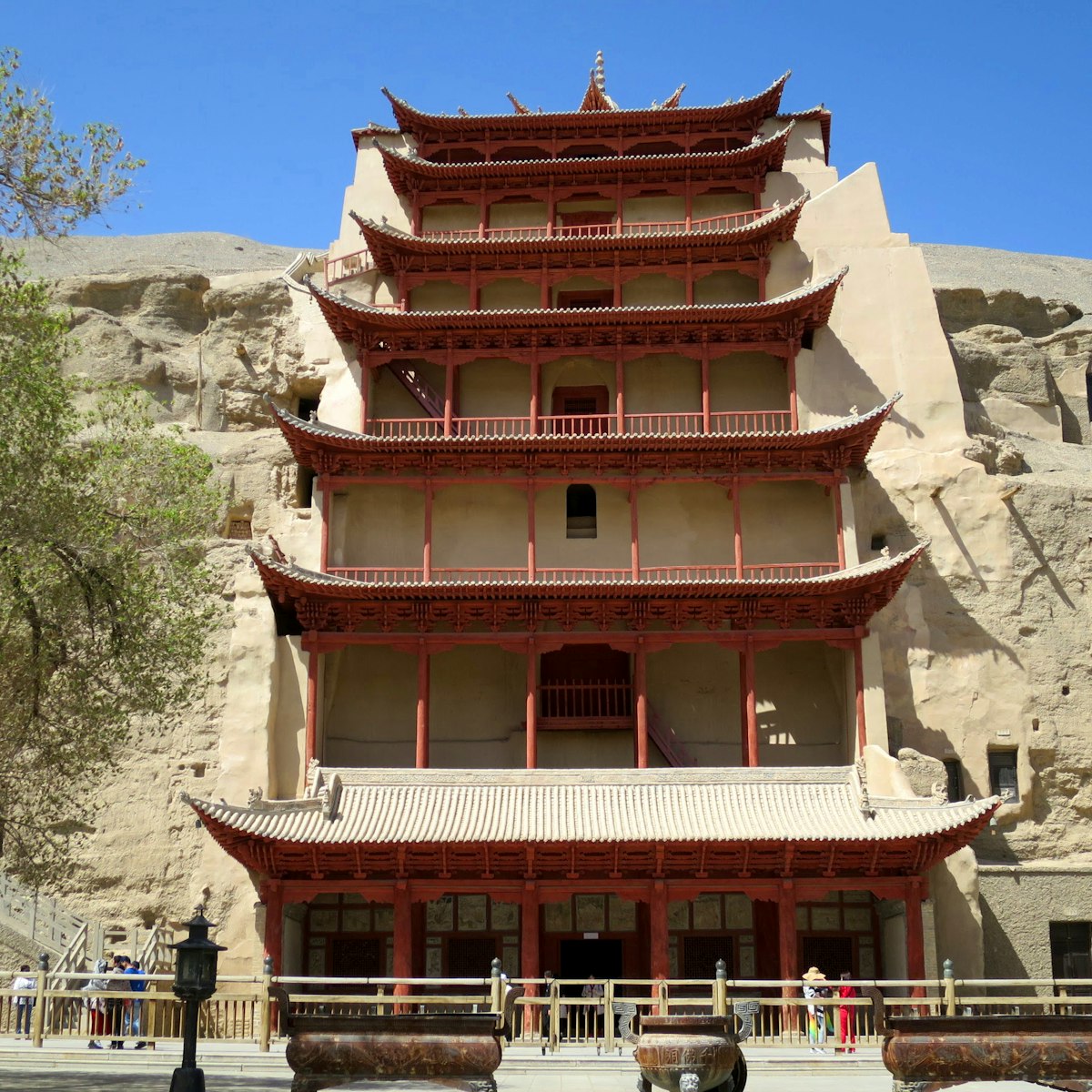
Mogao Grottoes
The Mogao Grottoes are considered one of the most important collections of Buddhist art in the world. At its peak during the Tang dynasty (618–907), the…
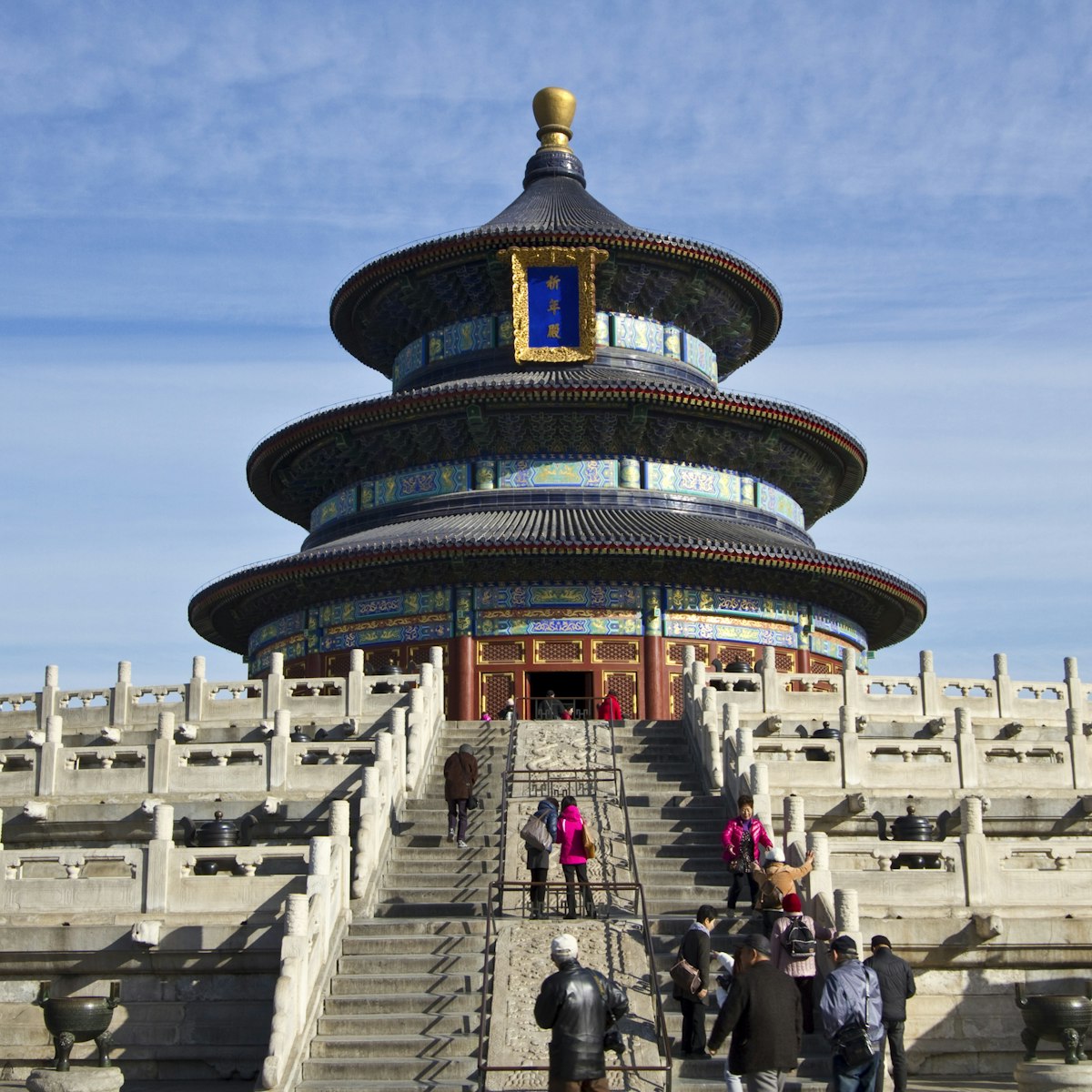
Temple of Heaven Park
Temple of Heaven Park & Dongcheng South
An oasis of methodical Confucian design, the 267-hectare Temple of Heaven Park is unique. It originally served as a vast stage for solemn rites performed…
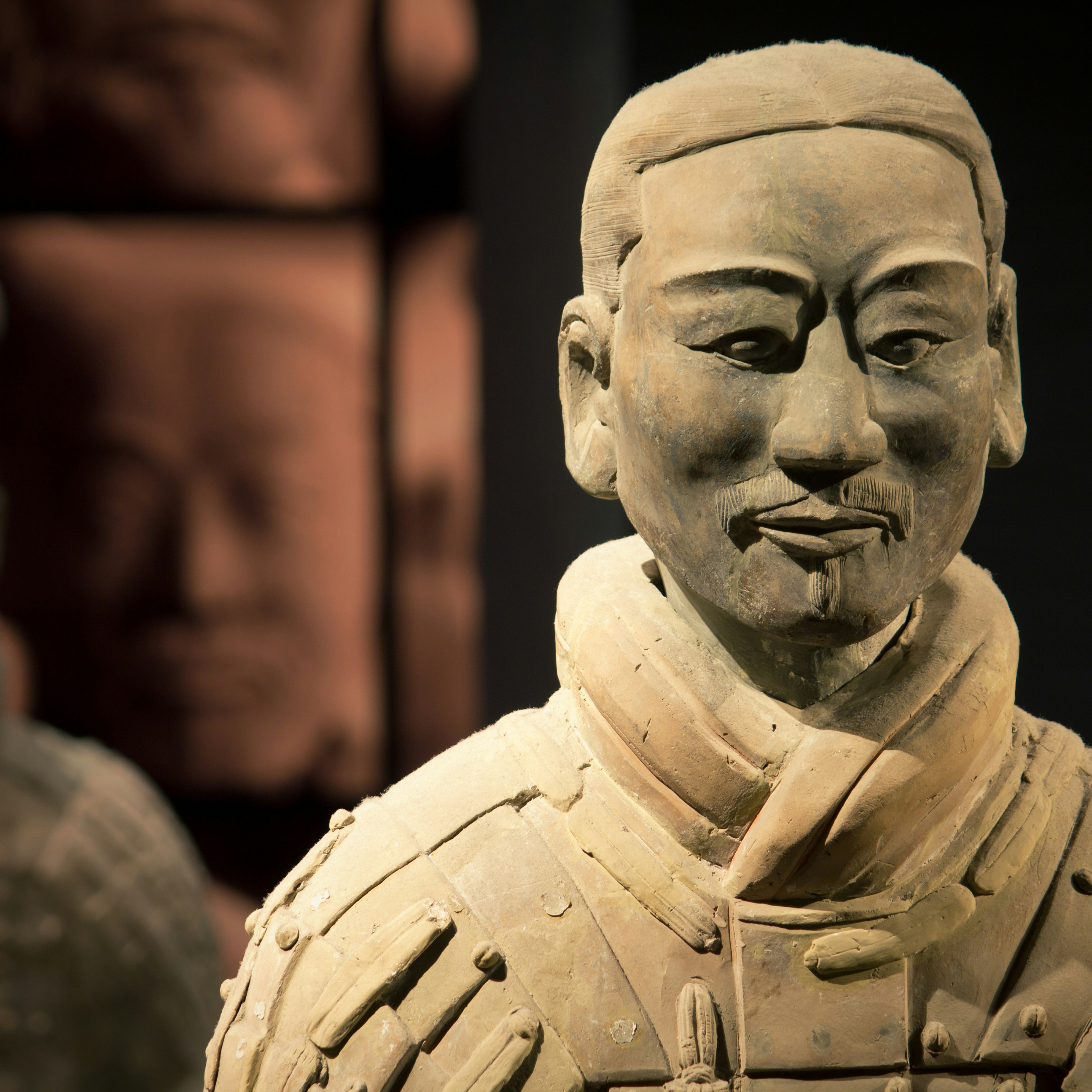
Army of Terracotta Warriors
The Terracotta Army isn't just Xi'an's premier sight: it's one of the most famous archaeological finds in the world. This subterranean life-size army of…
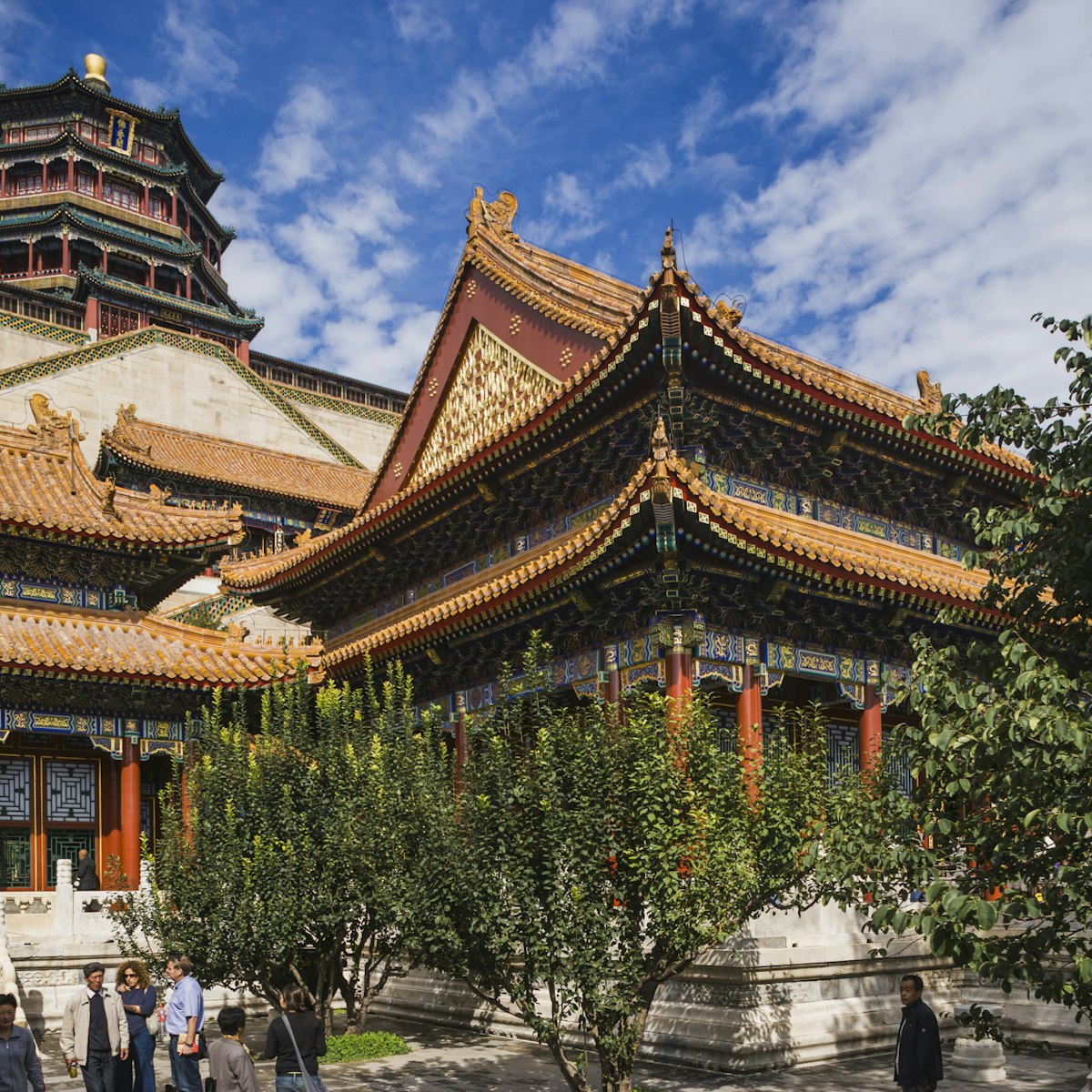
Summer Palace
A marvel of Chinese garden design and one of Beijing's must-see attractions, the Summer Palace was the royal retreat for emperors fleeing the suffocating…
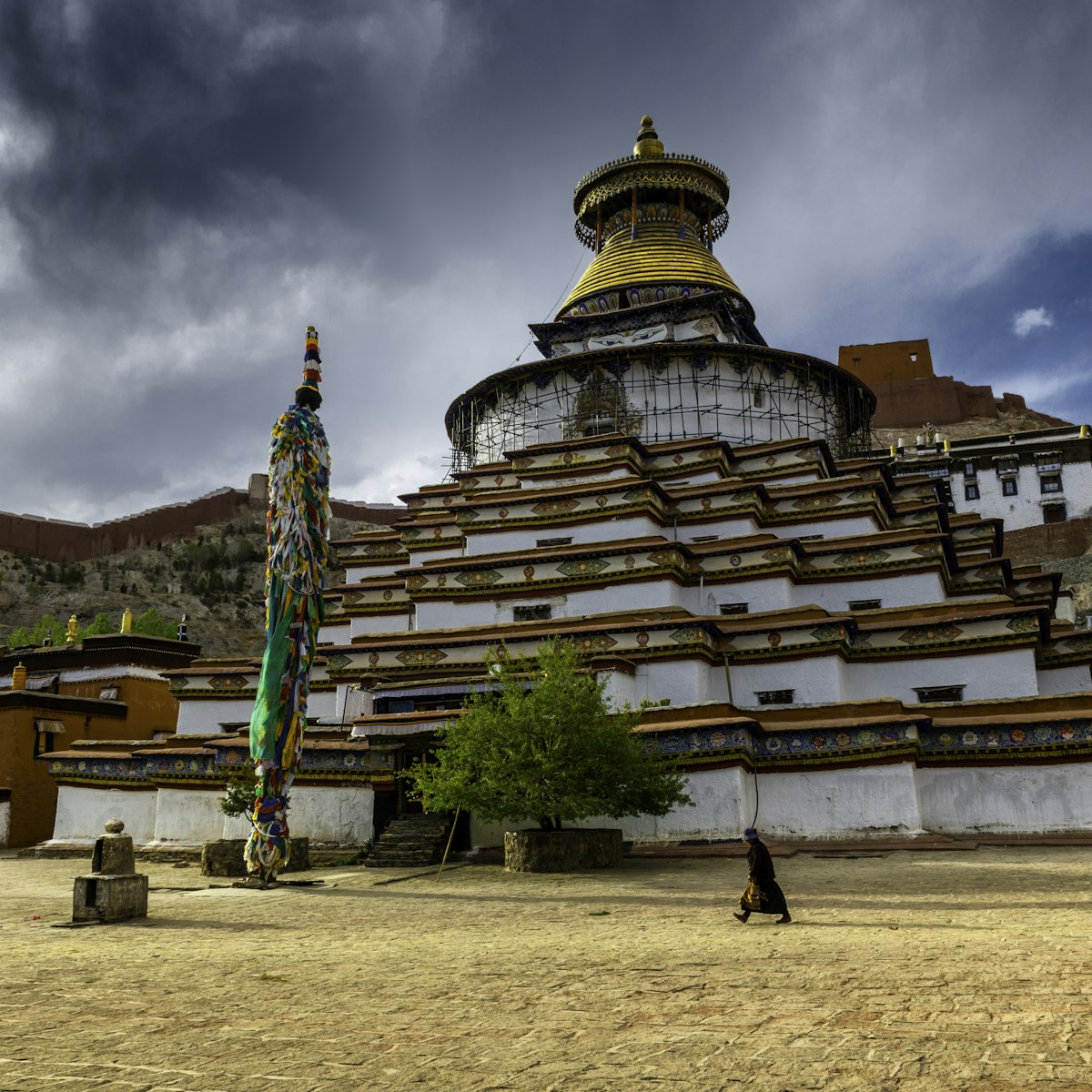
Gyantse Kumbum
Commissioned by a local prince in 1427 and sitting beside Palcho Monastery, Gyantse Kumbum is the town’s foremost attraction. This 32m-high chörten, with…
Top picks from our travel experts
The ultimate guide to things to do in china.

Kunqu Opera Museum
Down a narrow lane, this small museum is dedicated to kūnqǔ, the opera style of the region. The beautiful old theatre houses a stage, musical instruments,…
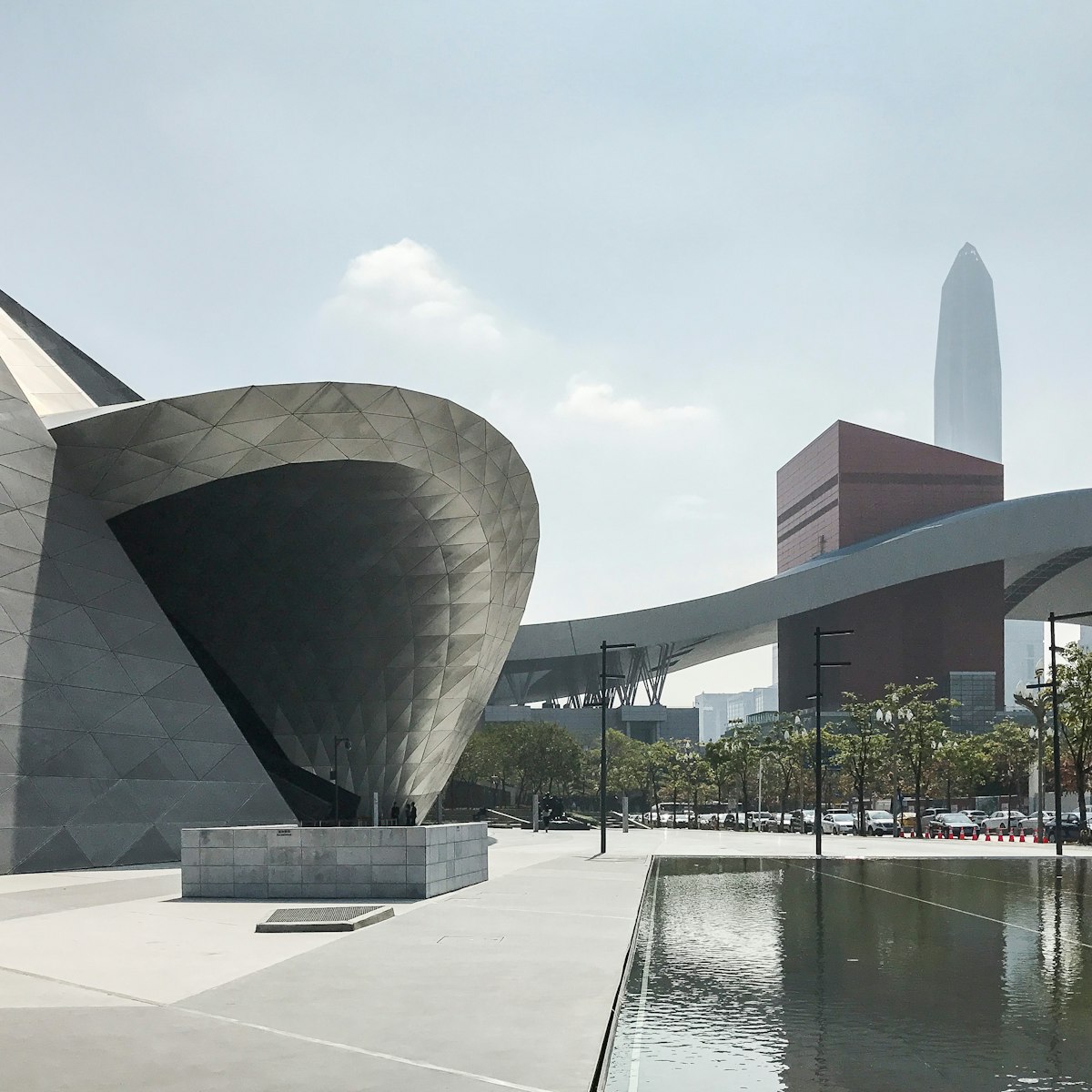
Museum of Contemporary Art & Planning Exhibition
One of those thrillingly space-age, 'only in China' architectural projects, this gargantuan exhibition space designed by Coop Himmelb(l)au anchors…
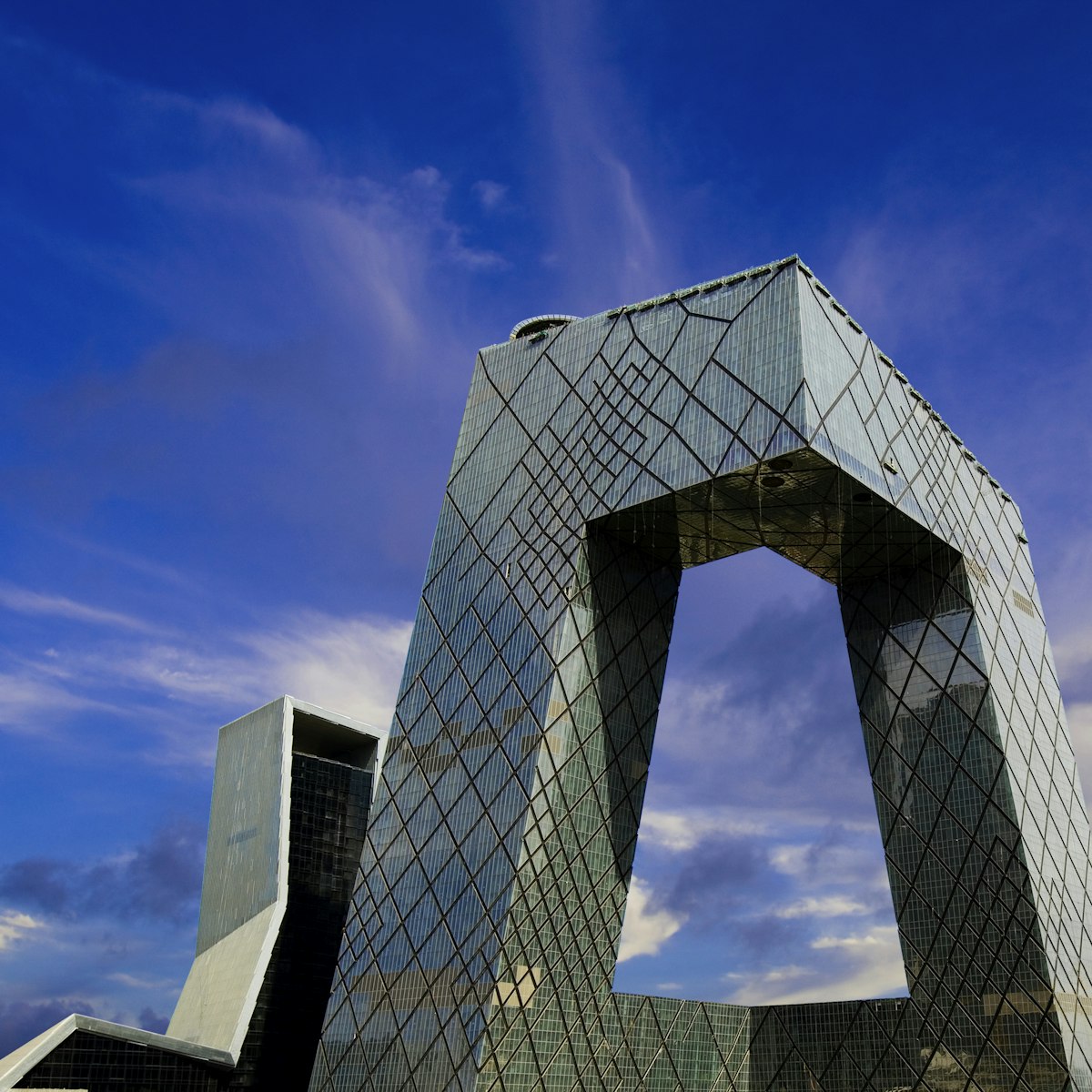
CCTV Headquarters
Known locally as Da Kucha (大裤衩, Big Pants), the 234m-tall CCTV Tower is an architectural fantasy that appears to defy gravity. Designed by Rem Koolhaas…
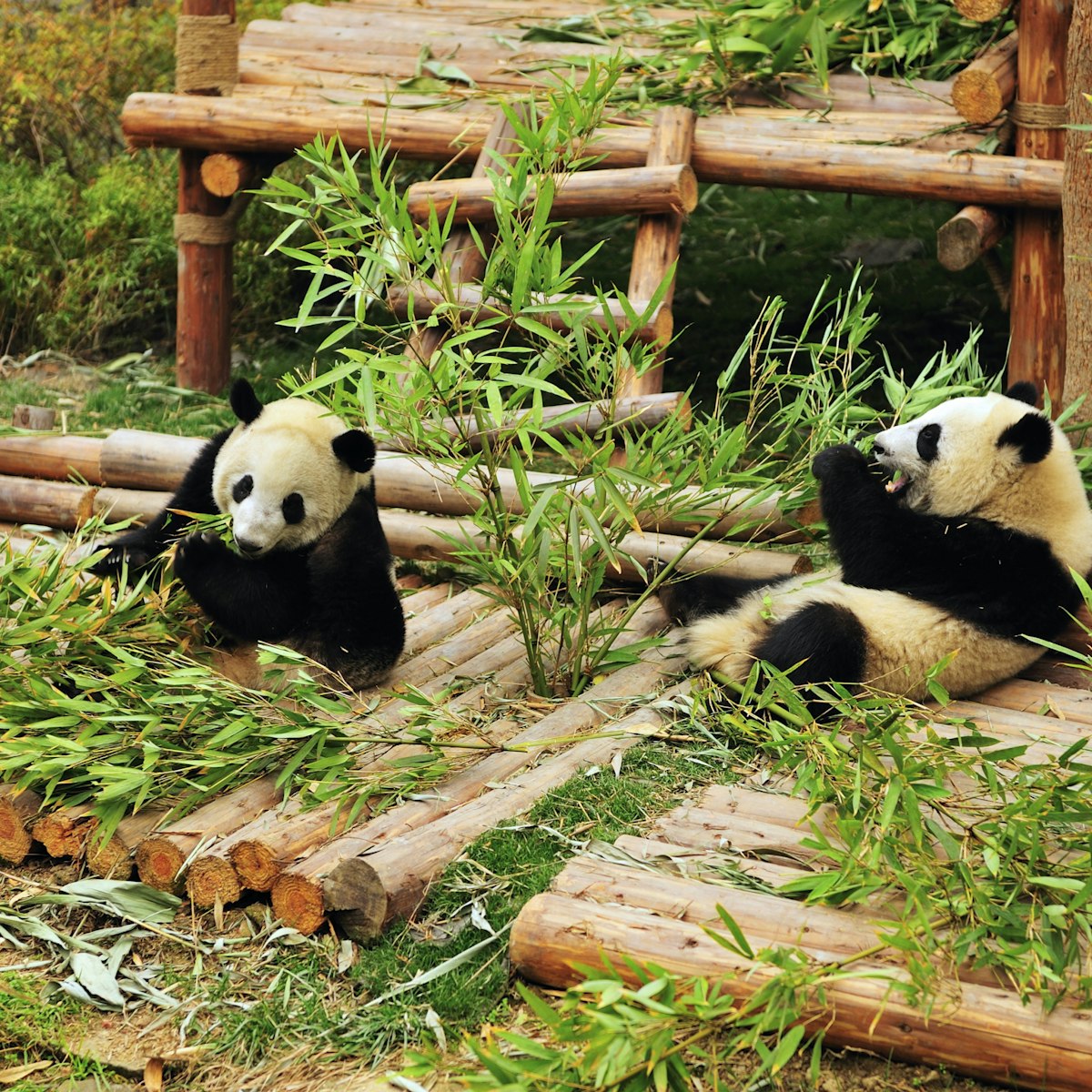
Giant Panda Breeding Research Base
One of Chengdu’s most popular attractions, this panda park 18km north of the city centre is the easiest way to glimpse Sichuan’s most famous residents…

798 Art District
Contemporary art meets communist history at this thrilling enclave of international galleries installed within China's model factory complex of the 1950s…

Luoyang Old Town
Any Chinese city worth its rice has an Old Town. Within Luoyang’s is this scenic area comprising a plethora of water-banquet restaurants, costume shops…

Humble Administrator’s Garden
The largest of Suzhou's gardens, the Humble Administrator’s Garden is often considered to be the most impressive, but its fame draws in constant crowds,…
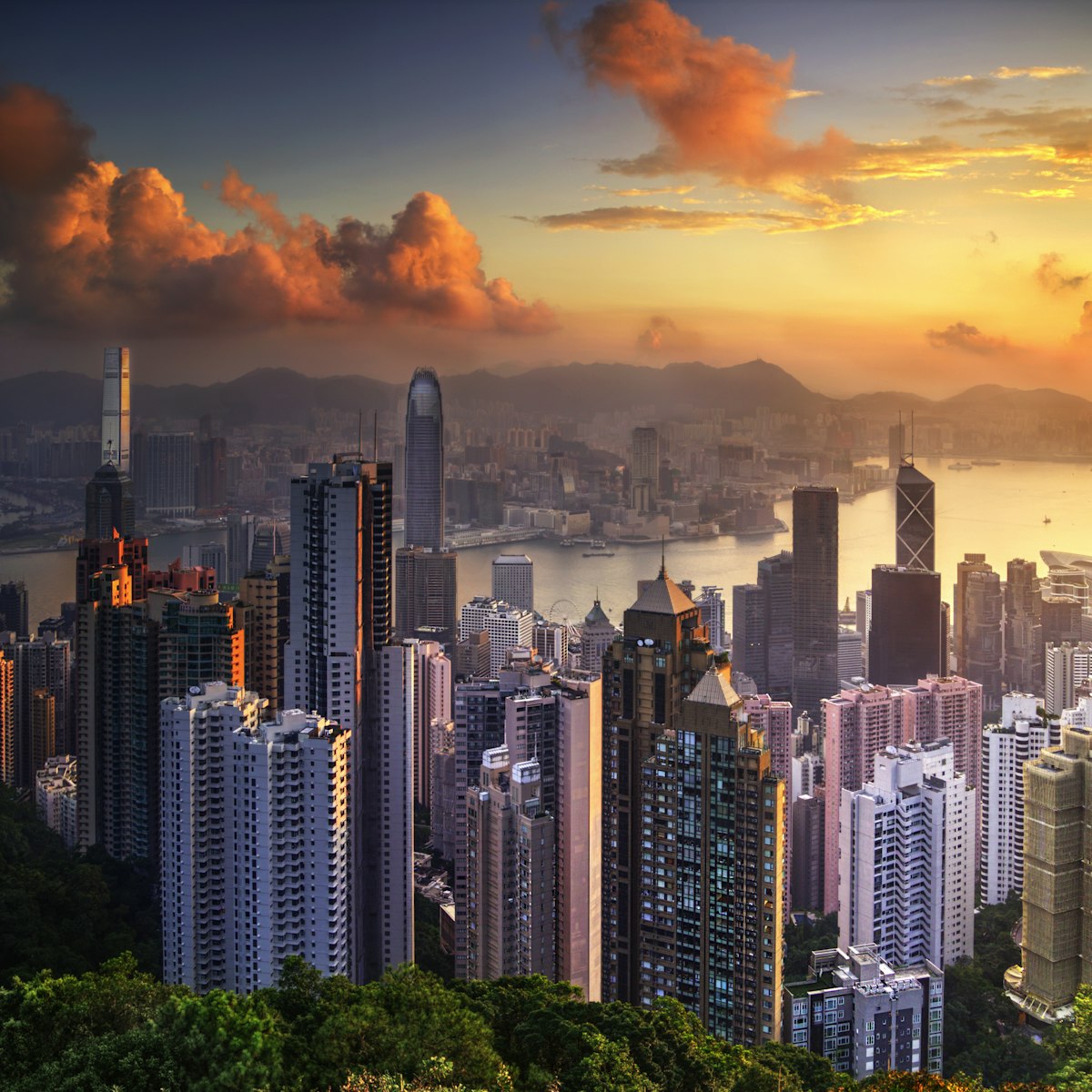
Victoria Peak
Standing at 552m, Victoria Peak is the highest point on Hong Kong Island. It is also one of the most visited spots by tourists, and it’s not hard to see…
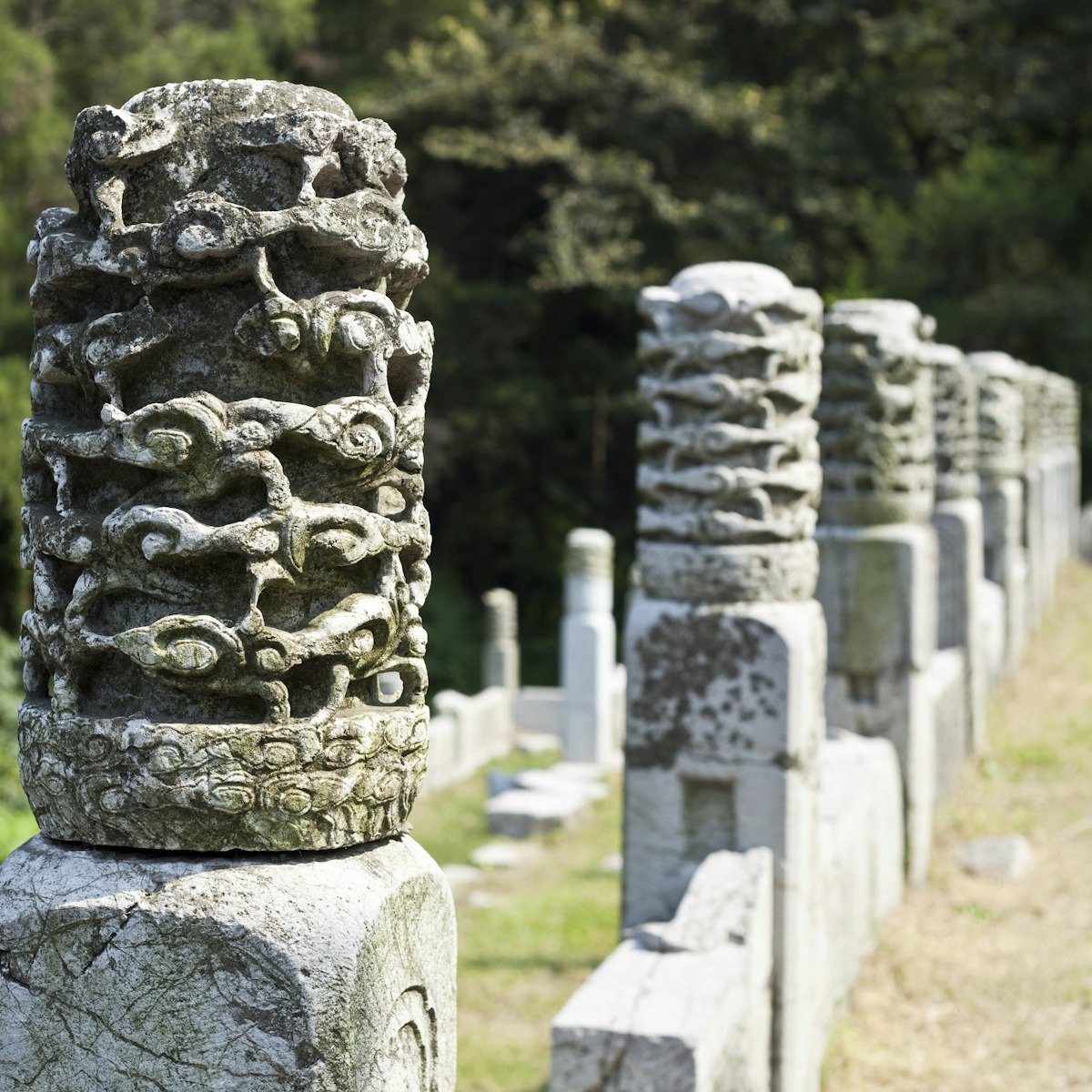
Ming Xiaoling Tomb
Zhu Yuanzhang (1328–1398), the founding emperor of the Ming dynasty (also known as the Hongwu Emperor), was buried in the tomb of Ming Xiaoling; he was…
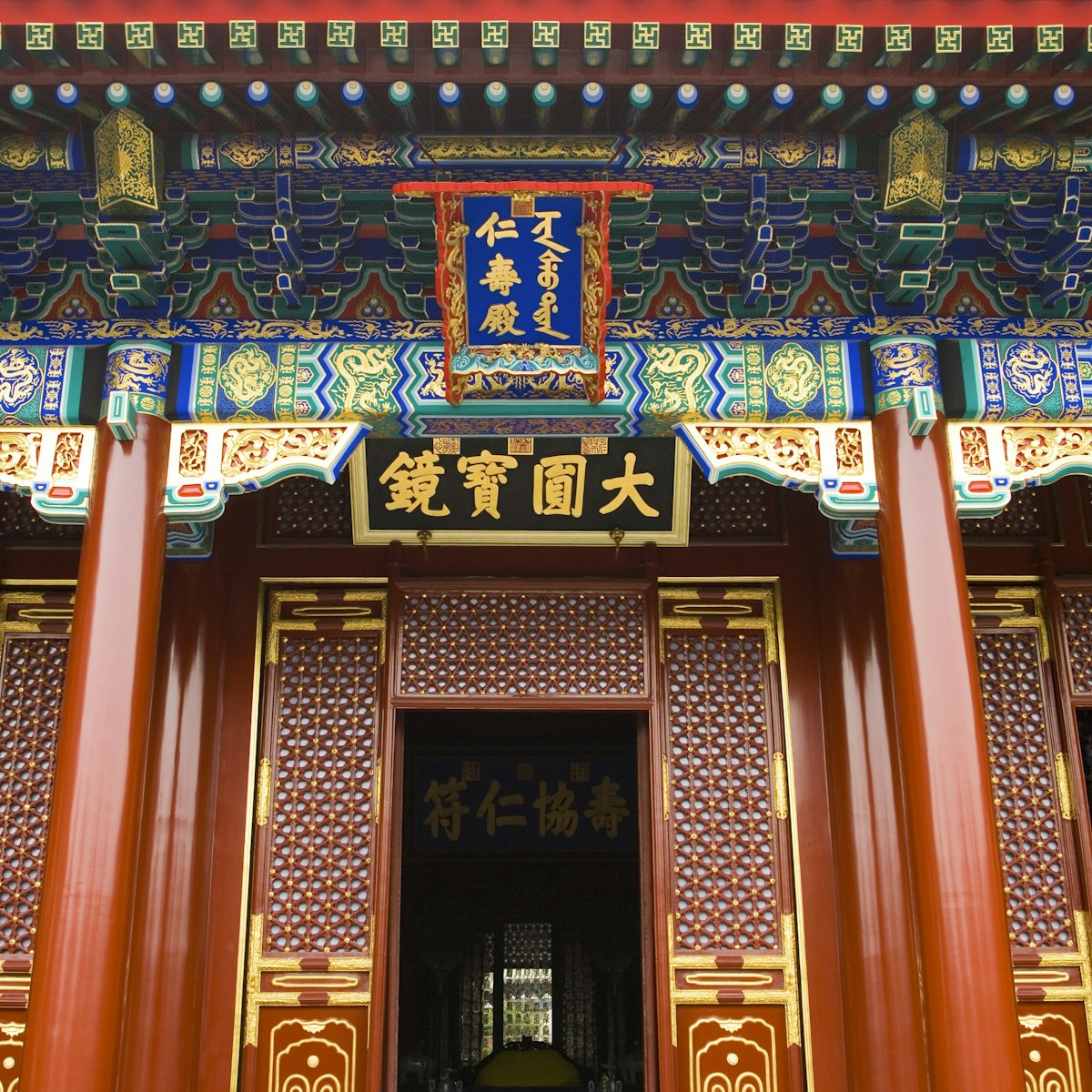
The most climbed mountain on earth, and the most revered of China's five sacred Taoist peaks, Tai Shan is one third of Shandong's claim to having 'yī shān…

The Great Wall
Historically a strategic portal between the fertile lands of the capital and the more arid plains beyond, Badaling has been called the ‘Key to Northern…

Famed for its Ming-era guard towers and excellent views, the 3km-long section of wall at Mutianyu, northeast of Beijing in Huairou County, is largely a…

Jiankou Great Wall
For stupefying hikes along perhaps Beijing’s most incomparable section of Wall, head to Jiankou, where white-knuckle sections like ‘Upward Flying Eagle’…
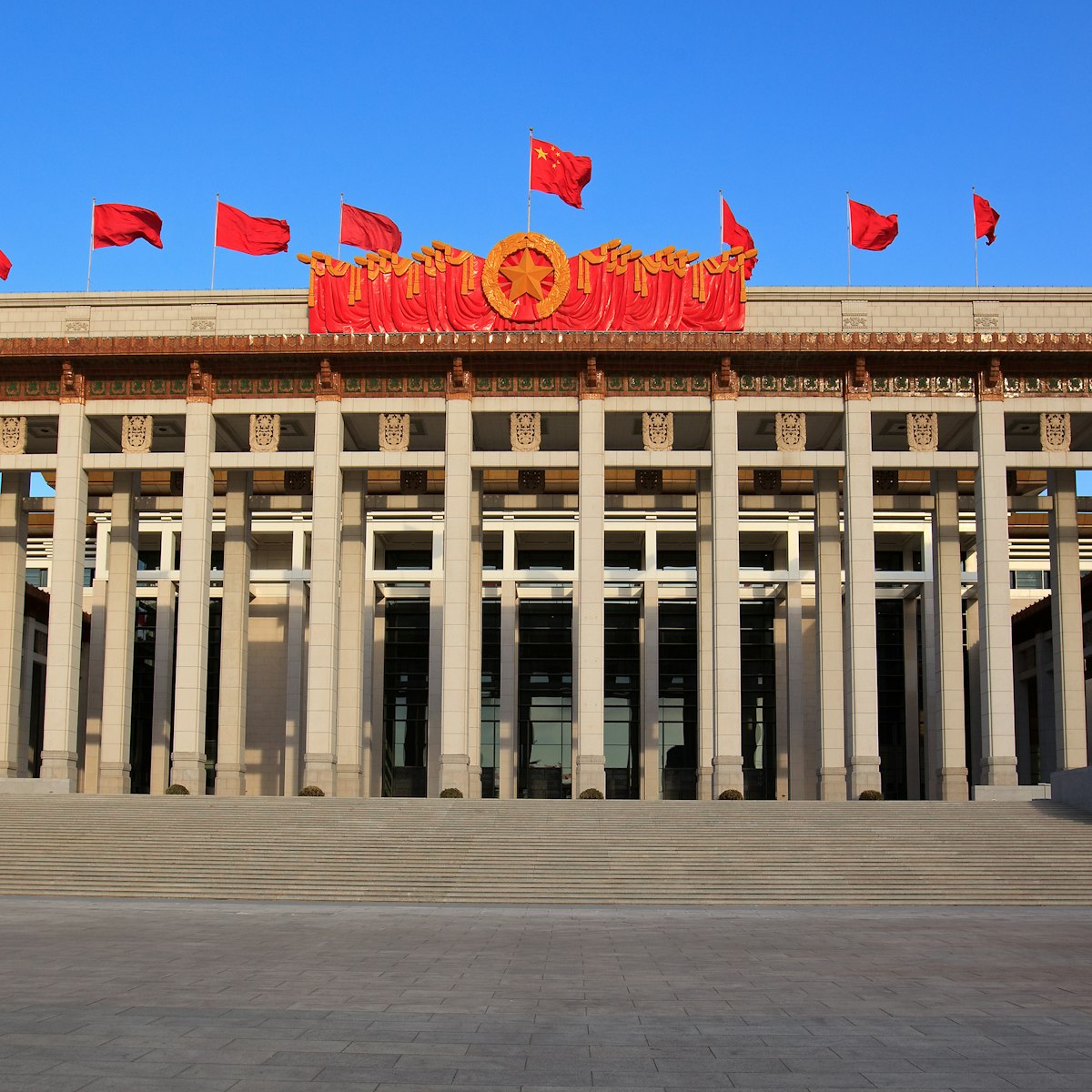
National Museum of China
Vast and energy-sapping, China's showpiece museum is housed in an immense 1950s Soviet-style building on the eastern side of Tian'anmen Sq, and claims to…
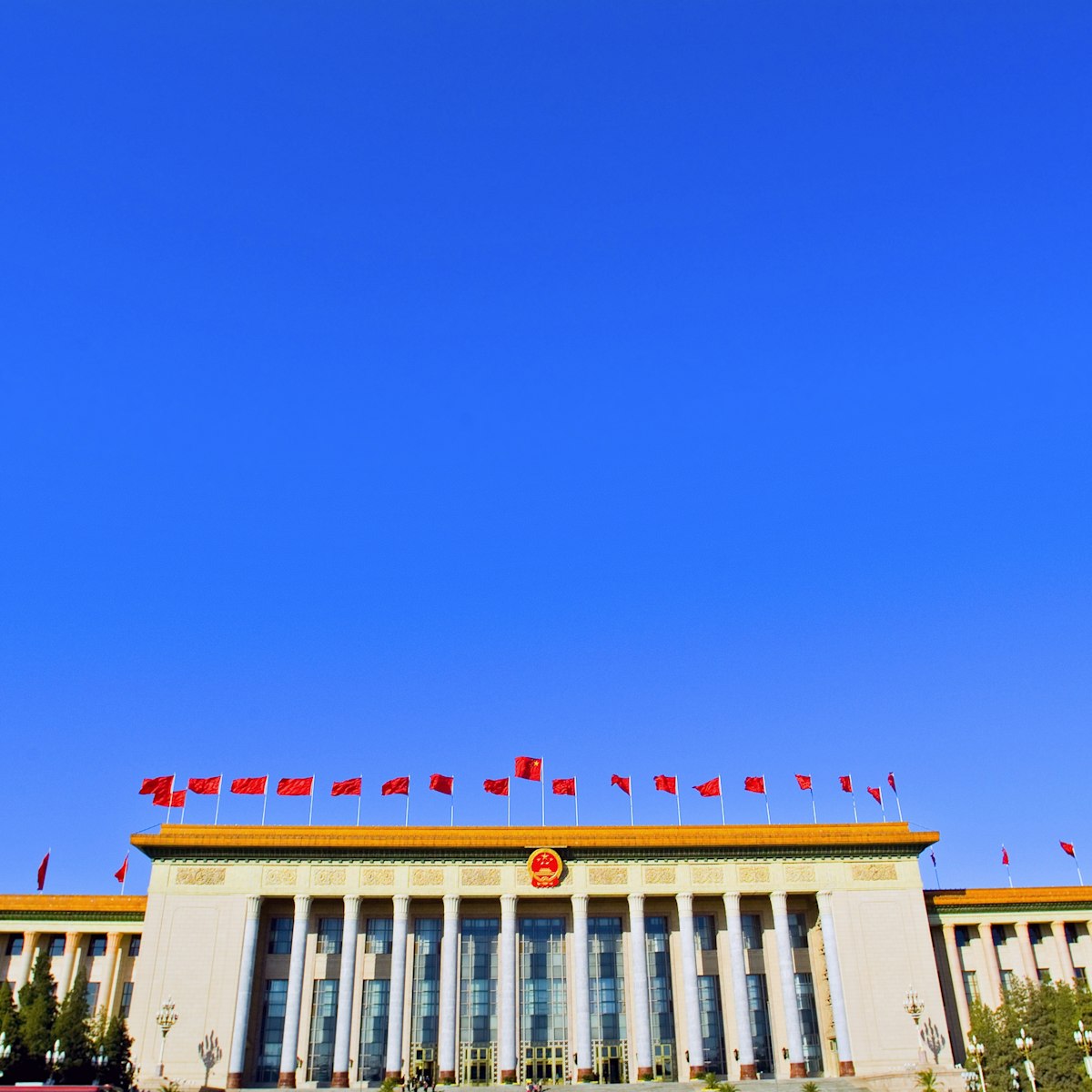
Tian'anmen Square
Flanked by triumphalist Soviet-style buildings, Tian'anmen Sq is an immense void of paved stone (440,000 sq metres, to be precise) at the symbolic centre…
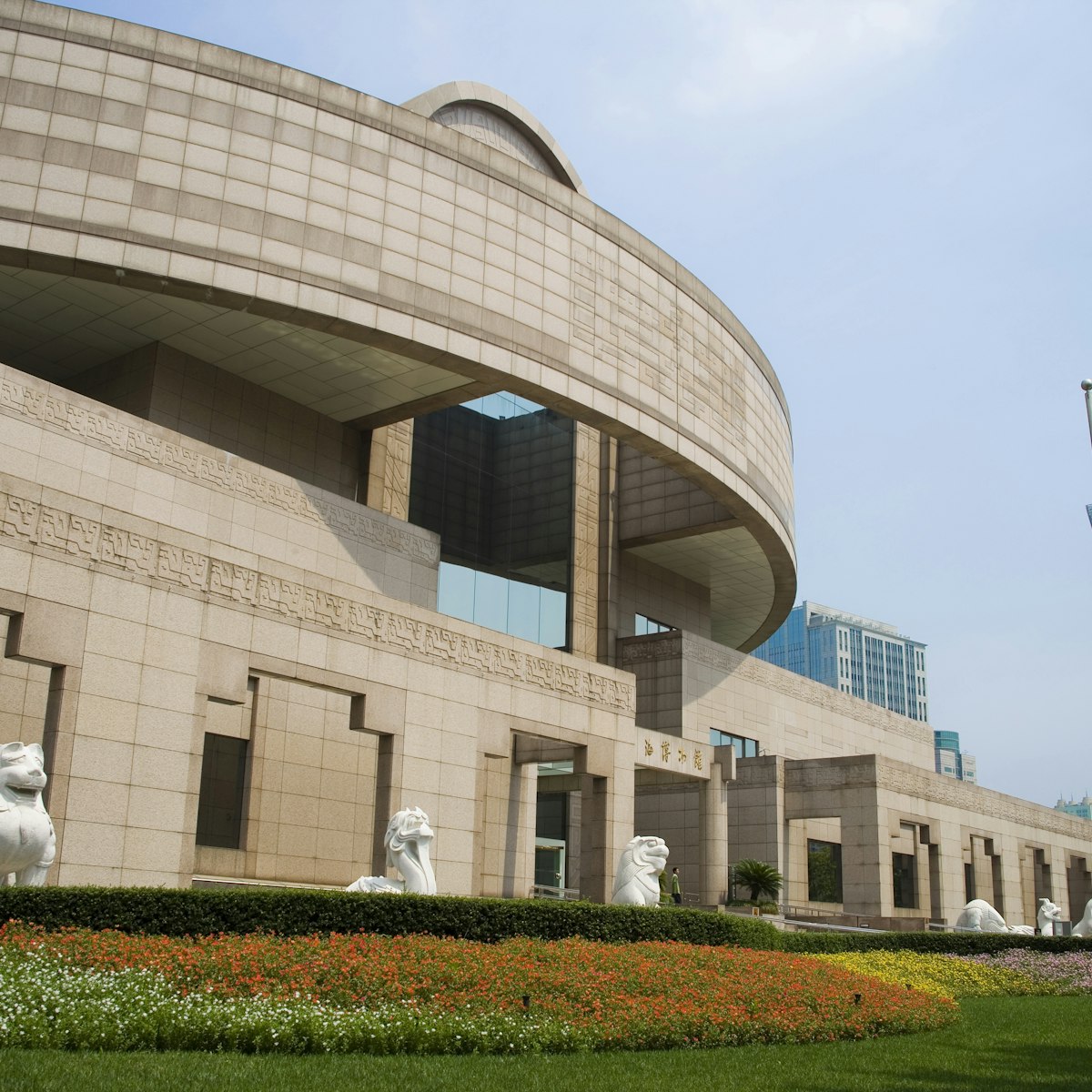
Shanghai Museum
The Bund & People's Square
This must-see museum escorts you through the craft of millennia and the pages of Chinese history. It's home to one of the most impressive collections in…
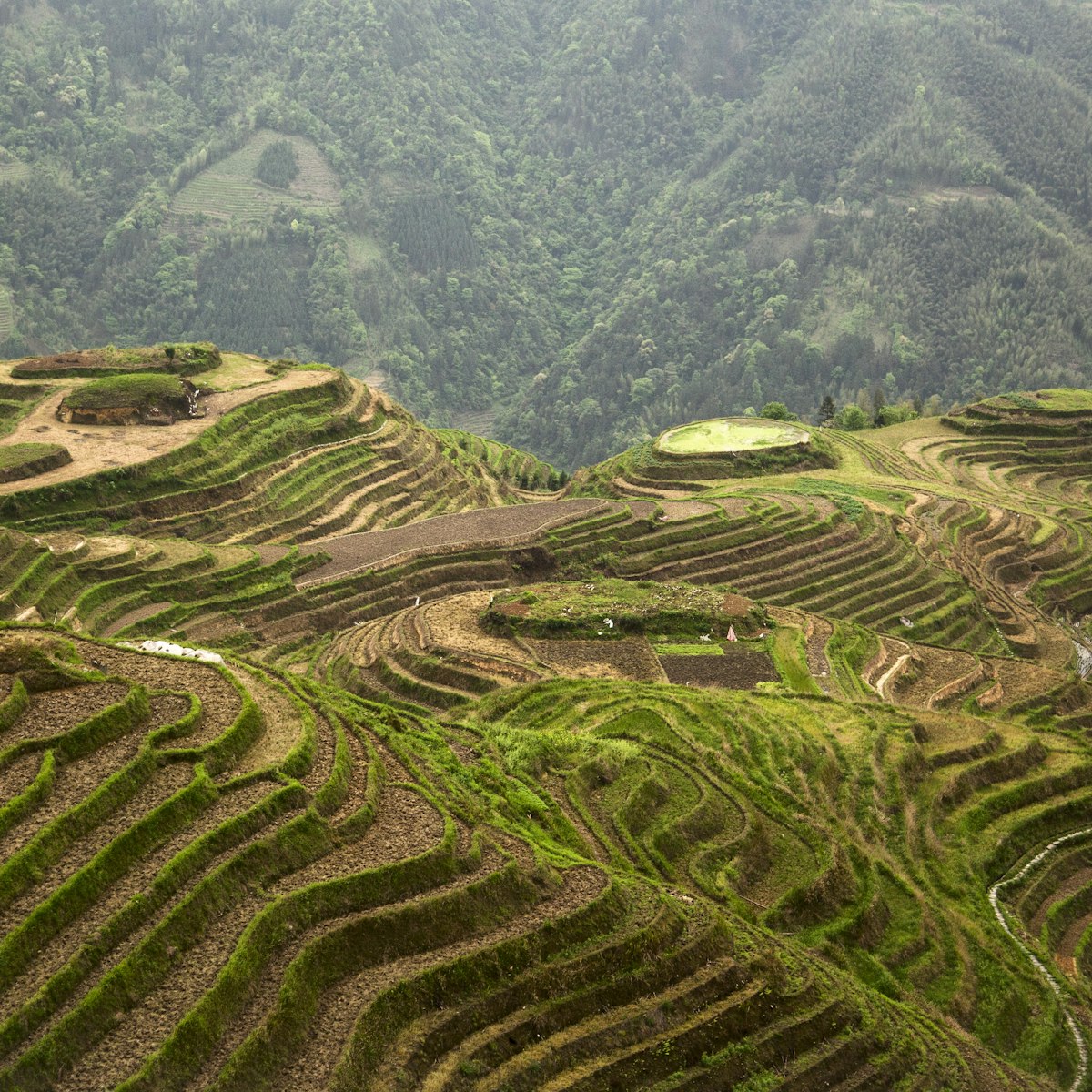
Rice Terraces
Longji's famed rice terraces have been luring travellers to the region for decades to witness some of China's most spectacular scenery. Rising to 1000m,…

Presidential Palace
After the Taiping took over Nanjing, they built the Mansion of the Heavenly King (天王府, Tiānwáng Fǔ) on the foundations of a former Ming-dynasty palace…
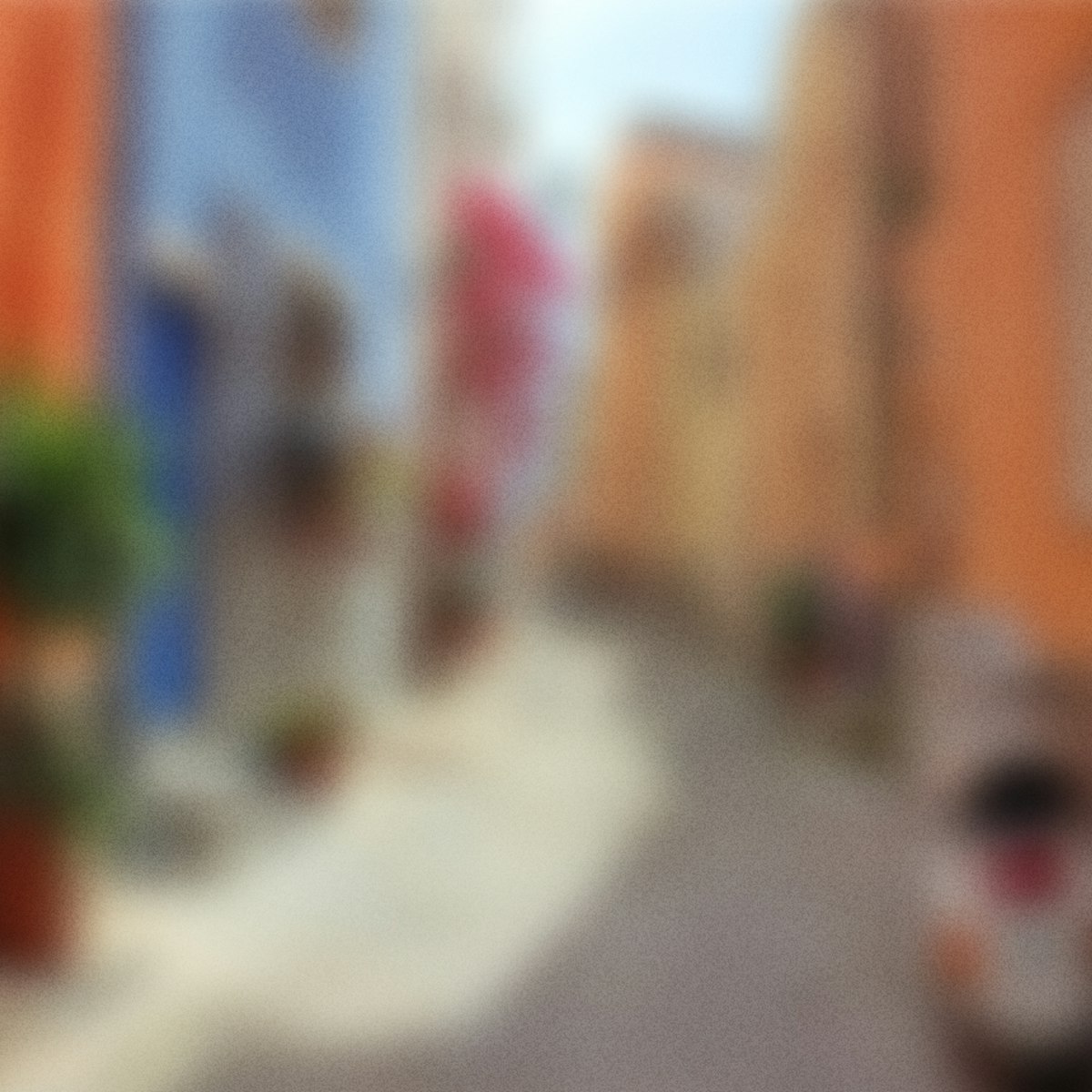
Yabuli Ski Resort
Heilongjiang
Yabuli was China’s first destination ski resort. Since 2009 the resort has expanded to cover two mountains and now has a good division of advanced,…

An original M50 gallery and one of Shanghai's first contemporary art spaces, ShanghART is still going strong 20 years on.

Garden of the Master of the Nets
Off Shiquan Jie, this pocket-sized garden is considered one of Suzhou's best preserved. Laid out in the 12th century, it went to seed and was later…

Sanxingdui Museum
The Sanxingdui Museum, 40km north of Chengdu in Guanghan (广汉), exhibits relics of the Shu kingdom, a cradle of Chinese civilisation dating from 1200 BC to…

Hong Kong Global Geopark
Sai Kung Peninsula
Part of the Unesco Geopark network, this spectacular geopark consists of two regions of formations: volcanic rock from 140 million years ago that often…

A huge development for Shanghai's contemporary art scene, this enormous gallery is housed in the former hangar of Longhua Airport and sprawls over 9000 sq…
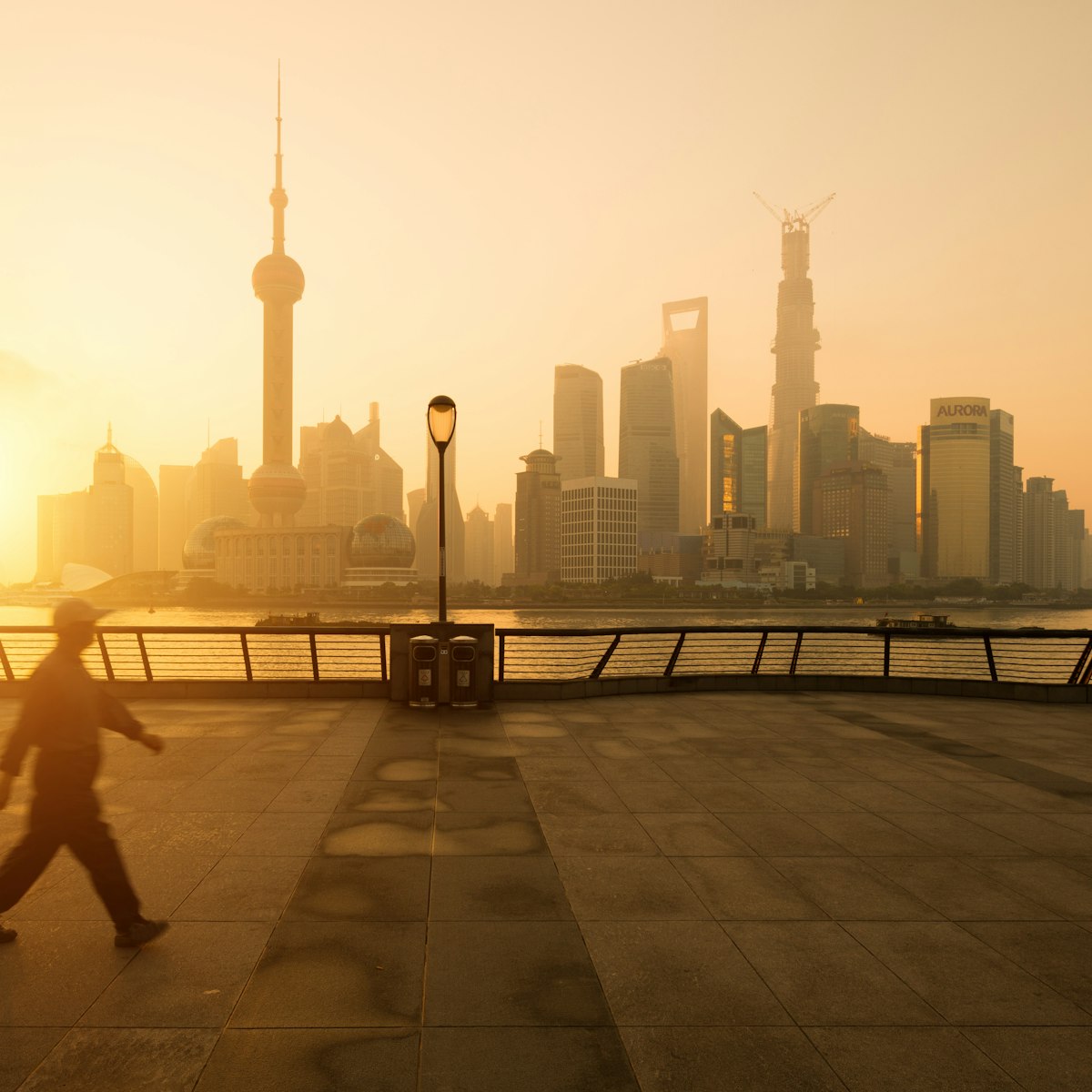
Symbolic of concession-era Shanghai, the Bund was the city’s Wall Street, a place of feverish trading and fortunes made and lost. Originally a towpath for…

Lord Stow’s Bakery
Though the celebrated English baker Andrew Stow has passed away, his cafe and the original Lord Stow’s Bakery here keep his memory alive by serving his…
Planning Tools
Expert guidance to help you plan your trip.
Best Things to Do
China is a giant and complex patchwork of cultures, languages and cuisines. As you might expect, there's a lot to see and do - here are the top experiences.
Transportation
Despite its vast size, traveling around China is convenient and efficient, thanks to its high-speed rail network and abundance of airports and local buses.
Visa Requirements
Stretching from Central Asia to the jungles of Vietnam, China is a land of endless travel opportunities. Here's what you need to know about getting a visa.
Latest stories from China
Filter by interest:
- All Interests
- Adventure Travel
- Art & Culture
- Beaches, Coasts & Islands
- Food & Drink
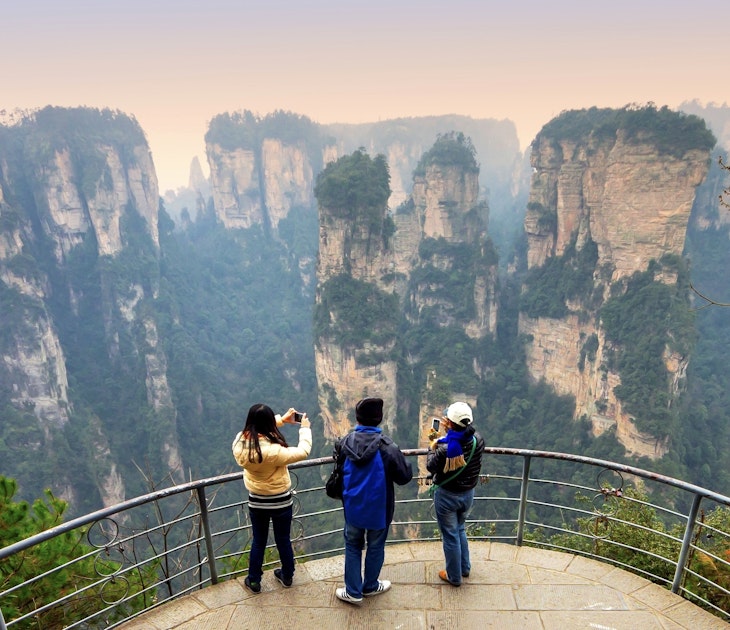
Art and Culture
Feb 21, 2024 • 5 min read
Ancient Buddhas? Ultra-modern cities? Tasty dim sum? Baby pandas? Our list of the best places to visit in China has all this and more.

Jan 2, 2024 • 11 min read
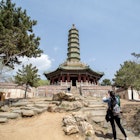
Apr 5, 2023 • 5 min read
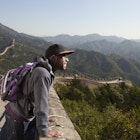
Mar 28, 2023 • 3 min read
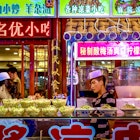
Oct 10, 2022 • 6 min read

Oct 29, 2021 • 11 min read

Oct 28, 2021 • 9 min read

Oct 27, 2021 • 7 min read
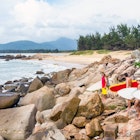
Oct 27, 2021 • 5 min read

Oct 24, 2021 • 4 min read
in partnership with getyourguide
Book popular activities in China
Purchase our award-winning guidebooks.
Get to the heart of China with one of our in-depth, award-winning guidebooks, covering maps, itineraries, and expert guidance.
China and beyond
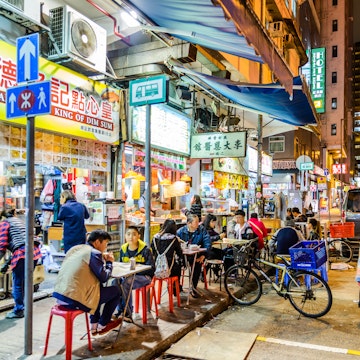

TRAVEL to CHINA – Tips and Information Guide for 2024
Everything you need to know about planning travel to China in our comprehensive destination guide.
From hiking the Great Wall of China to conquering your fear of heights at the highest glass bridge in the world, these are just some of the reasons why you should travel to China.
China is one of the most amazing countries in the world that is deservedly on nearly every traveller’s bucket list.
There aren’t that many countries that possess such various geographical climates, rich biodiversity, stunning landscapes and culture that persisted as the result of over 4,000 years of accumulated historical heritage.
Whether you want to roam its markets or its mountains and jungles, China has something to offer for everyone.
This country boasts in the diversity in its cuisine in addition to that of its languages, people, climate regions and biodiversity.
When you visit China you will be thoroughly amazed that the diet and culinary options vary from region to region.
This in itself gives you more than enough reason to visit China from one end to the other.
So if you’re planning your trip to China and you want your trip to be packed with experiences, new sights, and exotic cuisine while being vastly different from any other previous trip you’ve taken, then our China travel guide should make the planning as fun as the travel experience itself!
China Travel Guide
Before heading towards China, check out some basic information you might need:
General Information
- Capital: Beijing
- Other Main Cities: Shanghai, Guangzhou, Urumqi, Shenzen, Chengdu, Xian
- Currency: Renminbi
- Language: Standard Chinese, Mongolian, Uyghur, Tibetan and Zhuang
- Population: 1,403,500,365
- Area: 9,596,961 sq.m2
- Electricity Voltage: 220V
- Electricity Sockets: Type A, C and I
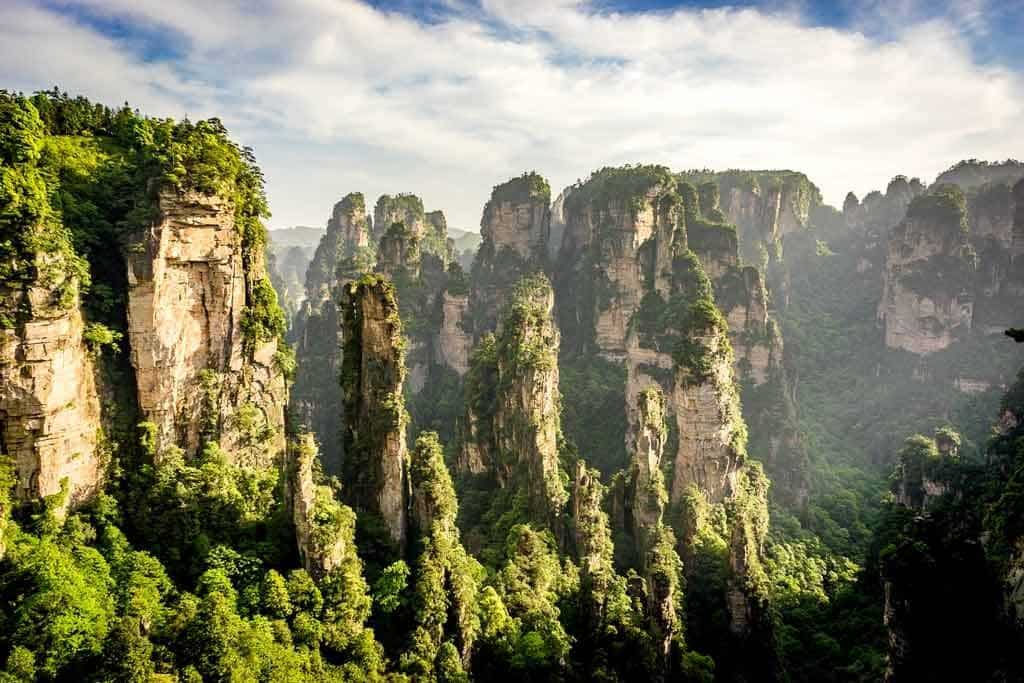
Top 5 Places to Visit in China
- Mount Huangshan – the UNESCO World Heritage is one of the most scenic highlights in the world. The impressive landscape features daunting peaks, thick forests composed of oddly-shaped pine trees and dense clouds covering the sky. It’s a perfect weekend trip if you want to see the most notable peaks and viewpoints of the Yellow Mountains .
- Suzhou – another UNESCO World Heritage site, a town nicknamed the ‘Venice of the East.’ If you’re visiting Shanghai, don’t miss the opportunity to pay a visit to this water town. The canals, gardens, narrow alleyways, picturesque pagodas and bridges make it a perfect day trip for some relaxation time.
- Hangzhou – one of the seven ancient capitals of China and one of its Four Garden Cities. It’s known for the West Lake and stunning and well-preserved nature. The lake area consists of about 60+ cultural sites and spots to enjoy its nature . You can book a guided cruise tour that combines the best of natural sites but also incorporates this city’s rich history.
- Guilin – this site has well-deserved its reputation for being one of the biggest natural gems in the world. The oddly-shaped hills (Karst Mountains), mysterious caves and its riverside decorated with the tall bamboo trees, paints a scenery unique to China.
- Beijing – C hina’s capital that is home to over 21 million people is not only the political center of the country but also has other impressive cultural and historical highlights that are not to be missed! Those include one of the World’s most recognizable landmark, the Great Wall of China and, equally as fascinating Forbidden City – today, a declared UNESCO World Heritage which was home to the rulers of the famous Ming and Qing dynasties.
Top 5 Travel Experiences in China
- Hiking the Great Wall of China – There are many sections of the wall that you can hike. We recommend the Jinshanling section, as most agrees it not only has the most beautiful scenery but is also the most accessible. The Chinese government has invested a lot into the infrastructure of this section, vastly improving the paths, cableway, roads and adding new hiking routes and even, organizing a shuttle bus. You can even camp on the Great Wall of China if you want!
- Walk Over the Zhangjiajie Glass Bridge – This is the longest and highest glass bridge in the World. It will be not only a memorable but also an adrenaline-inducing experience. This area is incredibly special, especially because of the Avatar Mountains and all the beautiful nature in this national park.
- Visit the Panda Reserve in Chengdu – if you’re an animal lover then you won’t regret taking the time to explore the reserve. The Chinese consider pandas sacred animals, and they are doing everything they can to ensure that we will be able to remove pandas from the endangered animals’ list. This gorgeous reserve is a testament to their dedication . Check out our post on how to spend 3 days in Chengdu .
- Mogao Caves , Dunhuang – More popularly known as the Caves of a Thousand Buddhas, these are a series of caves (492 caves) where ancient Buddhist carvings, manuscripts and murals from the 14th century can be found. This place is well worth the time, energy and money you’d need to see it. The world-class experts will guide you through over 41,800 meters of Buddhist history.
- Visit the Forbidden City – This UNESCO World Heritage Site in Beijing is incredibly important for the history and culture of the Chinese people. It is a wonderful example of traditional Chinese architecture, it’s home to the famous Palace Museum and it is the largest ancient palatial structure in the whole world!
Best Time To Visit China
When considering when to plan your trip to China one of the most important things to keep in mind are the season and the weather.
Some people plan their trips around certain events. While others plan around the seasons/weather.
When NOT to Visit China
When organizing your trip to China, a good starting point is to first decide when NOT to go!
A good rule of thumb is to avoid every public Chinese holiday ! But that might prove a little bit trickier than you’d expect since some follow the lunar calendar and are different year to year.
And it sounds counterintuitive to avoid China at certain times. But during public holidays China turns into an entirely different country for a traveller.
This is because transportation tickets are more expensive. Booking a train ticket will prove to be almost an impossible feat and all tourist sites will be overcrowded.
Not to mention that a lot of places will be closed for a couple of days or even a week. So you might miss an opportunity to visit locals’ favorite small eateries or some traditional venues.
So for visitors who really want to take their time and enjoy China’s main highlights, this would definitely be the worst time to visit.
Avoid the Spring Festival (more known as Chinese New Year/ Chunjie) – mid to late January to mid-February.
This is the most important holiday and you can expect to see millions of Chinese traveling all over the country.
It’s known to be the biggest annual mass migration in the world.
You should also avoid visiting China during the Golden Week or the week of National Day.
It’s from the 1st – 7th of October. And while the number of people that participate is lower than during the Spring Festival, there are still a lot of people moving and a lot of places closed to the public.
A lot of Chinese travelers also go abroad during this time so you can expect ticket prices for Japan and Thailand to go up.
If you want to visit during those dates, then just make sure to book well in advance and keep in mind that you will be paying more for everything – from accommodation to street food.
Other popular events are the Lantern Festival and the Dragon Boat Festival .
Those events should not interfere with your travel but expect slightly larger crowds at certain sites.
When to Visit China
So now that we tackled when NOT to visit China, what is the best time to visit China?
China occupies a landmass with various climates spanning all over the country.
The best times for a visit are generally in spring (March-May) and autumn (September–November).
If you’re having trouble deciding when to visit, a useful trick is to also divide China by regions and seasons.
As we said, spring is a great time to travel pretty much all over China.
But in the north, it might be colder during early spring or late fall. But the weather should still be manageable.
The exception is Tibet . This is because it is closed to foreign visitors for two months every spring.
From April to June, you can visit just about anywhere.
The best times to visit some places in northern China, Hainan or Tiber are during mid-summer.
Some destinations are almost unbearably hot during summer and if you are sensitive to high temperatures, you should keep that in mind.
The places that we would avoid during the summer are:
- Nanjing (Jiangsu)
- Wuhan (Hubei)
- Chongqing (Sichuan)
- Inner Mongolia
Other Travels Seasons
The factor that you should include when planning when to visit is the rainy season.
From April to August if you’re planning to visit southern China, your flight just might be delayed or even cancelled due to bad weather conditions.
At this time of year, it’s best to travel via high-speed trains – they’re rarely delays, fast and comfortable.
As with many other places in the world, in July and August students are on a school break and many families use that time to go on a summer vacation.
Prices will be higher in summer and you should plan well in advance.
Autumn is ideal if you want to visit spots that otherwise experience unbearably high temperatures in summer.
We would suggest during autumn that you plan to visit the Great Wall, Hong Kong and Xinjiang.
To see the incredible feat of mankind, the Great Wall, surrounded and bathed in autumn colours, is a visual experience like no other.
If you’re thinking to book your trip during your winter holidays you will be rewarded with fewer crowds and cheaper prices if you can withstand the cold.
During winter you can visit the Harbin Ice Festival (24th of December to 25th of February).
The snow and the scale of ice sculptures that are illuminated at night are an amazing sight to see.
The necessity of warm clothing can never be overemphasized as the temperatures drop during night low as -24 °C and are hardly ever over zero during the day.
A less known fact is that Tibet is great for winter traveling.
During the high season, there is a limited time how much you can spend at the Potala Palace . But you can spend as long as you wish during winter.
The capital of Tibet, Lhasa, also has warmer winters than Beijing.
If that’s not a good enough reason to travel to Tibet during winter, we will also mention that it’s definitely a more economical option and permits to enter the region are easier to get.
You will get a more authentic experience during winter because that’s also when many pilgrims arrive in Tibet.
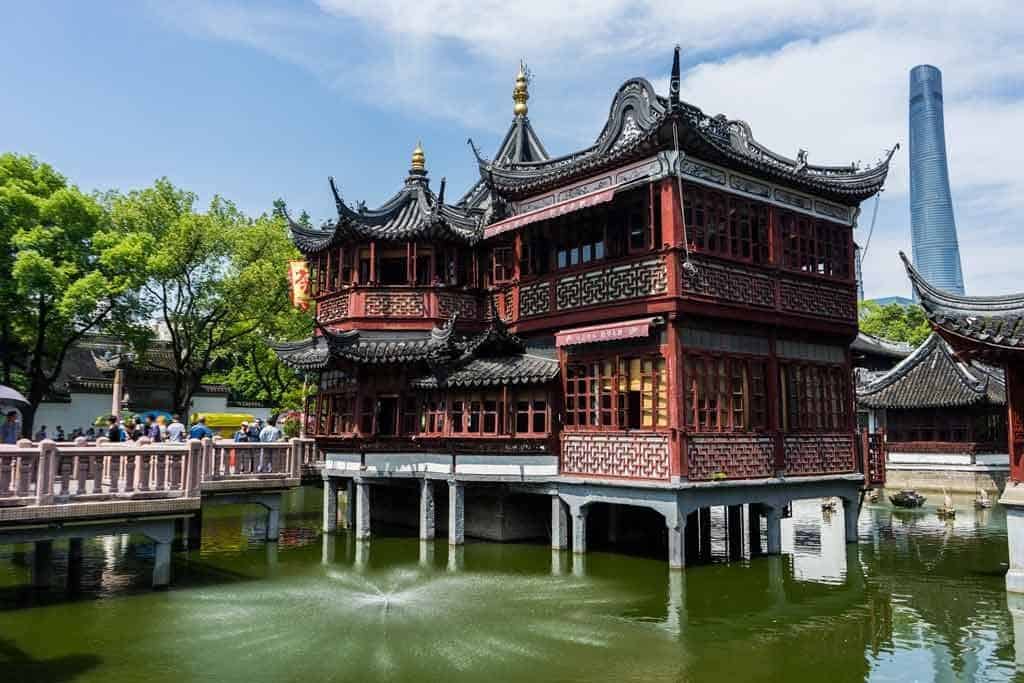
Food In China
- Beijing Duck – This dish is a must when you’re in Beijing, the birthplace of this iconic dish. The sweet and savory duck is served with spring onions, cucumbers, pancakes and other different sides (every restaurant has its own spin on this Chinese classic).
- Hot Pot – This can be an amazing choice or an utter disaster if you do not understand the Chinese spices and ingredients. It’s a pick your own destiny. First, choose the soup for your pot. This dish is all about the spice, but if your counterpart can’t handle the spice as well as you, you can split the pot into two. After choosing from a wide array of vegetables and meats you walk over to the sauce bar. The sauce bar offers barbecue sauce, freshly cut herbs, sesames and pastes, meats and vinegar. Ask a local to guide you through the process and help with their suggestions.
- Hong Shao Rou – This means red braised pork belly. It’s a dish that originated in Shanghai and is popular all across China. It’s cooked with garlic, chilli peppers, rice wine, ginger, soy sauce, sugar and deeply aromatic spices.
- Dumplings – These can be eaten at any time of the day. They are usually dipped in soy sauce or vinegar with garlic. Dumplings are a staple of Chinese cuisine and there are many variations to cater to all tastes. The dumpling dough can be based on potatoes, flour or bread and the filling can be made from almost anything – various meats, fish, vegetables or cheese.
- Chow Mein – This is a dish made popular by the locals of Northern China, which today has reached global fame. It’s a dish made out of thin noodles (bean and cornflour dough) and is accompanied by sliced meats, Chinese vegetables and an egg.
Travel Itineraries Suggestions for China
China is vast. As the 3rd largest country in the world, China has much to offer by way of travel experience.
But trying to see the entire country can be daunting.
Here is a suggested 12-day itinerary to give you the best chance to see the highlights in the least amount of time we’d recommend when you visit China.
Beijing (3-4 Days)
Perhaps the biggest reason why people go to China is to see the Great Wall of China.
Our main piece of advice is to skip the Badaling , which is the busiest section of the wall.
Visit a part of the wall that is unrestored but still tourist-friendly, such as Jinshanling, Huanghuacheng or Gubeikou .
The easiest section to visit would be to take a bus to Mutianyu .
There you won’t have the wall to yourself. But you will have successfully avoided most of the crowds and will see beautiful views.
The second day, go and roam Beijing’s hutongs.
These are a network of alleyways and courtyard houses that make up Beijing.
There are day tours that usually include the Wudaoying Hutong , Houhai Lake, the Lama Temple and the Bell and Drum Towers .
B ut if you have the time, the best way is to simply let yourself get lost.
If you have a budget set aside for activities, hutong tours are interesting as you’d get to learn more about history and culture.
On your third day, make sure to go and see the Tiananmen Square that carries a portrait of Mao right over the entrance to the Forbidden City.
The Forbidden City is huge and you could spend a full day there.
But for most travellers, even two hours is enough to see all the highlights before starting to feel overwhelmed.
For the rest of the day, go to Jingshan Park and enjoy the views of Beijing and the Forbidden City!
Xi’an (2 Days)
Rent a bike at one of the main gates of the wall and do a round trip tour around the ancient wall.
When you get off the wall, take some time to explore the art district near the South Gate .
The area is brimming with small shops and souvenirs.
This stunning neighborhood is a joy to photograph.
Take one afternoon to go roaming around the Huimin Jie Muslim market.
From bargaining for interesting souvenirs to bring back to your loved ones to eating some of the most delicious and cheapest street food you’ll ever have.
Also, you are only a day trip away from Xi’an are the terracotta warriors.
You can see rows upon rows of life-sized terracotta warriors.
Jiuzhaigou and Huanglong (2 Days)
Hiking through Jiuzhaigou is one of the most beautiful trails you’ll encounter. It is full of crystal lakes and rivers that will mesmerise you.
The waters are so crystal clear that they reflect the sky.
The next day visit Huanglong , known for its calcite deposit pools.
These vibrantly colored pools are why Chinese have nicknamed the Huanglong – “fairyland.”
Songpan (1 Day)
If you’re a fan of horses then definitely don’t miss out on a horse trek across the Tibetan plateau.
You will be able to travel with a local guide that will show you parts of China that most visitors don’t get to see.
Chengdu (2 days)
A bus ride to Chengdu is four to six hours (there are flight options available too). This will leave you just enough time in the afternoon to explore teahouses and the city’s scenic gardens.
For dinner, you should go and get the traditional eating experience – the hot pot (from Chongqing and Sichuan).
The next day you might want to take the two-hour trip to see the largest Buddha in the world.
There are many tourist buses that operate on a daily basis.
One of the highlights of Chengdu is their Panda Reserve .
Morning visits are the best because that’s when the pandas are most active.
They also have a baby area, where you can observe cubs play with toys and roll around.
Shanghai (2-3 days)
To visit Shanghai, try to have at least two full days available to give this city justice.
Some of Shanghai’s highlights are: the Bund, the Yu Yuan Gardens , the French Concession and Jing’an Temple .
A lot of visitors claim that the best soup dumpling eatery is outside the Yu Yuan Gardens. Just follow the queue.
To see the ever-rising skyscrapers expand before you in every direction you look, just go up to one of Shanghai’s buildings.
The usual go-to observatory spots are the Shanghai World Financial Center and the Jin Mao Tower .
Visa Requirements For China
If you are travelling to China you will have to apply for a visa from the Chinese embassy or their consulate.
This is unless you are a citizen from one of the visa-exempt countries.
An important side note : Hong Kong and Macau, have their own independent border control policy.
This means that they have their own visa requirements for which you have to apply separately from your Chinese visa.
There are only seventeen countries that are allowed to travel without a previously issued visa to China.
The countries that are exempt from visa are :
Stay up to 90 days:
- Bosnia and Herzegovina
Stay up to 60 days:
Stay up to 30 days
- Seychelles
- United Arab Emirates
Stay up to 15 days:
For further information and up-to-date changes, click here .
READ MORE: Our experience with getting a Chinese visa in Vietnam .
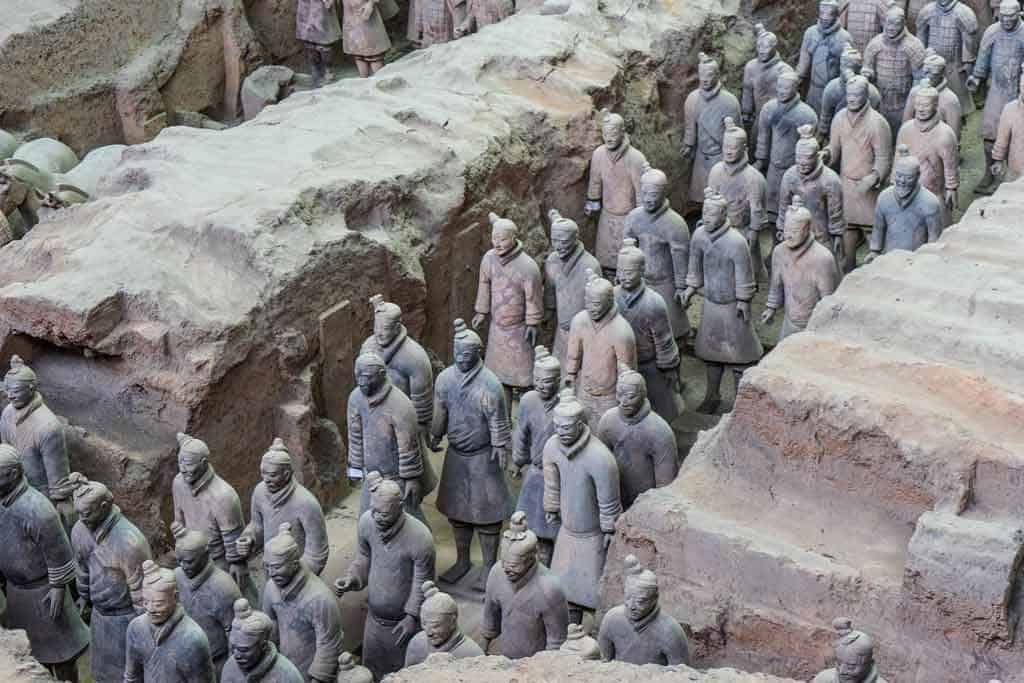
How to Travel to China
There are plenty of ways to travel to China. Whether you prefer to travel by air, land or sea you will find many options and rates for your travel into the country.
Flying is the fastest and most convenient way to travel from most countries in the world to China.
China air transport hubs are:
The biggest and most used airlines are:
- China Eastern Airlines
- China Southern Airlines
- Hainan Airlines
International flights connect China with major cities all around the world. Further, Chinese domestic flights connect all major cities within the country.
The only two cities in China that have two airports are Shanghai (Hongqiao International Airport and Pudong International Airport) and Beijing (Nanyuan Airport and Capital International Airport).
So be mindful of that when booking your flight.
There are eighteen cities in China that offer 72-hour visa-free transit so visitors can have a short stay in the most popular cities. Just note that these also tend to be the most expensive ones too.
From Europe:
Getting to China from Europe could be tricky and it most likely requires transfers.
That being said, you can still get to China from many European cities, such as Amsterdam, Milan, Rome, Brussels, Paris, Frankfurt, Manchester, Madrid, London, Zurich, Barcelona and Helsinki.
From the US:
It is possible to catch a direct flight from the US to China.
Most flights originate in San Francisco, Seattle, Detroit, Los Angeles, Seattle or Chicago and terminate in either Beijing or Shanghai.
Of course, pricing and availability vary. And you can expect the flights to be operated by one of the three big companies: Delta, American or United Airlines.
There are a variety of ways and border crossings when you want to visit china overland.
Travelling by train and vehicle are the most common.
The most usual way to get from Europe to China via train is to hop on the Trans-Siberian railway.
The Trans-Siberian train is a lot easier to arrange when it comes to booking a ticket or organizing your visas. And it is significantly faster.
The Trans-Siberian route, from Moscow – Beijing, is just one train. So in terms of being pragmatic and budget-friendly, this is the option we would recommend.
But that said, there’s another possible route: the Silk route via Kazakhstan.
Here you have the following options :
- London – Moscow
- Moscow – Astana or Almaty (Kazakhstan). This is the direct route for China
- Moscow – Bishkek (Kyrgyzstan)
- Moscow – Tashkent (Uzbekistan), if you wish to start from Uzbekistan
- Tashkent – Samarkand – Bukhara and Urgench for Khiva, these trains link Tashkent with three cities in Uzbekistan
- Tashkent – Almaty
- Almaty/ Astana – Ürümqi, which is the next step to China
- Ürümqi – Xian – Beijing
Train tickets are more expensive than traveling by air and transit times are longer too.
But i f you do want to spend some time in Uzbekistan, Kyrgyzstan or Kazakhstan then taking this route is a nice way to do sightseeing.
If you’re coming from USA/Canada, the easiest way would be to book your ticket to Moscow and then decide whether you want to take the Silk or the Trans-Siberian route.
We do not suggest driving because you could only drive to China, not inside the country.
International driver’s licenses are not valid in China.
So even if your starting point is from one of the neighbouring countries, it’s less hassle to book a train or hop on an airplane.
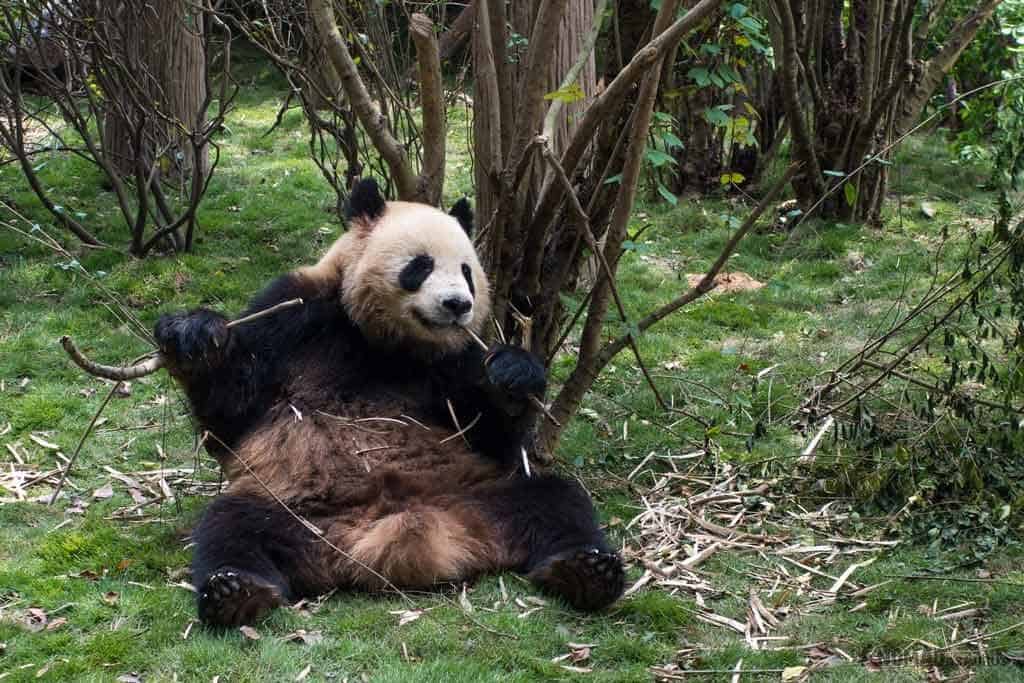
China Travel Tips
If you’re not from China or eastern Asia, you could find the culture and way of interacting to be quite strange.
The way of expressing emotions and opinions is quite different in China as compared to Western cultures.
But that’s just the beauty of cultural variety.
Besides that, there are certain things that you should pay attention to in order to have a good time in China.
And there are also things that you should know so that you will be respectful towards the locals.
Here are some tips we have for you during your stay in China:
- Don’t be afraid of raised voices! A lot of the time you will encounter Chinese people talking very loudly. In most cultures that would signalize that a heated discussion is about to turn into a brawl. But actually, Chinese people can tend to just talk loudly and passionately.
- Be sure to have Travel Insurance for the duration of your trip. One incident can cause a major impact on your wallet – not to mention your travel plans.
- Don’t tip. This might go against your personal beliefs, but Chinese don’t tip and neither should you. This will only confuse them or some may even find it insulting.
- Buy a VPN. There are a lot of useful websites that are not accessible in China (like Facebook or Google!) We recommend ExpressVPN. Use this link to get 30 days free when you sign up.
- The preferred method of payment is cash. Most places only accept cash unless you are visiting upscale hotels and restaurants.
- Use the Yuan currency only. The Hong Kong dollar or US dollar won’t be accepted.
- Install Pleco – the best app for Chinese language for travellers.
- Haggle. When merchants see that you are not a native Chinese, they will almost always rise the market price. It’s not unusual to haggle. Some merchants even respect you more if you do.
- Bring toilet paper and hand sanitizer. In a lot of toilets in China, you won’t always find these essentials.
- If in need of help, turn to the youth. Statistics have shown that a majority of Chinese under the age of 25 speak conversational English.
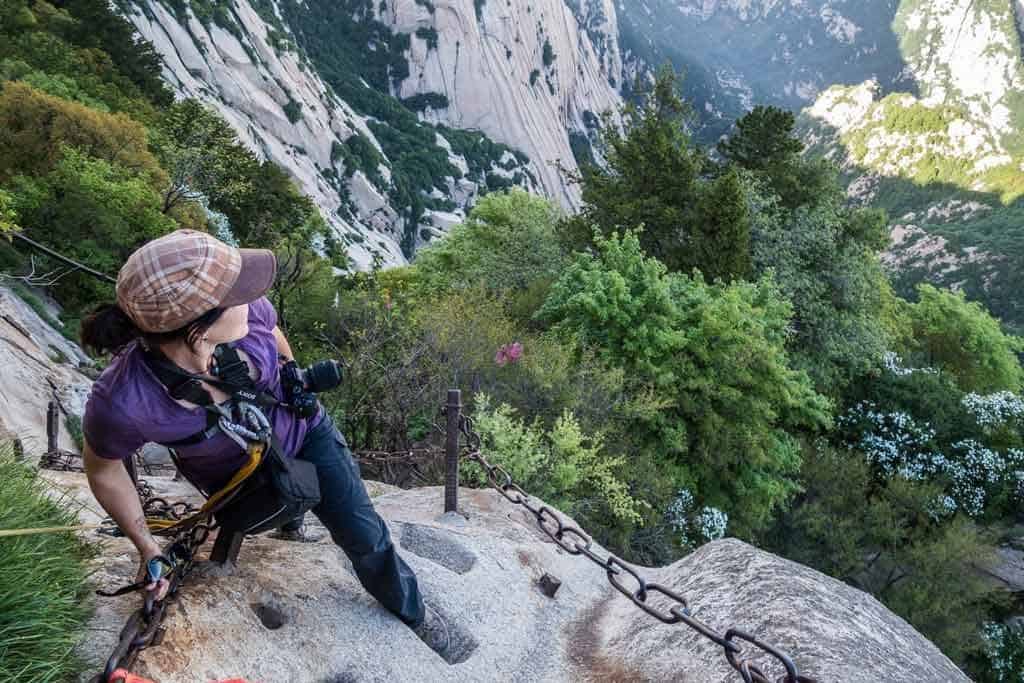
Budget for Travelling in China
China is a huge country and prices vary significantly depending on what region and what time of the year you’re visiting.
Since you’re probably interested in the range of prices of certain things you’ll definitely spend money on, we’ve decided to help.
Here’s a list of some essential expenses and their general cost range as you travel to metropolitan areas:
- Accommodation : $4 – $400+
- Food : $0.50 – $45+
- Drinks : $0.40 – $15
- Domestic/Local Transportation : $0.30 – $30
- Tours : $15 – $600+
When it comes to accommodation, the cheapest form is hostels.
In less touristy areas you can find mixed dorm beds from $4 USD per night.
Even in major cities, like Beijing and Shanghai, the prices start from $3 USD per night!
As for food, the best way to save money is to eat street food or visit a food court at a shopping mall.
The street food in China is not only cheap but also incredibly good. Even the wealthiest love to indulge in street food.
A filling meal from a street vendor would cost you up to $5 USD. But it’s usually less than that.
For transport costs, you can rent a bike, which is around $3 USD, depending on how much terrain you want to cover.
If you don’t have a budget for cultural activities, you’ll be relieved to know that there are many museums that don’t charge admission!
Flashpacker
There are a lot of mid-range accommodation options, from private rooms in hostels to private rooms in shared Airbnb and hotels.
Private rooms in hostels cost a little bit more than two beds in a mixed dorm room (around $8 USD per night) or a private room in an Airbnb (from $20 USD per night).
Mid-range hotel prices start from around $30 USD per night.
Eating out in local restaurants usually costs from $10-15 USD per meal.
The cost of an average alcoholic beverage in a bar would be around $8-10 USD.
Transport costs, such as taxi, could cost from $9 USD, of course depending on the time of the day (night fare is more expensive) and the distance you will cover.
But always ask for the price in advance before getting into the taxi!
Double rooms in a luxury hotel or a private home booked through Airbnb start from around 120$ USD per night.
Eating out at the most excellent restaurants (hotel restaurants or local ones) will cost you from $45 USD per meal.
There is an array of cultural activities available to all tastes and depending on your interest – whether it’d be visiting the Chinese national opera or the hottest night club – prices vary.
If you’re used to travelling in luxury through other countries, you can expect that China not only delivers the luxury to which you’re accustomed but also costs considerably lower when compared to other countries.
You could treat yourself to one of the most luxurious tours, such as a Zhujiajiao Water Village Tour from Shanghai.
Transportation In And Around China
China is a huge country and if you plan to travel around it – you’ll need some help.
Keep in mind that renting a car won’t be an option, since no international driver’s licence is valid in China!
Here are all the other ways to travel in cities and between them:
Chinese airlines are safe and comfortable.
There are over 1,200 routes and nearly 1,000 are domestic routes.
The most popular airports for domestic travel are in Shanghai, Guangzhou and Beijing.
Besides Macau and Hong Kong, there are over 200 airports in China that connect over a hundred internal cities and eighty foreign cities.
The most popular and reliable airlines are:
- Eastern Airlines
- Air China Limited
- Shandong Airlines
- Southern Airlines
- Shanghai Airlines
- Xiamen Airlines
- Shenzhen Airlines
- Sichuan Airlines
Public buses are generally crowded, but very affordable.
Try to avoid peak hours, as traffic jams occur in large and populous cities quite often.
The buses generally run from 6:30 in the morning to 7:30 in the evening.
In some cities they run through the night.
When you board the bus, at the front door there will be a coin box where you are expected to pay for your fare.
However, some buses have a ticket conductor that oftentimes charges according to how much distance you will cover.
The Intercity Long-Distance Bus
The intercity long-distance bus is another increasingly popular option attributed to the development and extension of highways.
All cities have coach stations which are located at the city’s railway station.
The long-distance buses operate between almost all Chinese cities.
The run time is usually from early morning to late in the evening, and for longer distances – there are fewer services throughout the day.
The buses usually have a toilet, TV, air-conditioning and some might even have a sleeping berth if it’s an overnight trip.
Mini-buses operate to try and alleviate the pressure of bus transportation.
The tickets are a bit higher in price and they’re determined by the distance you take.
Still, it is best to avoid peak hours which are from 7 am–9 am and 5 pm–7 pm.
Pay close attention to your belongings as pickpockets operate most during rush hour.
Tour buses usually feature a Chinese character ‘游’ in front of the bus number.
Tour buses are commonly seen in major Chinese cities where there are many famous highlights.
They have a predetermined scenic route and usually have a tour guide on board to share interesting bits of history and fun facts.
Trolleybus/Electric Buses
From 2010, trolleybuses have joined the public transit system in 14 Chinese cities.
All trolleybus systems in China hail from after the 1950s except in Shanghai.
Shanghai’s trolleybus system was opened in 1914 and is still operating – making it the oldest operating trolleybus system in the world.
Traveling by railway is the main means of transportation in China and its network is one of the biggest in the world.
The mileage of operating railways adds up to 124,000 kilometres and the number of passengers has surpassed 2.5 billion.
Out of the 124,000 kilometres of railway, the 22,000 kilometres are utilized by the high-speed railways.
The Chinese railway connects almost every place in China – even the most remote ones – and is the backbone of the Chinese traffic network.
The domestic trains are divided into five categories:
- High-speed/bullet trains
- Fast trains
- Tourist trains
- Express trains
- Normal trains
The High Speed/Bullet Train
This remarkable train, on average, operates fast as 250-300 km/h.
The price of tickets depends whether you want to buy first, second or business class as well as if they have a VIP category.
Some overnight trains offer soft and luxury soft sleeper options.
Many trains sell standing room tickets which cost the same as second class tickets.
The facilities are similar to those of an airplane.
The seats can be adjusted and you have use of a foldable table. Further, electrical sockets and meals and snack services are provided at a price.
This website will help with booking tickets and schedules.
The major cities have metro systems either already in operation, in planning stages or under construction.
The underground transit is developing at rapid speeds.
This is because one of the priorities to make China a greener country is to reduce the pollution of its cities and improve the quality of living.
Chinese metro systems are immaculate. They transfer large amounts of people, are very frequent and nearly always on time.
This contributes to diminishing the traffic jams and above ground transit.
The Shanghai Metro is the longest metro system in the world.
Taxi is a very convenient mode of transport and surprisingly not too expensive.
In major cities, all vehicles have a meter.
If you’re situated in a smaller town, ask at your hotel for a price estimate.
And if you’re thinking of covering a long distance, it’s possible to negotiate a deal.
Taxis are available at nearly all times and everywhere.
Chinese taxi drivers have a reputation of being very honourable. But it is always good practice to exercise caution.
China has over 110 thousand kilometres of navigable streams, lakes, rivers and canals.
The Grand Canal is 1794 kilometres long. It connects seventeen cities (from Beijing to Hangzhou) and five rivers (Huaihe, Qintang, Haihe, Yangtze and Huanghe.)
Since so many railways and highways have been built in recent years, waterway transport has diminished.
But there are still ways to move around the country via waterway – especially the Yangtze cruise (Baidi to Yichang), Beijing-Hangzhou Grand Canal and the Li River cruise (Guilin – Yangshuo).
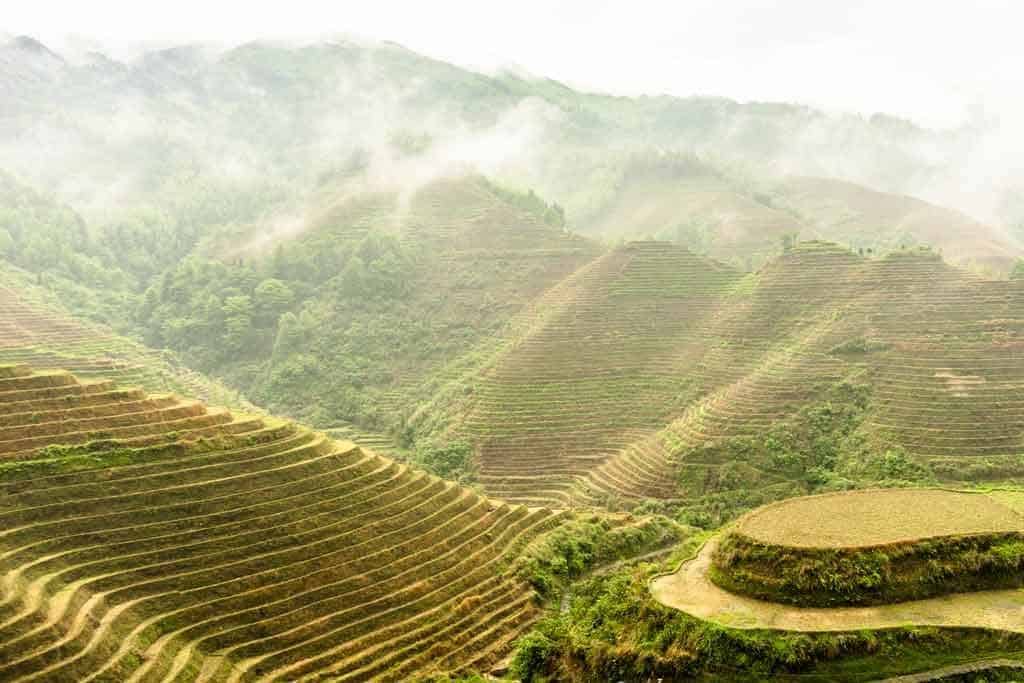
Accommodation in China
There is a lot of variety and options when it comes to accommodation in China.
On one hand, you can stay in a very cheap hostel (which doesn’t mean that it lacks quality!).
But China is also full of luxurious hotels and villas.
When picking a place to stay, you should be aware of the fact that, in the Chinese language, there are different words for hotel and they indicate the status of the place.
- Dajiudian – “Big wine shop” – luxury accommodation
- Shan Zhuang – “Mountain resort” – accommodation in the countryside
- Binguan & fandian – a general term for a hotel and can mean anything from an average hotel to a smart hotel.
- Kèzhàn – Basic guesthouse
- Zhāodàisuŏ – Hostel
- Lǚguăn/ lǚshè – inn
- Zhùsù – accommodation
China is one of the best places in the world when it comes to the number of affordable accommodation options!
The network of hostels in China is ever-expanding and most of them are affiliated with the International Youth Hostel Association.
They tend to have clean and modern facilities, nicely designed social spaces, friendly and English speaking staff and fast Wi-Fi.
Getting around China is challenging if you don’t speak the language, but the staff from hostels usually are willing to help you on your way.
They will gladly write the places that you need to visit or a couple of useful phrases to ease day to day communication.
Also, even booking a private room in a hostel is considerably cheaper when compared to European countries.
The quality of hostels is good and the prices tend to be very low.
If you’re in Shanghai, staying at the Mingtown Nanjing Road Youth Hostel will cost around $9 per night.
The dorms have 6 beds and male and female dorms are separate.
A deluxe private room in Beijing’s Chinese Box Courtyard Hostel costs around $50 and breakfast is included in the price.
The hostel also has a couple of free thematic nights, such as the free vegetarian dumpling party or the professional and traditional Chinese Kongfu tea course!
When it comes to cheap hotels, you will usually find these located near bus or train stations.
Chinese locals usually rent beds and not rooms, so doubling up with strangers isn’t uncommon, especially as a means of saving money.
But foreigners are not allowed to share a room with Chinese people.
Instead, they have to rent a whole room. But usually, you will be able to negotiate a good price.
If you’re an avid camper, just know that it is only possible to camp in Hong Kong.
There are free campsites all over the New Territories and in the beautiful nature of Qinghai, Gansu, Inner Mongolia, Xinjiang, Yunnan, Sichuan and Tibet.
But just know that to camp, you would have to obtain a government-issued permit.
Hong Kong, Macau and few southwestern provinces have a number of privately owned guesthouses.
They range in size and quality, from tents to family mansions.
A double room in one of these guesthouses is usually cheaper than in a hotel.
There is at least one mid-range hotel in every town in China.
But the quality of the hotel is hard to predict from the price itself.
An old hotel with faulty bathrooms and washed out sheets could charge you the same as a newly opened establishment.
The general rule is to always try to book the newer place.
In more isolated places, you should be able to find a double room for $20 USD per night. But in bigger cities from $40 USD per night.
One thing you can always rely on when staying in a Chinese hotel is that you will be left with a pair of plastic or paper slippers and a vacuum flask of hot water that can be refilled by the staff!
If you’re in Chengdu, the Chengdu Rising Butterfly Hotel is one of the best options.
Either a business twin room or a queen room costs a little over $50. And in some cases, breakfast is included in the price.
The Holiday Inn Express Yizhuang in Beijing will be a great experience.
The price of a standard room with free breakfast for two is usually around $70. But you can often find discounts and pay around $40!
Luxury hotels are situated in larger cities and offer the same level of service as any four or five-star hotel anywhere else in the world.
They have the same facilities that are to be expected: gyms, swimming pools and business centers.
The price of a double room will be from $120 upwards and an additional 15% service charge will be added.
The Niccolo Chengdu hotel is one of the most popular of its kind.
The very luxurious hotel will offer an incredible experience that will satisfy any type of guest – all for the price of $150 per night!
The Upper House in Hong Kong is the epitome of glamour and it’s especially great for business travel.
It has the largest hotel rooms in Hong Kong, along with ocean views and an amazing location.
The prices start at around $400, but the largest penthouse costs over $2000!
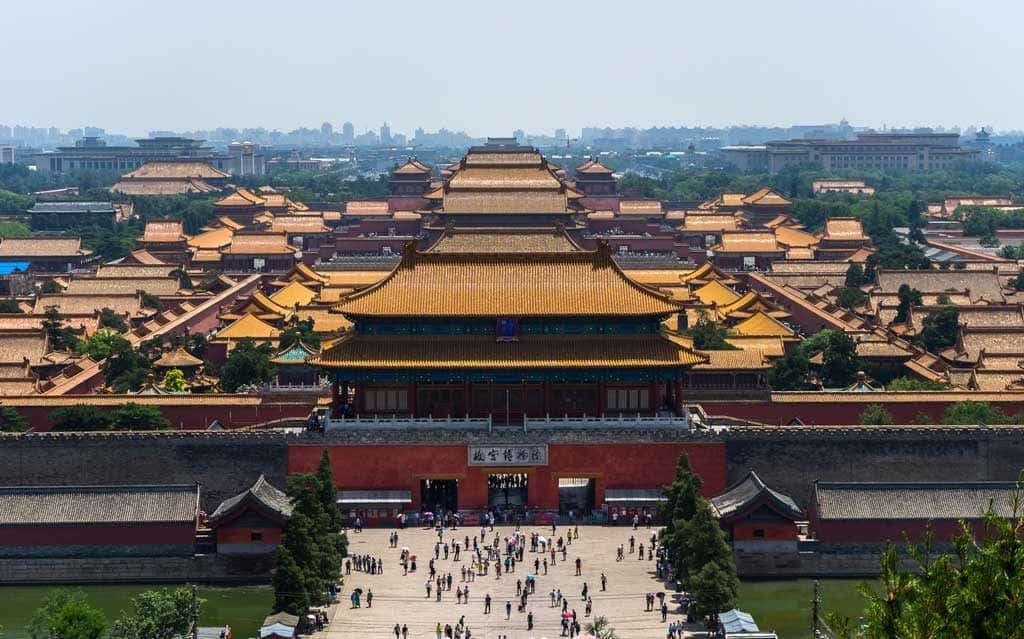
Safety While Travelling in China
China is regarded as a pretty safe and non-violent country.
If there is unrest it’s typically contained within certain areas.
Petty Crime
The biggest dangers are petty crimes such as pickpocketing – which with administering precaution is preventable.
Travellers are targets for pickpockets and thieves.
These thieves usually operate near train and bus stations, hard-seat train carriages, intercity but also long-distance buses (especially take precaution if you’re boarding the sleeper bus) and public toilets.
It is not advisable for women to travel solo.
Always check your restaurant bill to make sure you are not being charged extra for hidden expenses and avoid paying by credit card so you can make sure they won’t add any extra charges.
Safety in Taxis
The most widespread scam are the taxi scams at the Beijing Airport.
Always queue at the taxi rank and insist that the driver uses his meter.
Avoid pedicabs and motorized three-wheelers. Many times these drivers will agree on an initially negotiated price and then after you arrive at the destination they insist on a different sum, which sometimes can even be 10x the initial agreement.
Traffic Accidents
One of the dangers when traveling in China are the high numbers of traffic accidents.
The World Health Organization (WHO) made an estimate that there are approximately 600 vehicular deaths per day.
When taking a long-distance bus you’ll find that there are no seatbelts. Even taxis outside of major cities oftentimes don’t have rear seatbelts fitted.
The biggest danger is crossing the street no matter how ridiculous it sounds.
In China there are a large number of electric cars and hoverboards that run silently and you probably wouldn’t even hear them until it’s too late.
The red lights in China don’t mean much for Chinese drivers as they often run through them. So even the green figure signaling that it’s safe to cross doesn’t always mean that.

Medical System In China
The healthcare system in China is a mix of public and private services.
Major cities such as Beijing and Shanghai have hospitals with world-class care and specialist services.
Rural regions sometimes lack even the very basic healthcare services.
Sometimes healthcare options are limited to only types of traditional medicine such as acupressure, herbal remedies and acupuncture.
You should always travel with travel insurance ! A comprehensive travel medical insurance is mandatory for visitors.
If you are treated at a private hospital the price difference between a private and a public hospital is significant.
If you’re suffering serious health issues and at the time of medical assistance you’re in one of the more remote areas, you will have to organize an expensive airlift.
Preparation is key to easy and safe travels.
Make sure that your policy includes medical evacuation, translation service and private hospitals to ensure maximum comfort.
Packing List For Travel To China
While there is always a variety of packing options depending on the season and length of travel, these are the travel essentials we recommend for your trip to China.
Note: This list is intended for trips during spring and summer.
Clothing And Wardrobe For Men And Women
- 3x Comfortable, long pants
- 5x Short-sleeved shirts
- 2x Long-sleeved shirts
- 1x Wool sweater
- 1x Windbreaker/rain jacket
- 1x Fleece jacket
- 1x Flip flops
- 1x Adventure sandals
- 1x Waterproof shoes
- 1x Hiking shoes
- Undergarments
- Breathable socks
Miscellaneous Items
- Extra SD memory card
- A cellphone (make sure to have an offline Translator App, phrasebook, copies of needed travel documents and ids, currency converter, copy of your insurance card/policy and emergency contact info)
- Portable battery
- Power adapter
- Sunhat with a wide brim and a chin strap
- Insect repellent
- Toilet paper
- Hand sanitizer
- Guide book and a map
- Pocket knife
- Book with everyday phrases in Chinese
- Reusable water bottle
Check Out Our China Travel Blogs
Surviving the world’s most dangerous hike – mt huashan, the 10 best things to do in hangzhou, china (2024 guide), 26 awesome things to do in beijing, china (2024 guide), the perfect 3 days in taipei itinerary [2024 guide], 3 days in chengdu, china – the perfect itinerary, tianducheng – china’s strange city of paris, mount cangshan – hiking high in dali, falling in love with shaxi, china, the ‘real’ china – the ancient village of chengyang, the tibetan overland route from shangri la to chengdu, the gruesome world of harbin’s siberian tiger park, enchanting beauty and sustainability in yangshuo, china.

US issues level 3 travel advisory to China amid safety concerns. Here's what to know
Are you thinking about traveling to China to visit or study abroad? The U.S. government suggests reconsidering your trip for now.
According to the U.S. Department of State , traveling to China is under a level 3 travel advisory , warning Americans to reconsider. The State Department has four warning levels. The fourth is “Do not travel.”
Is it safe to travel to China right now?
The U.S. is asking Americans to reconsider traveling to China due to various reasons, including concerns about health and safety, such as the prevalence of contagious diseases like COVID-19, as well as political tensions or security risks in certain regions.
As of April 12, there are some specific areas that the U.S. is asking people to reconsider travel to. Those areas include:
- Mainland China due to the arbitrary enforcement of local laws, including exit bans and the risk of wrongful detentions.
- Exercise increased caution when traveling to the Hong Kong SAR due to the arbitrary enforcement of local laws.
- Reconsider travel to the Macau SAR due to a limited ability to provide emergency consular services.
Additionally, the U.S. government may issue travel advisories based on factors like civil unrest, natural disasters, or other hazards that could affect travelers' well-being.
Americans detained in China
Mark Swidan — a man from Houston, Texas — has been detained in China for over 10 years on drug charges. According to The Texas Tribune , Swidan was detained in China in 2012 while on a trip looking for materials for his home and business in Houston. Chinese authorities arrested him after his driver and translator were found in possession of drugs. The driver blamed Swidan, who is accused of trafficking and manufacturing methamphetamine.
A review of Swidan’s case said there were no drugs on him or in his hotel. Last year, the Republic of China’s Jiangmen Intermediate Court denied Swidan’s appeal and upheld his death penalty with a two-year suspended death sentence.
Other Americans considered wrongfully detained include Chinese American businessman Kai Li from Long Island, N.Y., and California pastor David Lin.
What countries have a Level 3 travel warning?
- Trinidad & Tobago
- El Salvador
- South Sudan
- Democratic Republic of the Congo
- Papua New Guinea
- Saudi Arabia
What countries have a Level 4 travel warning?
- Afghanistan
- Central African Republic
- North Korea (Democratic People's Republic of Korea)
- Burkina Faso
Traveling abroad? Here are some safety tips
U.S. citizens are encouraged to enroll in the State Department’s free Smart Traveler Enrollment Program and to prepare contingency plans for emergencies.
Safety tips if you're traveling outside the U.S.:
- Don't travel alone.
- Be aware of your surroundings.
- Keep a low profile.
- Try not to be flashy.
- Avoid going to places at night, especially by yourself.
This article originally appeared on Austin American-Statesman: US issues level 3 travel advisory to China amid safety concerns. Here's what to know

The first timer's guide to China: where to go and what to do
- 86-19138970032 (GMT+8 18:00~09:00)
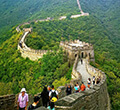
- Beijing Xian Tours
- Shanghai Beijing Tours
- Hong Kong Guilin Tours
- Hangzhou Suzhou Tours
- Kunming Lijiang Tours
- Shanghai Yangtze Cruise Tours
- Chengdu Tibet Tours
- More Short Stay Tours
- China Tours in January
- China Tours in February
- China Tours in March
- China Tours in April
- China Tours in May
- China Tours in June
- China Tours in July
- China Tours in August
- China Tours in September
- China Tours in October
- China Tours in November
- China Tours in December

- High Speed Trains
- China Yangtze Cruise Tour
- Photography
- Desert Adventure
- Ethnic Villages
- Biking Tours
- Kung Fu Tours
- Heritage Sites Exploration
- China Spring Tours
- China Summer Tours
- China Autumn Tours
- China Winter Tours
Notice! 2024 available cruise routes include 4~5 days Chongqing-Yichang(most classic) and 11~12 days Chongqing-Yichang-Shanghai(limited).
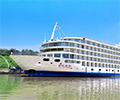
- Best-value Yangtze Cruises
- Top Family-friendly Cruise Ships
- Top 3 Luxury Yangtze River Cruises
- Yangtze River Highlights
- Yangtze River Cruise Routes
- Upstream or Downstream?
- Dining & Drinking
- Accommodations
- On-board Activities
- Yangtze Cruise Booking Steps
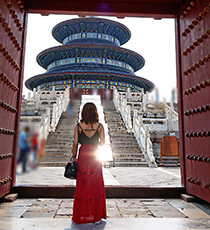
- Inner Mongolia
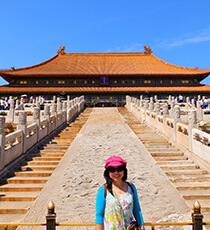
- Fanjingshan
- How to Plan Your First China Tour
- How to Plan Beijing Tour
- How to Plan Xian Tour
- How to Plan Shanghai Tour
- How to Plan Guilin Tour
- How to Plan Sichuan Tour
- How to Plan Family Tour
- 2024 China Travel Ideas
- Best Time to Visit China
- What to Pack for Your China Journey
- Make Payment in China & Currency Exchange
- Updated China Travel News
- Ultimate Chinese Visa Guide
- Chinese Visa Types
- Chinese Visa Requirements
- Do I Need a Visa for China
- Chinese Visa Application
- Chinese Visa Exemptions
- 144-hour Visa Free
- Shenzhen Visa on Arrival
- Hainan 30-day Visa Free
- Embassies & Consulates
- Invitation Letter
- Useful Visa FAQs & Tips
- Entry Regulations
- Baggage Allowance
- Customs Declaration
- Exit Regulation
- How to Book Train Tickets
- How to Collect Train Tickets
- How to Cancel & Alter Train Tickets
- How to Read Train Tickets
- China High Speed Train Types
- Seats Class & How to Choose
- Friendly Facilities on the Train
- The Train Station Departure Process
- Available Food and Drinks on the Train
- Western Toilets on the Train
- Luggage Racks & Baggage Allowance
- Beijing Train Stations
- Shanghai Train Stations
- Guilin Train Stations
- Xian Train Stations
- Chengdu Train Stations
- Hong Kong West Kowloon Railway Station
- Beijing - Xian
- Beijing - Shanghai
- Guangzhou - Shanghai
- Shenzhen - Shanghai
- Chengdu - Xian
- Shanghai - Hangzhou
- Shanghai - Xian
- Chengdu - Chongqing
- Kunming - Lijiang
- Beijing Capital International
- Beijing Daxing International
- Shanghai Pudong International
- Shanghai Hongqiao International
- Guangzhou Baiyun International
- Hangzhou Xiaoshan International
- Chengdu Tianfu International
- Chengdu Shuangliu International
- Xian Xianyang International
- Shanghai - Beijing
- Hong Kong - Shanghai
- Guangzhou - Beijing
- Chengdu - Lhasa
- Shanghai - Guilin
- Shanghai - Sanya
- Travel in Spring Season
- Travel in Summer Season
- Travel in Autumn Season
- Travel in Winter Season
- Weather in January
- Weather in February
- Weather in March
- Weather in April
- Weather in May
- Weather in June
- Weather in July
- Weather in August
- Weather in September
- Weather in October
- Weather in November
- Weather in December
- Top 10 China Destinations
- Top 15 Things to Do
- China World Heritage Sites
- Top 10 Best Natural Beauties
- Top 10 Museums in China
- Top 10 Old Towns & Villages
- Five Great Mountains in China
- Top 10 Monasteries & Temples
- Top 10 Ski Resorts
- Top 10 Beautiful Lakes in China
- 7 Best Beaches in Sanya
- Top 6 Beautiful Waterfalls
- Panda Volunteering
- Having fun on Ice and Snow Festival
- About Us Who We Are Our Team Why Travel with Us Feedback & Reviews Travel Stories Travelers' Gallery Payment Guide Customer Support Contact Us
- Tour Experiences
- Destinations
- Travel Guide
China Travel Tips: Useful Tips for Visiting China in 2024
We've got the answers to all your questions about China Tours , Yangtze River Cruise and Tibet Discovery - and some you'd never think to ask. Choose a topic below to read through a list of questions and answers. If you have a question of your own that we haven't answered here, feel free to contact us .
Documents like Passport, Visa & Permit
1. Who needs a Chinese visa?
2. Can I visit China without a visa?
3. Do I need a Chinese visa to transit via China solely?
4. How long would it take to get the Chinese visa?
5. Could you send an invitation letter for the Chinese Embassy both in English and Chinese so we can get the visa more easily?
7. Do we need Hong Kong visa if we enter Chinese Mainland from Hong Kong? Or double visa needed if we reach and depart from Hong Kong?
>>More Chinese Visa FAQs & tips
Money & Reservation
1. What kind of payment method do you accept?
2. How soon before our trip do you need payment?
3. When should we pay the deposit and the balance?
4. Is it a good idea to bring dollars in China for the trip or is it better to have RMB with us that we will withdraw from ATM?
5. How much cash should we take for tip, meals and others?
Tour Itinerary / Tour Arrangement
1. I am interested in your website’s sample itinerary. Can I add more spots and tell more specific requirements and needs?
2. Can I modify the itinerary before I start the tour?
3. How flexible is China Discovery’s tour?
4. What does a private tour mean?
5. What are the differences between Private Tour and Group Tour?
6. Can I choose private tour, group tour and independent travel during my China travel?
7. Is there are discount if we have many people in our group? And early bird booking?
8. If we have a lot free time and don’t want to stay in the hotels, what can we do?
Transportation like Flights & Trains
1. Can you arrange flight and train tickets for us?
2. Can you arrange international flights from and back to our country?
3. What is the soft / hard sleeper car like? Is bumpy and loud? Can you send pic?
4. What airlines/type of plane you may choose? Which is the most reliable airplane for safety?
Tour Guide, Driver & Private Car
1. Can we get a tour guide who can speak our language?
2. What kind of vehicles do we use during our tour?
3. Can the private car have enough space to store our luggage?
4. Can I only have driver without guide as I understand Chinese?
5. How can I contact our tour guide in each destination?
6. How can I find my tour guide at the airport / railway station?
7. What time will we be picked up from our hotel each day?
8. Could you give me an idea as to what is expected in way of tips for guides, drivers, hotel staff, etc.?
Food & Dining
1. I see some lunches are not listed in your website’s sample itinerary, can you arrange lunch for our tour?
2. I am a vegetarian. Will you provide vegetarian meals for me? How about Halal food or Moslem food?
3. Can you include some authentic local food, like Sichuan cuisine, Hunan cuisine?
4. Do our tour guides and drivers have meals with us?
5. I have some meals on our own. Can you give us some suggestions?
Accommodation
1. What type of accommodation will we be staying in?
2. Where are our chosen hotels located? Is it close to shopping area or scenic spots?
3. Does the hotel staff speak English?
4. Can I book the hotels by myself?
5. Do we need to bring the converter or is there one at the hotels?
Yangtze River Cruises FAQs & Tips
1. What's the best way to get to Chongqing from Chengdu?
2. How I can pick up my cruise cabin ticket?
3. Is there any sightseeing of real interest at either Yichang or Chongqing to do before or after the cruise?
4. Can you offer pick-ups and drop-offs to and from the cruise?
5. Is it easy to get a taxi from the pier in Chongqing?
6. How should we find the guide after we disembark from the boat?
7. What time can we start boarding the ship in Chongqing or Yichang?
>>more Yangtze cruise FAQs & tips
Tibet Discovery FAQs & Tips
1. What is the best season for tour in Tibet?
2. What is the average temperature like in Lhasa?
3. What documents do I need for Tibet travel?
4. Can your company organize the permit for Tibet?
5. How long before we come do you need our passport and visa copies?
- 6. Is independent tour allowed in Tibet? Independent tour is prohibited in Tibet. You should take part in an organized group or have the local travel operator to arrange for you.
7. How to enter Tibet?
8. What are some popular places in Tibet?
9. Do you arrange Nepal Tours?
10. Can we start a tour from Kathmandu and finish at Lhasa?
11. Can children be allowed to the Mt. Everest?
12. Can we take the northern route to Ali?
13. Do the travelers need to ask the permissions before taking the photos of Tibetans?
14. What are the hotels like in Tibet?
15. What can we eat in Tibet?
16. Do you think we need one more day in Tibet to get used to altitude?
>>Tibet Tours and Travel
More China Travel Tips & FAQs
- Shanghai Travel Tips & FAQs
- Guilin Travel Tips & FAQs
- Hong Kong Travel Tips & FAQs
- Xian Travel Tips & FAQs
- Jiuzhaigou Travel Tips & FAQs
- Huangshan Travel Tips & FAQs
- Xinjiang Travel Tips & FAQs
- Zhangjiajie Travel Tips & FAQs
- Fujian Tulou Travel Tips & FAQs
- Hangzhou Travel Tips & FAQs
- Silk Road Travel Tips & FAQs
- Western Sichuan Travel Tips & FAQs
- Shandong Travel Tips & FAQs
- Dunhuang Travel Tips & FAQs
Recommended Tours
Top 3 tours chosen by most customers to explore in the best way. Check the detailed itinerary, or tailor your own trip now with us.
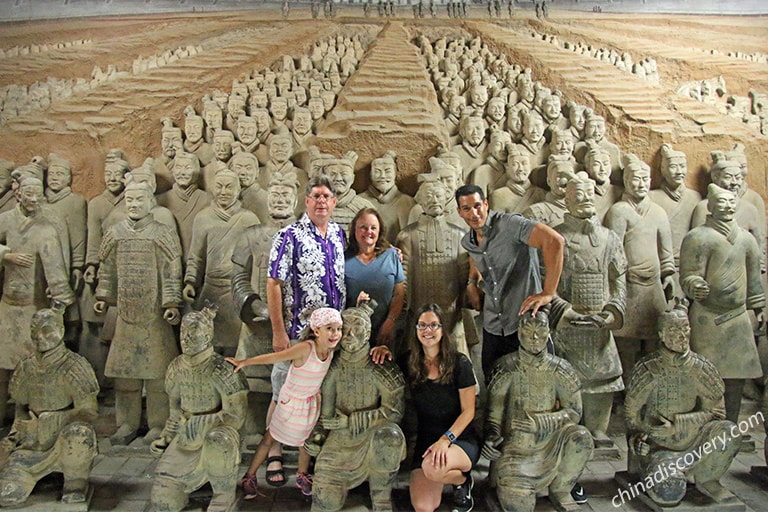
Beijing / Xian / Shanghai
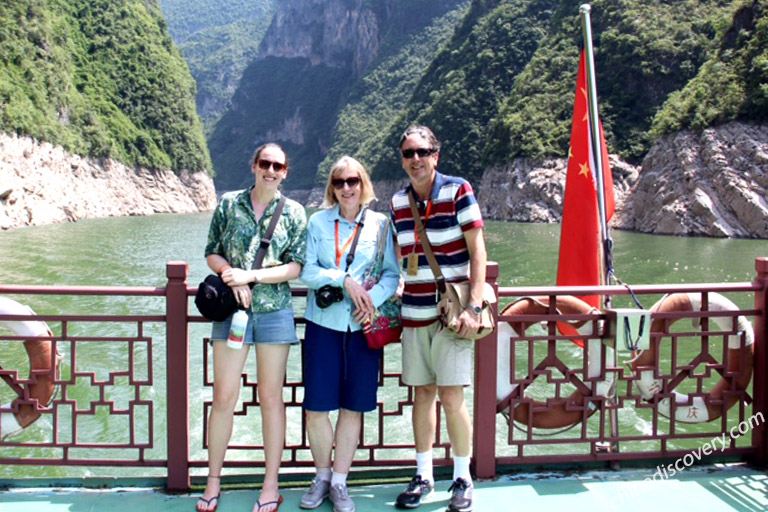
Beijing / Xian / Guilin / Yangshuo / Yangtze Cruise / Shanghai
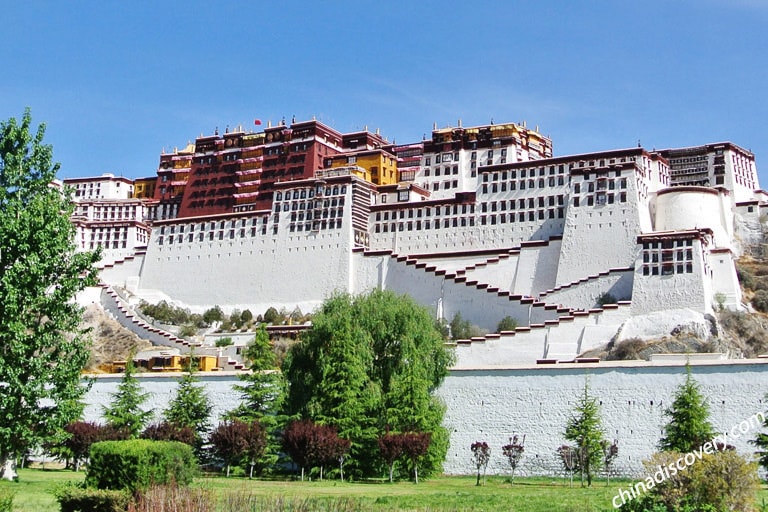
Shanghai / Guilin / Yangshuo / Guilin / Chengdu / Lhasa / Xian / Beijing
Start planning your tailor-made holiday to China by contacting one of our specialists. Once inquired, you’ll get a response within 0.5~23.5 hours.

Have a question? Get answers from our travel experts or guests
- Your Question:
- Your Email:
- Affordable and valuable price
- 100% tailor-made packages
- Highly rated customers reviews
- Efficient customer support
China Tours
- Top 10 China Tours
Nomadic Matt's Travel Site
Travel Better, Cheaper, Longer
China Travel Guide
Last Updated: September 1, 2023
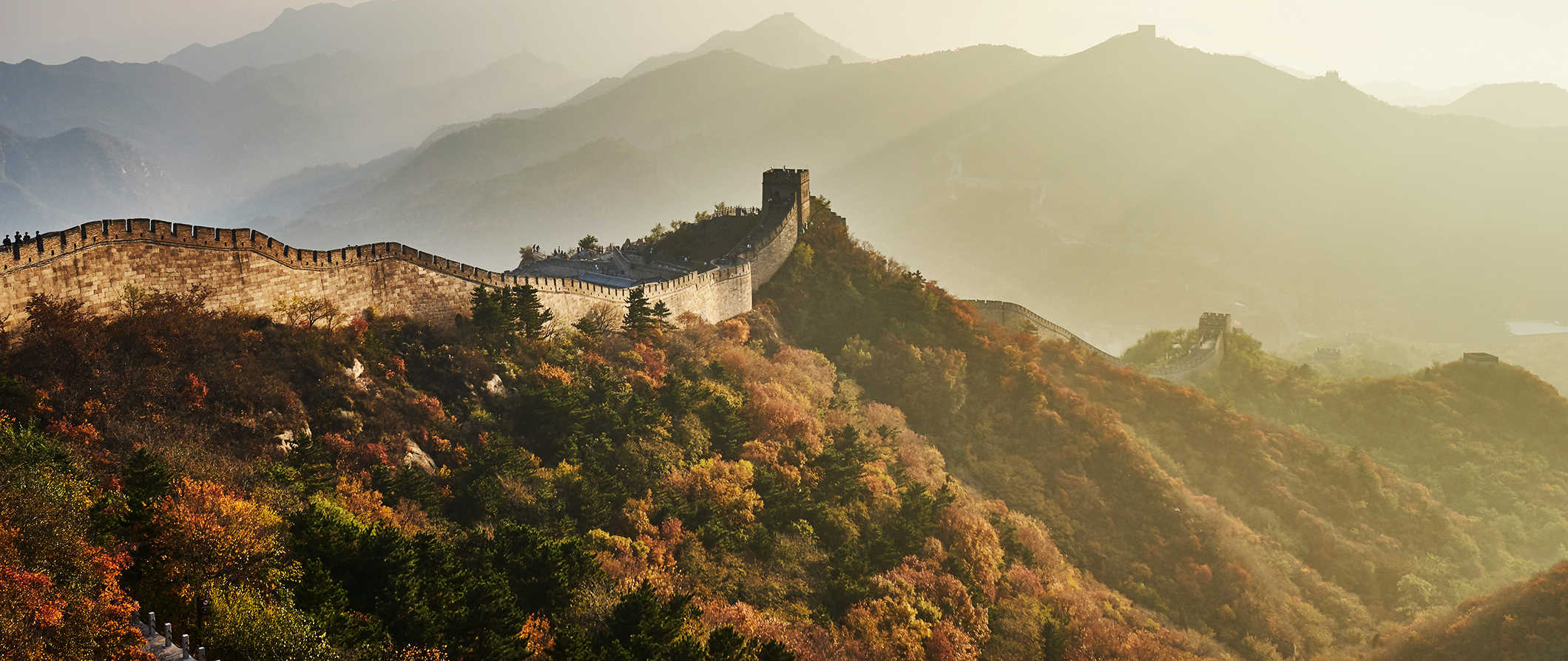
China is a country filled with micro-cultures, languages, cuisines, and ethnicities. Rapid change has attracted curious people from around the globe and there is a thriving expat scene for anyone looking to teach overseas.
While I dislike the pollution of many of the big cities, the countryside, the food, people, and the history you’ll discover here will leave you in awe and forever changed. This is a country with layers where everything is filled with meaning and history.
This travel guide to China can help you plan your visit to this gigantic country (there’s over a billion people here covering 9.5 million square kilometers) with advice on things to do, how to get around, stay safe, save money, and much, much more!
Table of Contents
- Things to See and Do
- Typical Costs
- Suggested Budget
- Money Saving Tips
- Where To Stay
- How to Get Around
- How to Stay Safe
- Best Places to Book Your Trip
- Related Blogs on China
Click Here for City Guides
Top 5 things to see and do in china.
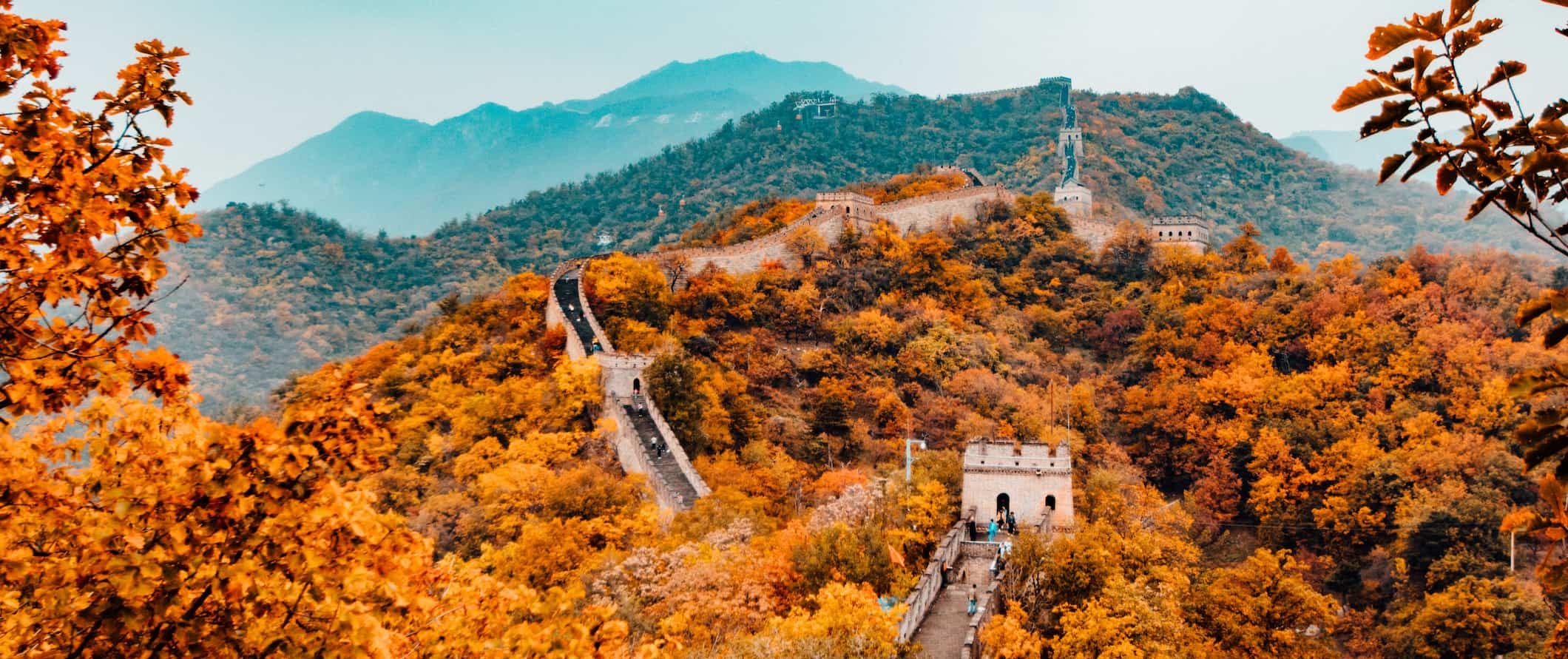
1. Visit Hong Kong
Hong Kong is bustling metropolis that combines high rise buildings with traditional street markets and temples. You have a large expat population, good shopping, fantastic nightlife, and delicious food. It’s one of my favorite cities in the world and I never get tired of visiting!
2. Explore Shanghai
One of China’s largest, busiest, and most visited cities, Shanghai is like visiting the future — fast trains, lights everywhere, efficient organization, and a cosmopolitan vibe. I love Shanghai. To get a sense of historical China, head to the Old City and see the YuYuan Gardens. For some of the best shopping in China, head to Nanjing Road.
3. Wander Beijing
Visit Tian’anmen Square, the Forbidden City, countless shopping malls, the Temple of Heaven, Summer Palace, and of course, the Great Wall. There’s nothing like Beijing in the world, and, though horribly polluted and with awful air quality, it’s still a city you have to visit in order to understand modern China and its dynamism.
4. The Great Wall of China
Stretching over 21,000 kilometers, the Great Wall offers both busy tourist sections as well as secluded ruins (you can even camp beside it in some areas). If you’re on a budget, you can take the public bus to the wall near Beijing. The bus is 12 CNY and admission to the wall is 40 CNY (45 CNY in the summer).
5. See Xi’An
Xi’an is one of the ancient capitals of China and home to the famed Terracotta Army (which is over 2,000 years old), city wall, and architecture of the Muslim quarters. Those three things are pretty much why everyone comes here but there’s also an incredible hike on Mount Hua if you’re looking for adventure.
Other Things to See and Do in China
1. tian’anmen square.
You’ve no doubt seen it in films and on TV, but it is hard to get an idea of the sheer size of this square until you’re standing square in the middle of it. There’s plenty to see here including the Tiananmen Tower, the Great Hall of the People, the People’s Heroes Monument, the National Museum and Mao Zedong’s mausoleum. While you are allowed to take photos in the square itself, you cannot use your camera in the mausoleum.
2. Gorge on food
China is a food lover’s paradise. Eating here will certainly put your take-out back home into perspective. In such a huge country, it’s no surprise that different areas have different culinary delights. It’s entirely possible to enjoy the four styles of Chinese cooking (Cantonese, Beijing, Shanghai, and Sichuan) while on your trip. For spicy food, head to Sichuan or Hunnan in Central China (be sure to try the hot pot while you’re there).
You’ll find more salty items like dried meats and pickled vegetables in the north (where fresh produce is less common) while in cities like Beijing, Hong Kong, and Shanghai you can pretty much find everything!
There are plenty of options for vegetarians in China as well, and even vegans can get by without too much difficulty.
3. Cruise the Li River
For a true sense of natural beauty, cruise down the Li River. The river is 272 miles long and has dozens of places to explore along the way. Some of the best photography spots can be found in Xiaolong, Laozhai Hill, and the karst mountains near Guilin. For tours, prices start at 500 CNY per person, depending on how long (or luxurious) of a cruise you want.
4. Visit the Forbidden City
This famous attraction in Beijing was the imperial palace from the time of the Ming Dynasty to the Qing Dynasty (1420-1912 CE). The “city” covers over 175 acres and is a UNESCO World Heritage Site, welcoming over 16 million visitors each year. Today, the Palace Museum holds artifacts from both dynasties and is a great place to learn about China’s history. The buildings, which cover over 180 acres, have been heavily renovated over the years but it’s still an epic complex worth visiting.
5. Travel (part of) the Silk Road
Dating back over 2,000 years, this unofficial route is a must-see for visitors looking to get off the main tourist trail. There is no “official” road to follow, but you can trace your way along the traditional route as far and wide as you’d like (the Silk Road originally spanned from Chang’an to Romend, Italy). Its total length was over 3,800 kilometers (2,400 miles), half of which was within Chinese territory. Be sure to see the Mogao Caves in Dunhuang, the ancient city of Turpan, and the Rainbow Mountains near Zhangye.
6. Explore Tibet
Also known as “the Roof of the World”, this area is perfect for adventurous travelers that are looking for unique attraction. Explore the snowy mountains, exotic customs, and Buddhism. Tibet has had tumultuous past, so during your visit, it’s wise not to bring up the Dali Lama. The region was annexed by China in the 1950s, forcing the Dalai Lama and his government into exile. Some 400,000 Tibetans were killed directly or indirectly by the occupation, with other estimates placing that number over 1 million. Avoid talking about the history and politics of the region as is it understandably a very sensitive subject for both sides. You’ll need a special permit to visit the region as well.
7. Potala Palace
This Tibetan palace was home to the Dalai Lamas up until 1959, when he was forced to flee or be killed. Established as a holy site in the 7th century, the many halls, temples, and courtyards have been constructed from wood and stone. The current building, which is now a UNESCO World Heritage Site, dates to the 17th-century and has poured copper in its foundation to stabilize it against earthquakes.
8. Take in the Karst mountains
Illustrated on the back of the 20 yuan banknote, these mountains are a stunning sight to see in person. They’re huge! You can take a boat trip down the Li River, and enjoy the breathtaking views of the mountains. You can also rent a bicycle to explore the quieter backroads and take in the picturesque landscape. Prices begin around 20 CNY for a half day. Guilin is a great hopping-off place for this.
9. The Mogao Grottos of Dunhuang
Also known as the Thousand Buddha Caves, these grottos are home to the largest, best-preserved, and richest Buddhist art in the world—the first cave was carved here in 366 AD. There are almost 500 individual temples here and it’s one of the main stops on the Silk Road if you are tracing the footsteps of Marco Polo.
10. Take a free walking tour
All of the major cities in the country offer various types of walking tours, many of which are free and last a few hours. If you want to learn about the history of China’s major cities, this is a great way to start! Whenever I land in a new city, this is how I kick off my trip as it helps me get the lay of the land. Free walking tours are available in Beijing, Shanghai, Hong Kong, Xi’an, and many other cities around the country. Just Google “free walking tour in X” to find the companies that are available during your visit. Just be sure to tip your guide at the end (that’s how they get paid!).
11. Let loose in Macau
Macau is considered the “Las Vegas of Asia” and is a fun destination for anyone looking to splash out. Macau started as a Portuguese colony and remained one for over 300 years so the city has an interesting mix of Chinese and Portuguese cultures. Like Hong Kong, Macau is a “Special Administrative Region” which means it has a lot of autonomy from the mainland government It is also home to the highest bungee jump in the world, boasting a plunge of a whopping 233 meters (764 ft)! I don’t love the city as much as I do Hong Kong but you’ll find a lot of good food and architecture here. If you’re not here to gamble, you only really need one night here!
12. Visit the Pandas in Chengdu
Pandas are an endangered species and rare to see in the wild. If you want to get your fix while in China, head to the Panda Research Base in Chengdu. If you get there early you can beat the crowds and watch the pandas relax, eat, and sleep (that’s all they really do — but it’s still worth seeing!). Admission is 55 CNY per person.
13. Take a class
Calligraphy classes, cooking classes, tea ceremonies — you can find all sorts of amazing, culturally-enriching classes and lessons in all of the major cities in China. Some last an hour, some last multiple days, but no matter what you’re interested in you can find a class to teach you something new! Expect to pay between 300-900 CNY for a calligraphy class while cooking classes start at around 300 CNY per person. You’ll find the most options in Beijing, Shanghai, and Hong Kong. Viator.com is a great resource for finding classes near you. You can also use cookly.me to find cooking classes and prices all around the country as well.
China Travel Costs
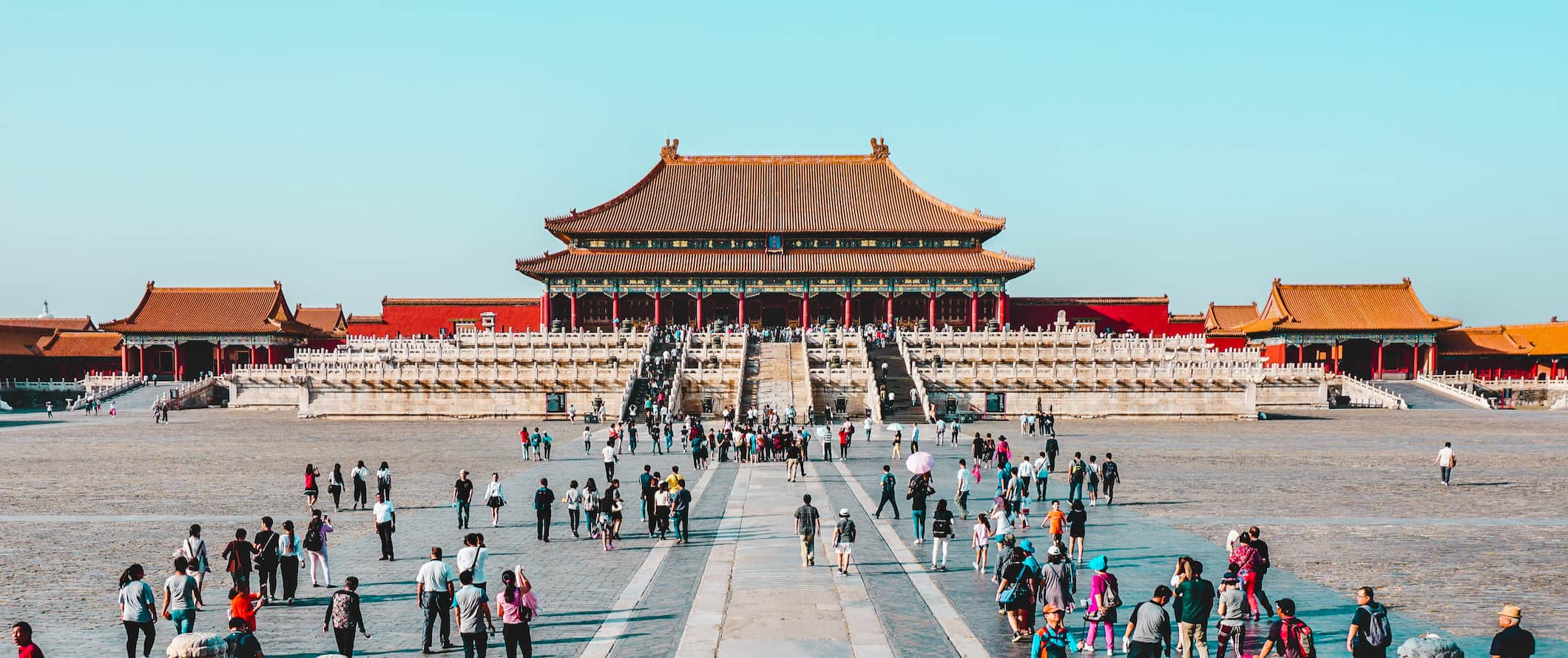
Accommodation – Prices start at around 30 CNY for an 8-10 bed dorm in many of the smaller cities. Expect to pay closer to 85 CNY in Hong Kong and Beijing. For a private room, prices begin around 110 CNY though expect to pay almost double that in the larger cities. Hostels here are generally well equipped and have free Wi-Fi, drinking water, lockers, and even warm blankets in the winter! Hostels in cities will have western-style toilets, though in more remote parts of the country you may find squat toilets more common.
Budget hotels begin around 75 CNY per night for basic accommodations, with higher prices in Hong Kong. Budget hotels will usually include heat or AC, your own bathroom, a kettle, and TV (though you’ll only get Chinese stations). Keep in mind that any hotels offering free breakfast will likely be serving a Chinese breakfast (dumplings, rice congee, vegetables, etc.).
Airbnb is plentiful in China and can be found in all the major cities though it’s much less common in rural areas. Prices range from 175-750 CNY depending on the city and the type of apartment.
There are plenty of campgrounds around the country. Expect to pay around 20 CNY per night for a basic plot. Wild camping is a grey area; it’s both legal and illegal at the same time to allow local authorities the final say. I would avoid wild camping and stick to official campgrounds as to avoid any problems.
Food – Food in China is cheap. I mean, really cheap. A meal from a street vendor usually goes for around 7-14 CNY. For this, you might get noodles, rice, pork buns, or soup. A full meal in a sit-down restaurant will cost between 15-54 CNY plus the fee for a bowl of rice and clean bowls (yes, these cost extra!), which is often around 4 CNY. If you stick to the local food, you’ll find it hard to go broke. You could spend less than 70 CNY for an entire day’s worth of food.
In western China, southwestern China, and the interior, food is much cheaper than in the big cities and you can eat for under 35 CNY per day — about half the costs of the big cities as long as you stick to street food/local restaurants.
For Western food, you can expect to pay much higher prices for food that will be a disappointment compared to home — especially if you’re outside of the more Westernized cities like Hong Kong. A western-style sandwich or fast food meal can run about 40 CNY and a cup of coffee can be similarly-priced to back home — sometimes more!
Vegetarians and even vegans will be able to get by relatively easily in the cities with a little planning as China’s history with Buddhism has made the country quite veg-friendly.
Since food is so cheap, there’s no need to self-cater or cook your own meals. You are better off eating the street food and at the restaurants. Moreover, many hostels don’t have kitchen facilities for you to use even if you did go grocery shopping. Therefore, self-catering is not something I recommend. The food is cheap and plentiful, so enjoy it! If you will be buying your own groceries, expect to spend between 250-400 CNY depending on your diet.
Activities – In general, sights are affordable in China — even popular attractions such as the Great Wall or the Forbidden City are under 68 CNY. While the Great Wall never kept out invaders, it’s beautiful and is only 45 CNY, the Forbidden City is 60 CNY (40 CNY if you visit between November and March). Smaller temples, activities, and sights are much more reasonably priced and cost under 20 CNY.
While attractions and temples are less than 70 CNY, prices for hikes and outdoor activities tend to be more expensive, often costing around 200 CNY. For example, a trip to the Jade Dragon Snow Mountain costs around 200 CNY, a visit to the Jiuzhai Valley is also 200 CNY (as much as 2,000 CNY if you want to go as part of a tour) and a three-day pass to the Wuyi Mountains in Fujian province is 140 CNY while admission to the Yellow Mountains in Anhui province is 190 CNY. You’ll still need to pay for transportation to these places as well.
Backpacking China Suggested Budgets
How much does it cost to visit China? Here are some suggested budgets you can use to help you plan, based on your individual style of traveling. Keep in mind that if you’re staying in cities like Hong Kong, Beijing, or Shanghai you should expect to spend at least 20% more.
On a backpacker’s budget, you should plan to spend between 215-285 ($30-50 USD) per day. This is a suggested budget assuming you’re staying in a hostel dorm, eating fast food occasionally but mainly cooking your own meals, using public transportation, and participating in basic activities like visiting museums.
On a mid-range budget of 645-1,000 CNY ($90-140 USD) per day, you can stay in budget hotels, take buses between destinations, eat fast food, and do more excursions.
For a luxury budget of 1,500 CNY ($210 USD) per day, you can afford to stay in nice hotels, take the high-speed train, do some guided tours, and eat out for every meal.
You can use the chart below to get some idea of how much you need to budget daily, depending on your travel style. Keep in mind these are daily averages — some days you’ll spend more, some days you’ll spend less (you might spend less every day). We just want to give you a general idea of how to make your budget. Prices are in USD.
China Travel Guide: Money-Saving Tips
Given the size of China as well as its general affordability thanks to cheap food and accommodation, there are plenty of ways to save money when you visit here. Here are some of the best ways to save money during your next trip:
- Use sleeper trains – Use sleeper trains (doorless compartments with bunks) to travel overnight since distances between cities can be quite large. Spending a night on the train will save you paying an extra night of accommodation. Lower bunks are less expensive, so purchase a few days in advance to take advantage of these savings. Some stations have ticket offices for foreigners if you need help navigating your options.
- Ask for Xiao Pan – If eating alone, ask for “xiao pan”. These are small portions and work out at 70% of the size and price of a normal dish.
- Hard Seats – Travel on the “hard seats” on trains or buses. These are the cheapest and most basic seats but are not “hard” as the name would lead you to believe (they’re just regular seats).
- Take a walking tour – Free walking tours are available in most Chinese cities. They generally last a couple of hours and are a great way to get the lay of the land and learn some of the local history.
- Avoid Golden Week – Golden Week is the busiest holiday of the year and is a time when the entire country is off. Held at the start of October, prices will rise, transportation is booked out weeks in advance, and the large cities are essentially gridlocked. Avoid visiting during this time. (Or, at the very least, avoid the big cities!)
- Stick to public transportation – You can get pretty much anywhere in all the major cities by bus or subway — and it’s super affordable. Do as the locals do if you want to save money.
- Buy water jugs – Instead of buying bottled water every day (as the tap water is not potable), bring a reusable water bottle and buy the biggest jugs you can find. They are only around 15 CNY and will last weeks. If you’re not staying that long, get your fellow travelers to chip in. You’ll save money and prevent more single-use plastic from ending up in a landfill. Conversely, bring a LifeStraw or SteriPen to purify your own water.
Where To Stay in China
Hostels are common all across China. Here are my recommended places to stay in the country:
- Hong Kong Hostel (Hong Kong)
- Kelly’s Courtyard (Beijing)
How to Get Around China
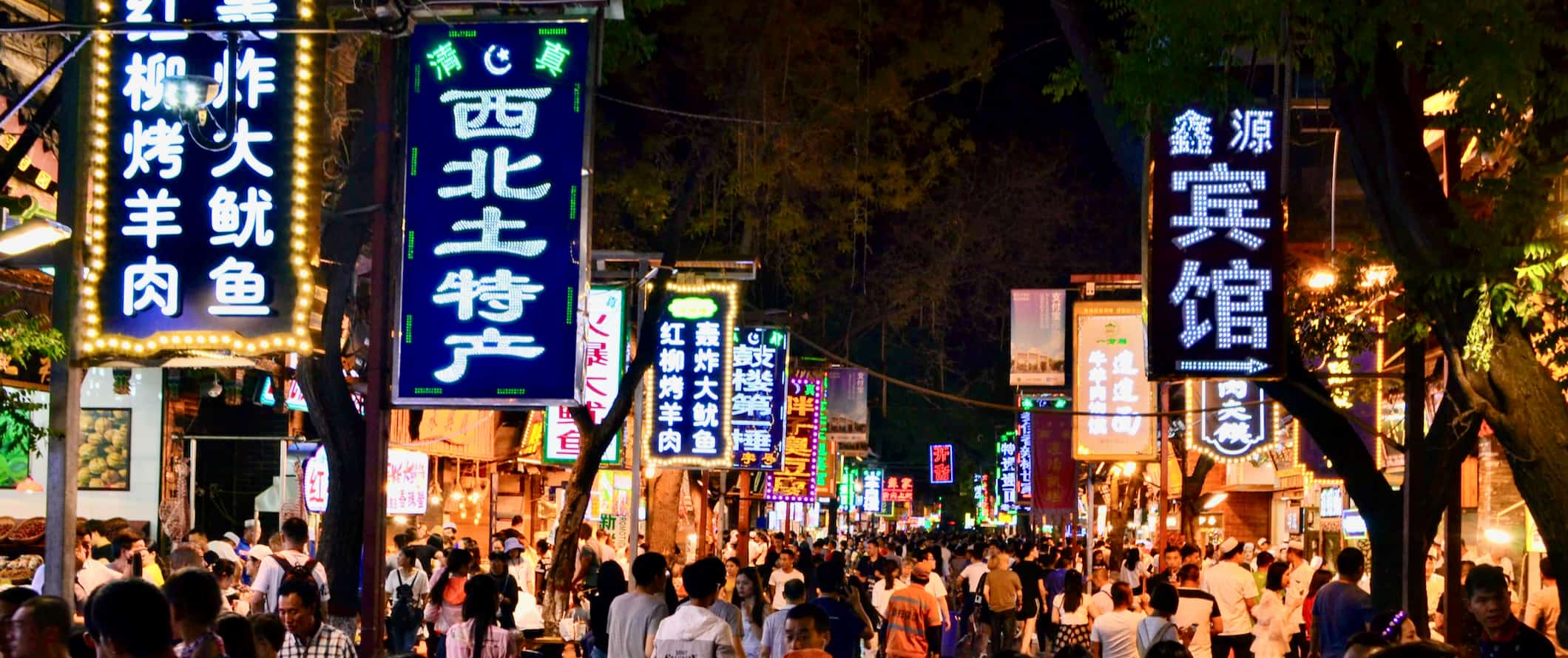
While most cities in China are great to discover on foot, the pollution can be quite hard on the body for extended periods. Be sure to check the air quality every morning before heading out.
Bus – Buses are generally cheaper than trains when it comes to intercity travel so they are your best bet for short distances (anything under 8-10 hours). For example, the 9-hour ride from Beijing to Anshan is around 220 CNY while the train is between going to be at least 350 CNY (and the train only saves you 90 minutes). The two-hour bus ride from Beijing to Tianjin is around 80 CNY while the trip from Shanghai to Hangzhou is 3 hours and costs around 120 CY.
Train – For long-distance travel around the country, trains are an affordable and often unique choice. On a high-speed train, the ticket from Beijing to Shanghai is around 555 CNY for 2nd class, around 935 CNY for 1st class, and around 1,800 CNY for a VIP seat. The journey takes around 4.5 hours.
For the full-day train that takes between 14-22 hours, a soft sleeper ticket is 525 CNY while a superior sleeper is 880 CNY. You can also get a regular hard sleeper seat for just 180 CNY but 22 hours in a seat is asking a lot!
The 5-6 journey ride from Beijing to Xi’an will cost 515 CNY for a second-class seat, 825 CNY for a first-class seat, and 1,630 CNY for a VIP ticket.
For overnight trains, keep in mind that the lower bunk is usually cheaper as it is closer to the noise. Top bunks will be more expensive, though they occasionally have very little space to offer (even though you pay more); it is not uncommon to be unable to sit all the way up. But you do get more privacy, which is worth it in my opinion!
Flying – There are plenty of regional carriers in China when it comes to flights. In fact, there are over 30 domestic airlines in the country! Some of the larger ones are Air China, China Eastern, China Southern, and Southwest Airlines. Just keep in mind that many flights rarely leave on time, so be mindful of your connections when booking!
Round-trip flights from Beijing to Shanghai can cost as little as 1,150 CNY for the two-hour journey.
From Beijing to Hong Kong will cost at least 900 CNY and take just under four hours. Xi’an to Shanghai will cost at least 950 CNY and take just over two hours. Beijing to Taipei will cost around 1,600 CNY and take just over three hours.
Car Rental – China does not recognize the International Driving Permit, making it virtually impossible to rent a car here unless you apply for a Chinese license. I don’t advise renting a car here.
When to Go to China
Since China is such a large country, climate and temperature change drastically from region to region. Sub-tropical Hong Kong is going to have much different weather than the steppes of Inner Mongolia or the mountain ranges of Tibet and Western China.
Summers in China (June-August) is the peak time to visit, though it also the hottest time. Temperatures will soar into the 30s (87-92 F) and can get quite humid. The pollution and air quality can also be ongoing concerns during this time. Expect inflated prices and larger crowds during these months.
September-October is a great time to visit China, as long as you can dodge the hectic Golden Week holiday in early October. The weather will cool to just under 20C (68 F), which is much more pleasant for hiking and exploring.
Traveling to China in the winter is rare, unless you’re heading to Hong Kong where the weather is still pleasant at 20C (68 F). Places like the Great Wall are occasionally closed due to weather, and regions like Tibet can drop to -13 C (9F) overnight. That being said, China has a fun winter festival called the Harbin Ice and Snow Festival where you’ll find huge, record-breaking ice sculptures.
How to Stay Safe in China
China is quite safe for travelers owing to its heavy crack down on crime and the fact that it is a full-on surveillance state. However, there are still a few things you’ll want to keep in mind to stay safe during your visit.
For starters, watch what you eat. Sanitation standards are not exactly the most stringent here, so always use hand sanitizer before you eat and make sure you only go to restaurants that appear clean. Street food — while delicious — can also cause some upset so be prepared. You may need some time to adjust to the local cuisine upon arrival.
Petty theft is rare, though you should still take precautions. Don’t flash your valuables or leave them in unsecured pockets. Most petty thefts occur when travelers don’t pay attention to their things. Don’t be one of those travelers!
As a tourist, you’ll also likely get ripped off here and there. Expect to see inflated prices often, so be sure to ask your hostel/hotel staff for price estimates in advance if you need to go to a market. While commercial supermarkets and shops won’t be an issue, local markets and small stores might try to fleece you. Be firm and barter hard when you have to.
As for scams, they are unfortunately common here. The most common is when someone approaches you and asks to practice their English with you (they are usually a “student.” You’ll head to a café, have some tea and food, and then you’ll be stuck with the bill. As a general rule, if folks ask you to practice English with them just politely decline.
Traffic in China can also be a bit of challenge. Pedestrians don’t have the right of way, so always look both ways before crossing. When in doubt, stick to the locals and follow their lead. They know what to do!
China cracks down on drug use very hard, dishing out hard labor and death penalties to anyone caught with large amounts of drugs. You may also get extorted by the police for a bribe if you’re caught with drugs, so it’s generally a good idea to avoid all drugs while you’re here.
When you’re here, you’ll also want to avoid talking politics — especially when it comes to regions like Tibet and Hong Kong. Information about these regions is highly censored and political discussions are highly monitored online. Play it safe and avoid talking politics.
Lastly, try to avoid using illegal taxis. Marked taxis will use a meter and have set prices, so stick to them (or use the ride-sharing app DiDi). When looking for a cab you’ll likely get approached by illegal taxis. Avoid them if you can unless you’re comfortable negotiating a fare and taking an illegal ride (which I don’t recommend).
Worried about travel scams? Read about these 14 major travel scams to avoid .
The most important piece of advice I can offer is to purchase good travel insurance. Travel insurance will protect you against illness, injury, theft, and cancellations. It’s comprehensive protection in case anything goes wrong. I never go on a trip without it as I’ve had to use it many times in the past. You can use the widget below to find the policy right for you:
China Travel Guide: The Best Booking Resources
These are my favorite companies to use when I travel. They consistently have the best deals, offer world-class customer service and great value, and overall, are better than their competitors. They are the companies I use the most and are always the starting point in my search for travel deals.
- Skyscanner – Skyscanner is my favorite flight search engine. They search small websites and budget airlines that larger search sites tend to miss. They are hands down the number one place to start.
- Hostelworld – This is the best hostel accommodation site out there with the largest inventory, best search interface, and widest availability.
- Booking.com – The best all around booking site that constantly provides the cheapest and lowest rates. They have the widest selection of budget accommodation. In all my tests, they’ve always had the cheapest rates out of all the booking websites.
- Get Your Guide – Get Your Guide is a huge online marketplace for tours and excursions. They have tons of tour options available in cities all around the world, including everything from cooking classes, walking tours, street art lessons, and more!
- SafetyWing – Safety Wing offers convenient and affordable plans tailored to digital nomads and long-term travelers. They have cheap monthly plans, great customer service, and an easy-to-use claims process that makes it perfect for those on the road.
- LifeStraw – My go-to company for reusable water bottles with built-in filters so you can ensure your drinking water is always clean and safe.
- Unbound Merino – They make lightweight, durable, easy-to-clean travel clothing.
- Top Travel Credit Cards – Points are the best way to cut down travel expenses. Here’s my favorite point earning credit cards so you can get free travel!
China Travel Guide: Related Articles
Want more info? Check out all the articles I’ve written on China travel and continue planning your trip:
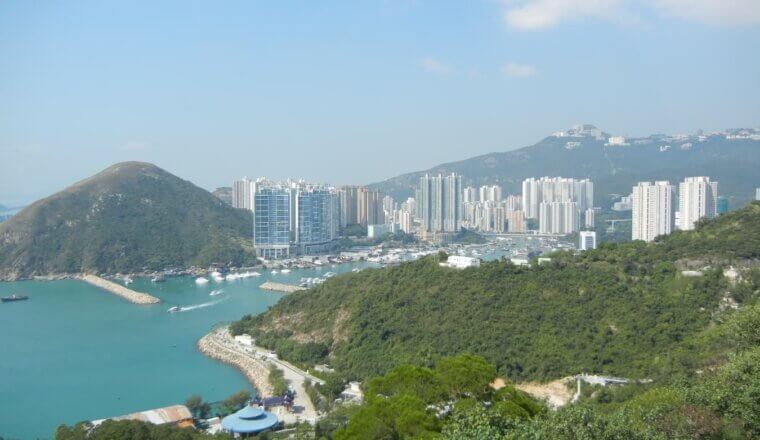
The 23 Best Things to Do in Hong Kong
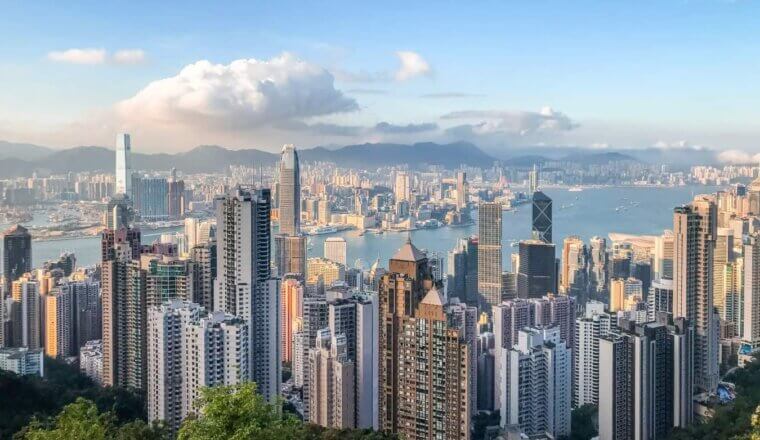
Hong Kong Itinerary: What to Do in 4 (or More) Days
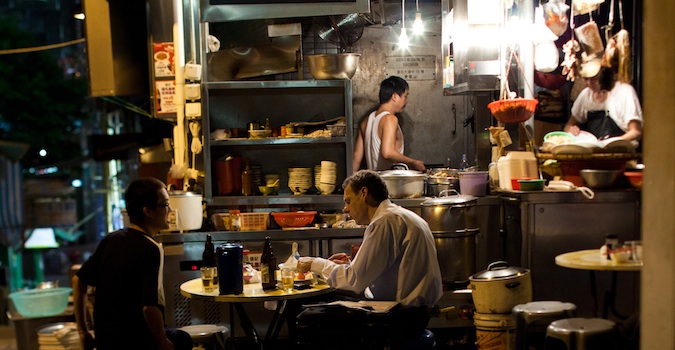
My Favorite Restaurants in Hong Kong
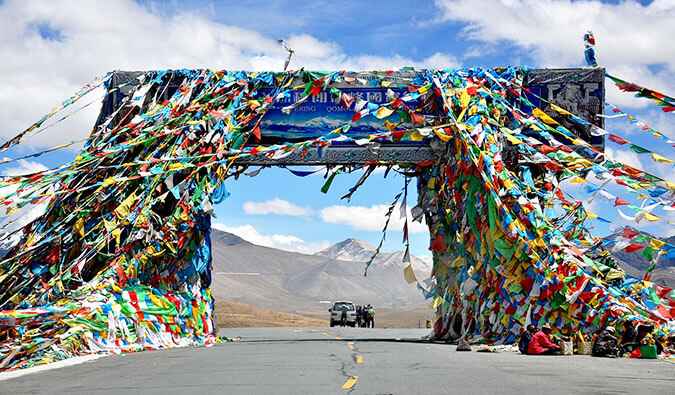
What Hitchhiking Solo as a Female in China Taught Me
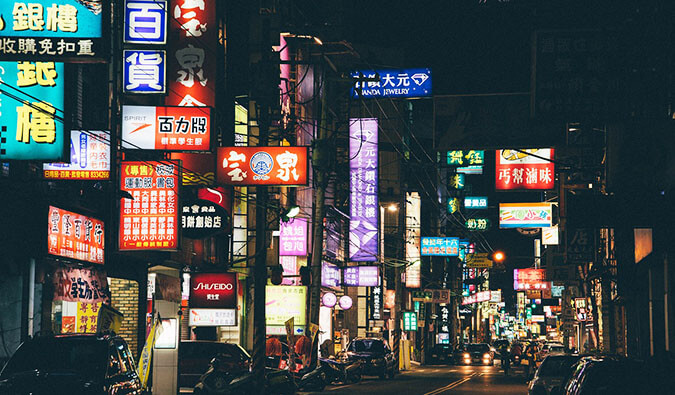
7 Lessons Learned from 3 Months in China
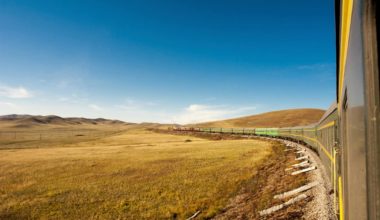
How to Travel the Trans-Siberian Railway
Get my best stuff sent straight to you, pin it on pinterest.
- Transportation
- Booking Resources
- Related Blogs

- South Africa
- Czech Republic
- United Kingdom
- United States
- Vegetarian Food
- Wildlife Travel
- Eco-friendly Accommodation
- Work With Me
- My Favourite Travel Products
China , Travel
China travel tips: advice for visiting china for the first time.
What should you expect when visiting China for the first time? These China travel tips share exactly what to look out for and how to have the best possible time. Even if you’ve been there before, you might learn something from my travel advice for your next trip!
China can be a pretty overwhelming country. Where else can claim nearly 4,000 years of civilisation, the world’s largest population and soon to be the world’s biggest economy? With so much in its favour, this beautiful country makes a fantastic place to travel to, but can also be pretty daunting if you’re visiting China for the first time.
Read on for my top tips for visiting China, including what to look out for and how to prepare.
Tip #1 – Sort out your Visa early
Most visitors to China will need a Visa, and you can apply for one up to three months before your departure date. They recommend applying for a Chinese Visa one month before you go, however, my advice would be to apply as soon as possible just in case you make any errors and your application gets refused. Trust me – we made a few mistakes on ours and only had our Visa granted the week before we were due to leave!
Follow the instructions you are given exactly, and make sure you include absolutely everything they ask for, including a photocopy of your passport, full details of where you are staying for each night of your trip, and a spare passport photo too. The most up-to-date advice can be found on the Visa for China website, so I recommend heading there first.
Tip #2 – Consider a group tour
As it was my first visit to China – a country so vast and often baffling – I was glad to be part of a small tour group on our 9 day China trip . Our tour guides and drivers took the stress out of finding our accommodation and navigating through the crowds. They also always made sure we didn’t miss out on anything. I wouldn’t have wanted to travel any other way!

Tip #3 – Take our own toilet paper and hand sanitiser with you
It’s quite rare to find toilet paper or soap in public toilets in China, so prepare to take your own. Remember to pick up spares from your hotel room and keep them in your day bag so you’re never caught short. The great thing about this is you’ll always have a tissue handy for runny noses or drying your hands too!
Tip #4 – Be prepared to squat
Sorry I seem to be talking so much about toilets… there is more to China than this, I promise! But it’s true, Chinese toilets are not like home and both boys and girls will find themselves needing to hoist up their clothes and squat. If you don’t like the sound of that, most major tourist sites and restaurants have western style pedestal toilets. Some even come with toilet paper and soap, so time your toilet trips wisely!
Tip #5 – Avoid big sites and travel on national holidays
We were (un?)lucky enough to travel over the Chinese National Day Golden Week , along with approximately 1.4 billion locals (that might be a slight exaggeration, but it certainly seemed to be the case!) Every tourist attraction was packed full of domestic tourists, and the terracotta warriors museum was so busy that we almost crowd surfed through the visit. Our guide even congratulated us on getting out the other end unharmed!
If we had known, we might have travelled on a different week and had a much more relaxed time of things. You can keep an eye on international festivals and celebrations on timeanddate.com .

Tip #6 – Be warned the food is very different to your local takeaway
If you’re a fan of your local Chinese takeaway, prepare yourself for the fact the food in China is going to be quite different. They don’t serve prawn crackers with every meal, and the restaurants we went to had never even heard of sweet and sour king prawn balls. I know right!? That said, the majority of Chinese food in China is actually better than you can get at home. Just be careful if you’re a vegetarian – I really struggled to eat a decent meal as bacon seemed to find its way into the vegetable dishes too.
Tip #7 – Remember not to tip
Even if you have amazing service in a restaurant, don’t be tempted to leave a tip. We were even chased down the street after leaving a few extra Yuan at Pizza Hut (let me off – they cater for vegetarians!) The waitress said we had forgotten our money, and just would not accept the tip.

Tip #8 – Get used to using chopsticks
Of course, chopsticks are the local form of cutlery and you’ll find them at all restaurants. If you’re not used to chopsticks, try to get a bit of practice in before you go. Most restaurants saw us coming and laid out forks, but that would be cheating, wouldn’t it?! I much prefer to do as the locals do, and even became a bit of a chopstick pro after my first visit to China!
Tip #9 – Don’t forget the smaller cities
I knew I was going to love the vibrant metropolis of Shanghai, but I was surprised to find I completely fell in love with a relatively unknown city, Suzhou, too. Despite being the size of London, Suzhou is considered a small city, and is just a couple of hours outside Shanghai. It is a little oriental Venice, complete with canals and beautifully ornate buildings.

Tip #10 – Learn a few words in Chinese
There’s a no bigger compliment than someone taking the effort to learn how to communicate with them. That’s why the Chinese will be so touched if you learn how to say ‘hello’ (nǐ hǎo = nee how) and ‘thank you’ (xièxiè = sheh sheh). Though most people will speak English, or understand your crazy hand gestures, it’s much better to learn. I used Rosetta Stone before my trip to pick up the basics, and it came in very useful as you can read in my upcoming blog!
Tip #11 – Get used to being a celebrity
This is something I have always struggled to get used to in Asia, and I found it particularly difficult on my first visit to China too. As a big group of westerners, we became a bit of a tourist attraction for the locals. People would stop and stare at us, and try to take candid pictures when we weren’t looking. It can be really off-putting, but they’re really harmless. It might be the first time they ever see someone that looks like you!

Tip #12 – Prepare for travel on sleeper train
As China is so huge, you might find yourself needing to travel on an overnight sleeper train to reach your destination. We did it twice – first between Beijing and Xian, and then Xian to Shanghai. On our first time, we were completely unprepared and left everything we needed in the bottom of our suitcase – it’s not so easy trying to find things when your case is crammed underneath your bunk bed in a tiny cabin! The second time, we got it spot on. Put all your essentials in a backpack that you can keep close: water, toothbrush, snacks and entertainment. We also took pyjamas, but most people wore things they were comfortable sleeping in like leggings and a t-shirt.
Tip #13 – Bring the right adapters
The power sockets in China are a bit strange in that most can take both European and American style plugs. So if you already have these handy, bring them along! But if you’re not sure which plug adapter to take to China, you could buy a specific Chinese adapter.
Tip #14 – Try to ignore the spitting and smoking
Again, it took me a while to get used to the cultural Chinese norms of smoking and spitting. Almost every 5 seconds I heard someone emptying their throats on the street next to me. And smoking is very common too – even in places like on trains and in restaurants. Remember it’s completely normal in China, and you’ll soon stop noticing it.

Have you been to China before? Help others out by leaving your China travel advice for a first visit to China in the comments below!
Pin for later >>>

20 thoughts on “ China Travel Tips: Advice for Visiting China For The First Time ”
Great tips! I’m hopefully going to be visiting China for the first time in March so I will definitely be referring back to your post here!
These are fantastic tips! These are all great things that first time travelers should know! Especially all the toilet-related info- nobody wants to be surprised by that! Also…what is the deal with the spitting??
Some good tips on the experience one might expect travelling in China. It’s a country I’d love to visit (I’ve been to Macau and Hong Kong this year, and also to Taiwan though I consider that a separate country even if the Chinese don’t). I’d love to visit China mainland!
This guide is pretty spot on! I visited China for the first time in 2012 and yes, I was overwhelmed at just how many people wanted to have their photo taken with me. Everywhere! I also remember the spitting (eugh!) and took more overnight sleeper trains than I care to remember!
I love this, I think you covered it all! My best friend is a Chinese lang major who had been trying for years to get me to learn how to use chopsticks, and I was like “naaah, I’ll learn when I get to China”. It was on a plane to Beijing that I remembered I never did. That first week out of two was a disaster, because the food was right in front me but it was so difficult actually making it to my mouth! Of course, I was too proud to ask for a fork. 🙂 I’m so good now, but the memories stuck 🙂
Spot on with your tips. Unfortunately the bathrooms really are a big issue in China, so agree it is important to be prepared. I didn’t do a sleeper train, I flew between cities, but I bet you do save a lot of money by doing the train.
These are super useful tips, especially because I would love to visit China in the next year or so!
This is a great post! I got stuck unexpectedly in Guangzhou once for 24 hours after a connecting flight was cancelled, and I would have fared much better with these tips! Saved for my second try at China 🙂
Love this guide! Super detailed and helpful! Your pictures are beautiful too! ❤️ I definitely think for my first trip to China I’ll go with a group. And I will take all your advice for sure!
It’s always interesting traveling on a national holiday ! ? I once went to Slovakia the day after Christmas (the 26th) which I didn’t realize is the Slovakian Christmas, and mostly everything was closed hahah. Still interesting to learn about their holiday traditions though! Thanks for the guide, (especially the part about tipping because as an American I’m always confused about tipping abroad)!!
These are great tips! Many things I didn’t know. I can’t wait to go myself!
I was supposed to move to China earlier this year, sadly enough my visa fell through and I had to change my plans! And although my change of plans worked out great, seeing this post made me realize why I wanted to move to China in the first place, and why I will make it my priority to visit as soon as I can. Seems like you had an amazing adventure!
I can remember visiting Japan and thinking how weirdly wonderful it was! I love sleeper trains, did it in East Africa and it was so much fun. Glad you got to experience some of the nuances of China.
Great tips here! It’s on my bucket list. Hopefully I’ll get over the spitting thing ?
Ahha great tip on taking a tour, I was wondering given the language problem how does one navigate through China. Also good to know there are western style toilets at certain places!! Pinning it for future visit 🙂
Wow these are great tips! I’ve never been to China but hope to one day so I’ll definitely be using this post in the future. I had no idea that tipping wasn’t customary!
I’ve never been to China so this is perfect for me. Interesting what you say about tipping… and no sweet and sour prawn balls? What? Seriously, really enjoyed this and it’s informative!
I totally would love to visit China someday, but definitely find it overwhelming which has made me hesitate. Thank you for these tips though, they are super helpful and I think I need to get over there soon!
This is so amazing and definitely very useful for anyone who hasn’t been to China yet! Love everything about your “get ready to squat” section LOL!!!
Fantastic tips for gathering good memories. Was planning to visit Macau lately. These tips would help me a lot definitely. You are a good presenter at your experience showing as China would be a pretty tough for me for travelling. Thanks a lot keep writing like this inspiration article.
Leave a Reply Cancel reply
Your email address will not be published. Required fields are marked *
Save my name, email, and website in this browser for the next time I comment.
Currently you have JavaScript disabled. In order to post comments, please make sure JavaScript and Cookies are enabled, and reload the page. Click here for instructions on how to enable JavaScript in your browser.

China City Guide
Cities by alphabet.
- Shijiazhuang
- Zhangjiajie
China Provinces
- Heilongjiang
- Inner Mongolia
- China Tickets Booking for Attractions & Shows
- Top 10 China Destinations for First Time Travelers
- 10 Places to Visit in China for a Trip of a Lifetime
- China Honeymoon: 10 Best Destinations for Couples
- 15 Most Beautiful Places in China
- 10 Best Places to Visit in China for Return Visitors
More China Travel Information
Tourism News
- Forbidden City's Bureaucrat Hinders Post-Pandemic Tourism Boom
- China Continues to Ease Its Visa Requirements
- World’s Welding History Advanced for 2,000 Years by a Sanxingdui Archeological Discovery
China Tourism
China Tours
We've detected unusual activity from your computer network
To continue, please click the box below to let us know you're not a robot.
Why did this happen?
Please make sure your browser supports JavaScript and cookies and that you are not blocking them from loading. For more information you can review our Terms of Service and Cookie Policy .
For inquiries related to this message please contact our support team and provide the reference ID below.
China's Top 15 Must-Visit Attractions: Historical, Cultural, Scenic & More
With a vast territory and a long history, China offers so much to see and explore. We have listed for you the top 15 must-visit attractions in China for any classic China tour.
Content Preview
- 1. The Great Wall
- 2. Forbidden City
- 3. Terracotta Army
- 4. Giant Pandas
- 5. Yellow Mountains
- 6. Li River
- 7. Potala Palace
8. Zhangjiajie National Forest Park
- 9. Mogao Caves
- 10. The Bund
- 11. West Lake
- 12. Daocheng Yading Nature Reserve
- 13. Victoria Harbor
- 14. Lijiang Old Town
- 15. Erhai Lake
1. The Great Wall of China in Beijing
In the eyes of most travelers, you haven't been to China if you haven't climbed the Great Wall .
One of the iconic symbols of China, the Great Wall is the longest wall in the world , an awe-inspiring feat of ancient defensive architecture. Its winding path over a rugged country and steep mountains takes in some great scenery. It deserves its place among "the New Seven Wonders of the World" and the UNESCO World Heritage Sites in China.
T he most integrated and best-preserved sections are close to Beijing. Among them, the Jinshanling section has the most beautiful scenery and is very suitable for hiking.
The Mutianyu section has a better architecture with densely spaced watchtowers and easy to climb, which is suitable for families with the elderly and children. Which Sections of the Great Wall Should I Visit?
The Simatai section is good for a night tour of the Great Wall. See our 4-Day Beijing Highlights and Great Wall Night Tour
There is no better way to explore China's Great Wall than by hiking or walking along with it. Tread the centuries-old bricks and walk through watchtower ruins. Take your time and feel the history come to life. See 1-Day Jinshanling Great Wall Hiking Tour
Discover real reviews of Highlights Travel Family 's best-rated service across trusted platforms.
2. The Forbidden City in Beijing — Imperial Palace for 24 Emperors
It was once a "palace" city where ordinary people were forbidden entry . An extravagant demonstration of ancient Chinese architecture, over 8,000 rooms with golden roofs are elegantly designed and painted in red and yellow.
The Forbidden City was the imperial palace of the Ming and Qing Dynasties for 560 years till 1911. 24 emperors lived there. Listed as World Cultural Heritage, it also houses many Chinese cultural and historical relics and treasures . See 4-Day Beijing Private Tour with Visit to Forbidden City
It is recognized as one of the five most important palaces in the world (with the Palace of Versailles in France, Buckingham Palace in the UK, the White House in the US, and the Kremlin in Russia). Read on How to Visit the Forbidden City — for Discerning Travelers
3. The Terracotta Army in Xi'an — 2,000-Year-Old Underground Army
The Terracotta Army has been laid underground for more than 2,000 years . However, in 1974, farmers digging a well uncovered one of the greatest archaeological sites in the world. In 1987 it became World Cultural Heritage.
It is significant because the hundreds of detailed life-size models represent the army that triumphed over all other Chinese armies in the Warring States Period (475—221 BC), and who were the decisive factor in forming a united China.
It raises interesting questions about why it was made, which await your consideration when you come face-to-face with soldiers of the past. See our 3-Day Essence of Xi'an Tour including Terracotta Warriors
You could make your own warriors at a cave-dwelling where there are only a few craftsmen left who continue to work in a traditional way . Read more about How to Visit the Terracotta Army Hassle Free
All our tours are customized . Our travel consultants will create an itinerary based on your interests, group sizes, travel length, and other requirements.
4. Giant Pandas in Chengdu — China's "National Treasure"
The giant panda is not only deeply loved by the Chinese, but by many foreigners too, and not just children. Although there are many zoos in China and elsewhere, where you can see a giant panda, the best place to see them is Chengdu — the giant panda's "hometown" .
There are three places you can see pandas close up : Chengdu Panda Breeding and Research Center, Dujiangyan Panda Valley, and Bifengxia Panda Base.
- Chengdu Panda Center is in the north of the city and is more established.
- Dujiangyan and Bifengxia Panda Bases are 1-2 hours from Chengdu and you can see pandas in their natural habitat.
- You can get even closer to the pandas by taking a volunteer program in Dujiangyan or Bifengxia Panda Valley . See our 1-Day Dujiangyan Panda Volunteer Program Tour
Read more about How to Plan a Panda Tour
5. The Yellow Mountains near Shanghai — Legendary Wonders
In east China, close to Shanghai and Hangzhou, the Yellow Mountain Scenic Area (Huangshan) woos travelers with its five wonders : sunrises , seas of clouds , oddly-shaped rocks , twisted pine trees , and hot springs . The Yellow Mountains are the most famous peaks in China.
The villages nearby such as Hongcun Village were once considered to be the utopia of ancient China . Villagers have diverted water into "house gardens" and "water yards", which exist only in this village. The village, in its breathing-taking setting, looks like a Chinese painting. Canola flowers in spring can be the icing on the cake.
Bishan Village is the best choice if you want to enjoy some quiet moments with your partner. Stay in a typical Hui-style inn, feel the freshness of the air on an early morning walk, and drink a coffee while enjoying nature in its unspoiled beauty. See our 3-Day Ancient Villages and Yellow Mountains Tour
6. The Li River in Guilin & Yangshuo — China's Most Celebrated Scenery
The karst landscape along the Li River has captured the heart of artists. Generations of Chinese painters and poets have been inspired by the beauty of nature there, using their pens and brushes to capture the breathtaking natural scenery. When Chinese travelers seek a place for natural beauty, they first think of Li River and Yangshuo .
The Li River was listed as one of the "World's Top Ten Watery Wonders" by America's National Geographic Magazine. Several world-famous figures have visited the Li River, including former US Presidents Bill Clinton and George Bush (senior), and Bill Gates.
The 83-kilometer-long section of the Li River between Guilin and Yangshuo is the most beautiful. The river landscape is decorated with startling hills, steep cliffs, and farming villages, and is lined with bamboo groves.
Taking a leisurely cruise or a 3–4-hour family-friendly moderate hike (more on Li River hiking ) are good ways to enjoy the Li River's beauty.
Guilin & Yangshuo offer many interesting activities. You could challenge yourself to an SUP (stand-up paddleboard, i.e. a mini raft) on the Yulong River, take a bamboo raft , have a cycling tour into the countryside, or take an exciting drive with an all-terrain vehicle . See 5-Day Dynamic Guilin and Yangshuo Tour
7. The Potala Palace in Tibet — Heart of the Roof of the World
The Potala Palace is a symbol of Tibet . In 1994 it was declared a UNESCO World Cultural Heritage Site. It is a huge treasure house of materials and articles from Tibetan history, religion, culture, and art. The palace is widely known for its precious sculptures, murals, scriptures, Buddhist statues, antiques, and religious jewelry housed within it.
You could witness the architectural miracle containing the regal heritage of Tibet, listen to stories of Dalai Lamas who lived in the palace, and view the palace from the four best angles .
Tibet doesn't accept independent travelers . Traveling with a travel agency is required. Read more about Tibet Travel Restrictions or contact us to explore the main highlights from Lhasa to Everest Base Camp. See our 8-Day Lhasa to Everest Base Camp Private Tour
Zhangjiajie National Forest Park , the inspiration of Avatar, is a must-see place for its out-of-this-world scenery . It is huge with many different scenic areas. The "floating mountains and peaks" that inspired Avatar are concentrated in this park.
The top-rated scenic areas are Yuanjiajie, Tianzi Mountain, and Gold Whip Stream. These three areas can be visited by tourists of any age.
Walking is not hard at the main attractions, where cable cars, elevators, a tram, and shuttle buses are available and concrete paths and steps have been built. See our 4 Days Essence of Zhangjiajie
9. The Mogao Caves in Dunhuang
"In the West, there is the Louvre; in the East, there are the Mogao Caves."
The Mogao Caves are famous for their exquisite murals and Buddhist statues . The Mogao Caves were included in UNESCO's world cultural heritage list in 1987.
Artists from different periods of the Middle Ages left their work there. All kinds of works spanning over one thousand years complement each other.
Standing out in the desert, the Mogao Caves are like a glittering pearl that adorns the Silk Road .
In addition to visiting these wonderful caves, you could get some hands-on archaeological experience. We can take you to the Dunhuang Research Academy. There, you can linger over copies of murals created by masters and can copy a sample mural on a mud slab with your own hands under the guidance of the teacher.
- 5-Day Dunhuang In-Depth Private Tour including Visit to Mogao Caves
- 13-Day Beijing–Xi'an–Dunhuang–Urumqi–Shanghai Tour - Silk Road Highlights and China's Gateway Cities
10. The Bund in Shanghai — Stunning Skyline, Colonial Architecture
The Bund is one of the most recognizable architectural symbols of Shanghai. It showcases the world with its colonial European buildings and skyscrapers on the other side of the Huangpu, housing one of the world's foremost business districts.
The Bund was Shanghai's most prosperous area in the late 19th century and early 20th century. When the first British company opened an office at the Bund in 1846, it became the epitome of elegance .
one of the best ways to explore the Bund is to take an in-depth cultural walk where you could step into some of the iconic old buildings and learn about the stories behind them. A night cruise on the Huang Pu Rover could also be a good choice.
11. West Lake in Hangzhou — Paradise on Earth
Hangzhou is renowned as China's "paradise on earth" owing to its beautifully crafted landscape . West Lake was created after the Chinese love for garden-style parks for recreation.
West Lake is a place of tranquility where urbanity becomes a silhouette on the northeast horizon and mountains near and far surround it on the other three sides. The occasional pagoda and Chinese-style arched bridge add atmosphere to the tree-lined walkways, verdant islands, and hills.
To admire the beauty of West Lake, you can leisurely bike around the lake, walk around the lake, or take a short cruise on the lake . We could also find a perfect location for you to enjoy afternoon tea while enjoying the beautiful view of West Lake. See 4-Day Shanghai & Hangzhou with Watertown Tour
12. Daocheng Yading Nature Reserve — Gemstone-Colored Lakes, Colorful Forests, Meadows
Daocheng Yading Nature Reserve is called "the last pure land on earth" and "the last Shangri-La" due to its breathtaking natural scenery.
"I want to go there with my sweetheart to see the clear blue sky, the snowcapped mountains, and the golden meadows, to experience an autumn fairy tale." A Chinese romantic drama movie, I Belonged to You , made Daocheng a desirable romantic place to visit.
As early as 1928, the Austrian-American explorer Joseph F. Rock visited Daocheng and captured its beauty, printing pictures of it in the National Geographic magazine and making it known to the world .
The Tibetan cultural experience is another highlight of this route . You can see many ancient monasteries and Tibetan-style houses during the trip.
- 8-Day Chengdu to Shangri-La Adventure Tour - Chengdu, Xinduqiao, Daocheng, Riwa, Xiangcheng, and Shangri-La
- 9-Day Panorama Western Sichuan Tour — Chengdu, Wolong (Baby Pandas), Rilong, Danba, Tagong, Litang, Riwa, Yajiang, and Moxi
All our tours can be customized. The itinerary can be adjusted according to your group size, time, interests, and other requirements. Just contact us .
13. Victoria Harbor in Hong Kong — Mighty Skyscraper Skyline
The view over Victoria Harbour from Victoria Peak is to Hong Kong as climbing the Great Wall is to China ; it offers the iconic outlook over Hong Kong's "high rise" to success and prosperity.
Victoria Peak is the best spot to have a bird's eye view of Hong Kong . Viewed from the peak, both day and night scenes are worth taking in. See high-rise buildings around the busy Victoria Harbour stretching out towards the Chinese mainland. At night the scenery is gorgeous when the Symphony of Lights of various buildings dances in unison .
14. Lijiang Old Town in Yunnan — Cobbled Pedestrian Streets, Small Waterways
Lijiang Old Town in Yunnan is characterized by ancient cobbled streets, stone bridges, and water-wheel-driven canals decorated with flowers. Shops, cafés, bars, restaurants, snack stalls, and hotels can be found everywhere .
The big waterwheels are a landmark of Lijiang Old Town. As you enter the old town, you will see them. The river flowing through the old town keeps them rotating. Bar Street is next to them, which is busy at night.
You could also go to Naxi Hieroglyphs and Painting Exhibition Hall to experience Naxi art . The Naxi are the only people who still use hieroglyphs to write in the world .
- 8-Day Kunming, Dali, Lijiang, and Shangri-La Tour - Meet the Amazing Beauty of Yunnan
- 9-Day Yunnan Family Tour - Kunming, Dali, Lijiang, and Shangri-La
All our Yunnan tours can be customized. Contact us to create a trip for you according to your group size, time, budget, interests, and other requirements.
15. Erhai Lake in Dali — One of the Most Beautiful Lakes in China
Erhai Lake is the most beautiful place in Dali . It is a plateau lake. Erhai Lake is in the shape of an ear, hence its name Erhai ('Ear Sea'). This plateau lake is like a deep blue gem set in the green land. The water of the lake is calm and blue. The soft and gentle wind by the lake will make you feel relaxed.
Every December, flocks of black-headed gulls from Siberia fly in to spend the winter at Erhai Lake .
Biking is the best way to travel around the lake . Capturing the beauty of the landscape bathed in sunshine and breezes is a real pleasure. There are two cycle routes around Erhai Lake : Haixi (on Erhai's west shore) and Haidong (on Erhai's east shore). The Haixi route is more suitable for young or inexperienced riders. Haidong route is quiet and has panoramic views. Contact us to arrange mountain bikes with helmets for you.
- 4-Day Dynamic Dali Tour - Hike and Bike
- 6-Day Kunming, Dali, and Lijiang Tour - Yunnan Ethnic Minorities Tour
- 7-Day Dali, Lijiang, and Shangri-La Tour - A Feast of Landscapes and Ethnic Minority Culture
The Most Popular China Tour Itineraries
Our tour services are personalized . We will help you to maximize your travel experience by suggesting the optimal trip for the time you have and the places you want to see. Just contact us .
- The Golden Triangle (8 days): Beijing, Xi'an, and Shanghai — the most popular destinations for a first trip
- Classic Wonders (11 days): Beijing, Xi'an, Guilin, and Shanghai — classic architecture, culture, and scenery
- Find more ideas from our China tours .
- 2-Week Private China Tour: Beijing–Xi'an–Lhasa-Shanghai
- 9-Day Beyond the Golden Triangle
- 11-Day China Family Tour
- 12-Day Beijing, Xi'an, Guilin, Shanghai Tour for Your Summer Vacation
- 15 Best Places to Visit in China (2024)
- Best (& Worst) Times to Visit China, Travel Tips (2024/2025)
- How to Plan a 10-Day Itinerary in China (Best 5 Options)
- 8 Days in China: Top 15 Tours and Itineraries (2024/2025)
- China Weather in January 2024: Enjoy Less-Crowded Traveling
- China Weather in February 2024: Places to Go, Costs, and Crowds
- China Weather in March 2024: Destinations, Crowds, and Costs
- China Weather in April 2024: Where to Go (Smart Pre-Season Pick)
- China Weather in May 2024: Where to Go, Crowds, and Costs
- China Weather in June 2024: How to Benefit from the Rainy Season
- China Weather in July 2024: How to Avoid Heat and Crowds
- China Weather in August 2024: Weather Tips & Where to Go
- China Weather in September 2024: Weather Tips & Where to Go
- China Weather in October 2024: Where to Go, Crowds, and Costs
- China Weather in November 2024: Places to Go & Crowds
- China Weather in December 2024: Places to Go and Crowds
Get Inspired with Some Popular Itineraries
More travel ideas and inspiration, sign up to our newsletter.
Be the first to receive exciting updates, exclusive promotions, and valuable travel tips from our team of experts.
Why China Highlights
Where can we take you today.
- Southeast Asia
- Japan, South Korea
- India, Nepal, Bhutan, and Sri lanka
- Central Asia
- Middle East
- African Safari
- Travel Agents
- Loyalty & Referral Program
- Privacy Policy
Address: Building 6, Chuangyi Business Park, 70 Qilidian Road, Guilin, Guangxi, 541004, China
In China, Blinken urges fair treatment of American companies
- Medium Text

SUPPORT FOR RUSSIA
Sign up here.
Reporting by Simon Lewis and Beijing newsroom; Writing by Antoni Slodkowski; Editing by Christopher Cushing and Miral Fahmy
Our Standards: The Thomson Reuters Trust Principles. New Tab , opens new tab

World Chevron
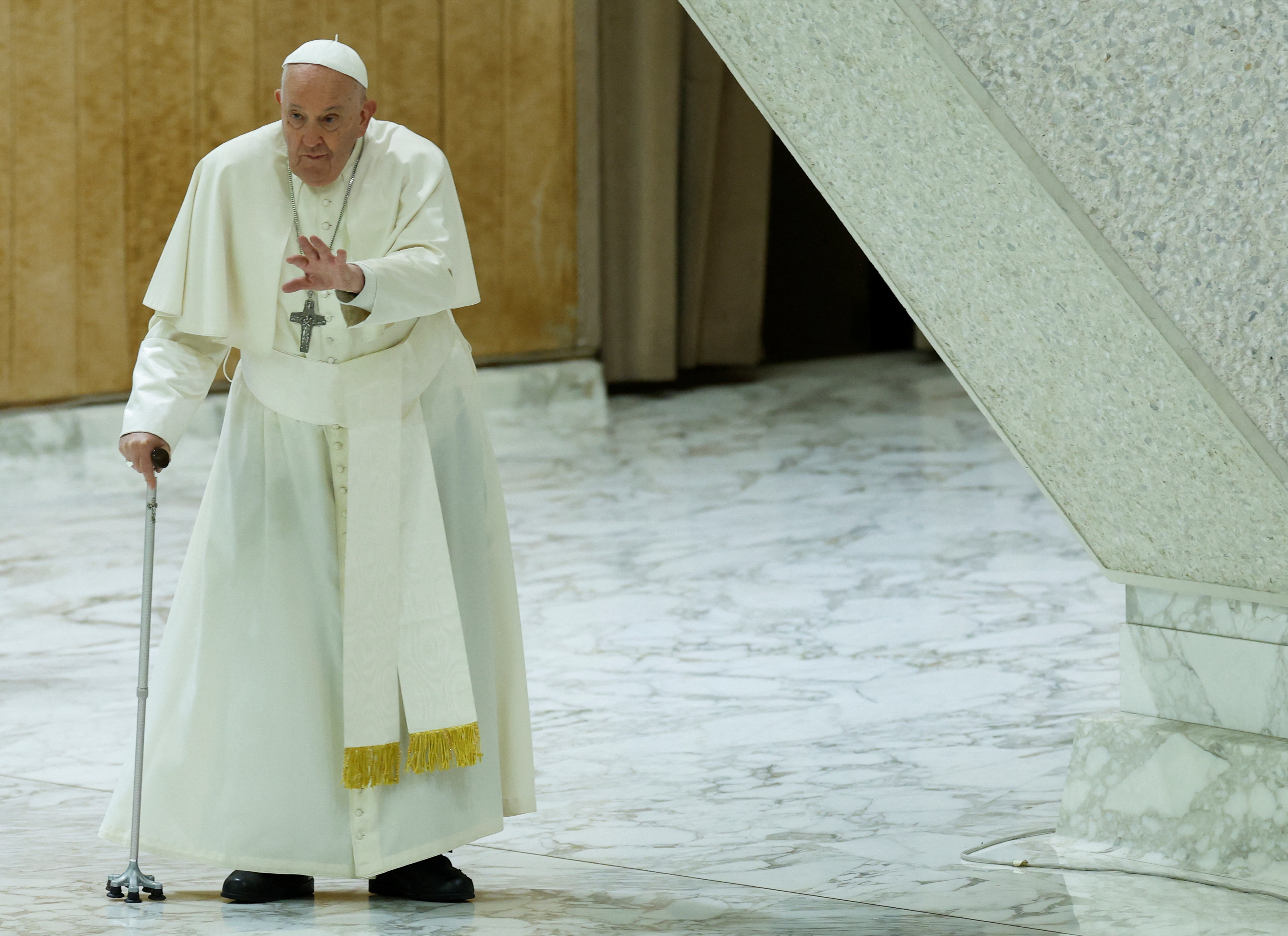
Pope visits Venice prison at start of day trip to lagoon city
Pope Francis flew into Venice on Sunday for his first trip of the year, testing his mobility and resilience after a number of health scares in recent months.
Russia's air defence systems destroyed 17 drones launched by Ukraine over its territory, Russia's defence ministry said on Sunday, with a regional official saying the attack targeted an oil storage facility in the Kaluga region.
A Russian drone attack heavily damaged a hotel in Ukraine's southern city of Mykolaiv, the governor of the broader Mykolaiv region said, with Russia's RIA news agency reporting the hotel housed English-speaking mercenaries fighting in Ukraine.

- International edition
- Australia edition
- Europe edition

Millions at risk of floods in China’s Guangdong province after heavy rain
Officials urge municipalities to begin emergency planning after major rivers and reservoirs threaten to overflow
Major rivers, waterways and reservoirs in China’s Guangdong province are threatening to unleash dangerous floods, forcing the government to enact emergency response plans to protect more than 127 million people.
Calling the situation “grim”, local weather officials said sections of rivers and tributaries at the Xijiang and Beijiang river basins are hitting water levels in a rare spike that only has a one-in-50 chance of happening in any given year, the state broadcaster CCTV news said on Sunday.
China’s water resource ministry issued an emergency advisory, CCTV reported.
Guangdong officials urged departments in all localities and municipalities to begin emergency planning to avert natural disasters and promptly disperse disaster relief funds and materials to ensure affected people have food, clothing, water and a place to live.
The province has experienced torrid downpours for several days and strong winds due to severe convective weather, which has affected several parts of China over the past few weeks.
A 12-hour stretch of heavy rain, starting from 8pm (1200 GMT) on Saturday, battered the central and northern parts of the province in cities of Zhaoqing, Shaoguan, Qingyuan and Jiangmen.
Almost 20,000 people have been evacuated in Qingyuan, according to state media, and some power facilities in Zhaoqing were damaged, cutting power to some places.
Officials in Qingyuan also suspended classes in kindergartens, primary and secondary schools, according to local media.
“Please look at Zhaoqing’s Huaiji county, which has become a water town. The elderly and children at the countryside don’t know what to do with power outages and no signal,” said one user on the popular social media site Weibo.
Raging muddy floodwaters swept one vehicle down a narrow street in Zhaoqing, showed a video released by Hongxing News.
“It rained like a waterfall for an hour and a half on the highway driving home last night,” said another Weibo user. “I couldn’t see the road at all.”
The authorities in Qingyuan and Shaoguan in Guangdong also suspended ships from travelling through several rivers, with maritime departments dispatching forces to be on duty, and coordinate the emergency tugboats and emergency rescue vessels.
Many hydrological stations in the province are exceeding water levels, weather officials warned, and in the provincial capital, Guangzhou, a city of 18 million, reservoirs have reached flood limits, city officials announced on Sunday.
Data showed 2,609 hydrological stations with daily rainfall greater than 50mm (1.97in), accounting for about 59% of all observation stations. At 8am on Sunday, 27 hydrological stations in Guangdong were on alert.
In neighbouring Guangxi, west of Guangdong, violent hurricane-like winds whipped the region, destroying buildings, state media video footage showed. Some places have also experienced hailstones and major flooding, CCTV said.
In another video, rescuers could be seen trying to save an elderly person clinging to a tree half-submerged in floodwaters.
As of 10am, 65 landslides were recorded in the city of Hezhou located in Guangxi, state media reported.
- Extreme weather
- Asia Pacific

Kenya flood death toll rises as more torrential rain forecast
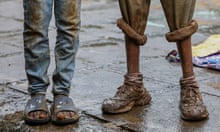
Weather tracker: heavy rainfall causes flooding and death in east Africa

Global heating and urbanisation to blame for severity of UAE floods, study finds
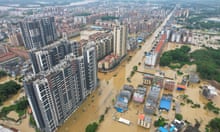
China floods: four killed in Guangdong sparking concerns over extreme weather defences

‘Fields are completely underwater’: UK farmers navigate record rainfall

Weather tracker: rains bring deadly flash floods to Afghanistan and Pakistan

Dubai floods: Chaos, queues and submerged cars after UAE hit by record rains

Desert city of Dubai floods as heaviest rainfall in 75 years hits UAE

Don’t blame cloud seeding for the Dubai floods
Most viewed.
- Share full article
Advertisement
Supported by
When U.S. Diplomats Visit China, Meal Choices Are About More Than Taste Buds
Visits to China by American officials like Secretary of State Antony J. Blinken can bring fame to local restaurants, as well as scrutiny to the dignitaries.

By Yan Zhuang
Beijing beer made with American hops, to highlight the trade relationship between the two countries. Tibetan food, to send a human rights message. Mushrooms with possible hallucinogenic properties, just because they taste good.
Where, what and how American dignitaries eat when they visit China is a serious matter. Choices of restaurants and dishes are rife with opportunities for geopolitical symbolism, as well as controversy and mockery. Chopstick skills — or a lack thereof — can be a sign of cultural competence or illiteracy.
An exorbitantly expensive meal can make an official look out of touch. Too cheap or informal, and you risk appearing undignified. Authenticity, history, cooking technique and taste can all affect the perception of a meal choice.
When Secretary of State Antony J. Blinken started a trip through China on Wednesday, part of the Biden administration’s efforts to stabilize the relationship between the two countries, some on Chinese social media wondered whether he would have time on his visit to Shanghai to stop and try some of the city’s famous xiaolongbao (soup dumplings).
One recommendation that he do so came with something of a political warning: “Eating xiaolongbao is just like handling international relations,” a commentator wrote on Weibo . “If your attention slips even a little, you’ll burn your mouth.”
Mr. Blinken did in fact visit a renowned soup dumpling restaurant that night. It’s unclear how much he considered the symbolism of his dumplings, but by indulging in a traditional popular snack, and by attending a basketball game, the optics suggested there was a more cordial spirit than on the trip he made last year, soon after a Chinese spy balloon drifting across the United States had heightened tensions.
While in Beijing, Mr. Blinken visited a notable establishment, in addition to the city’s restaurants: Li-Pi Records. Mr. Blinken — a musician who has touted “musical diplomacy” — bought two records: an album by the Chinese rocker Dou Wei, and Taylor Swift’s “Midnights,” which he described as a successful American export.
Mr. Blinken’s eating habits have drawn far less interest than that of Treasury Secretary Janet Yellen. Over two trips, this month and last year, her meals in China attracted so much attention that the state-run Global Times deemed it a form of “food diplomacy.”
Last year, Ms. Yellen made headlines when, at a restaurant in Beijing serving cuisine from Yunnan Province, she ate mushrooms that were revealed to be mildly toxic and could cause hallucinations if not cooked properly.
Ms. Yellen later said that she was not aware of the mushrooms’ potential hallucinogenic properties when she ate them and felt no abnormal effects. Still, the story sparked a brief craze for the mushrooms in China.
This month, during a four-day trip to China, Ms. Yellen visited a famed Cantonese restaurant in Guangzhou, and a Sichuan restaurant in Beijing. The dishes she ordered were quickly posted online, drawing broad approval from commenters for the variety and affordability of the dishes ordered, her chopstick skills and the fact that she and her team sat among other diners instead of in a private room.
The dishes Ms. Yellen and her team ordered were classic meals from their respective regions and were not modified to foreign tastes, according to Fuchsia Dunlop, a London-based cook and food writer who specializes in Chinese cuisine.
“They haven’t chosen really expensive, show-off dishes and ingredients,” Ms. Dunlop said, speaking about the Sichuan meal. “This is very much what everyday people in Sichuan like to eat. This menu was chosen for flavor, not prestige.”
According to a Treasury Department spokeswoman, the department generally solicits suggestions from staff at the local embassy for restaurant recommendations when Ms. Yellen travels. Then, Ms. Yellen will research the restaurants herself and make the final decision.
On occasion, specific establishments will be chosen to convey a diplomatic message, the spokeswoman added. She cited Ms. Yellen’s visit this month to a brewery in Beijing that uses American hops, aimed to highlight the significance of American agricultural exports to China.
Some restaurants where Ms. Yellen has dined have capitalized on her fame, like the Yunnan restaurant where she ate the mushrooms, which released a set menu based on what she ordered, called the “ God of Money ” menu, a nod to her position as Treasury secretary.
Ms. Yellen isn’t the first American dignitary to turn Chinese restaurants into overnight sensations. In 2011, a visit by then-Vice President Joe Biden to a Beijing noodle restaurant sent its business skyrocketing, according to Chinese state media, and led the restaurant to create a “Biden set” noodle menu.
In 2014, after Michelle Obama visited a hot pot restaurant in the city of Chengdu, the restaurant said it would create an “American First Lady” set menu. Articles in Chinese media noted approvingly that Mrs. Obama was able to handle the spicy soup, which was not toned down for a foreign palate.
Her visit to a Tibetan restaurant in the same city, however, attracted controversy, and her staff at the time readily acknowledged that the venue had been chosen deliberately to show support for the rights and religious liberties of Tibetans in China.
But for Mrs. Obama’s husband and other U.S. presidents, Chinese cuisine served at official state banquets is often Americanized or customized to better suit a foreign palette.
In 2009, President Barack Obama was served a Chinese-style beef steak and baked fish, according to Chinese state media, and in 2017, President Donald J. Trump ate dishes including kung pao chicken and stewed boneless beef in tomato sauce. Both meals finished with fruit ice cream, which is highly atypical of traditional Chinese meals.
But even those meals may hint at an international trend, Ms. Dunlop said. Mr. Obama’s menu contained “very safe, conservative choices that would be appealing to foreigners,” she said, while Mr. Trump’s menu was slightly more contemporary and showed off more Chinese cooking techniques.
That shift, Ms. Dunlop said, “may reflect China feeling a bit more confident with Westerners’ familiarity with real Chinese food” in 2017 versus 2009.
Ana Swanson contributed reporting.
Yan Zhuang is a Times reporter in Seoul who covers breaking news. More about Yan Zhuang
- Election 2024
- Entertainment
- Newsletters
- Photography
- Personal Finance
- AP Investigations
- AP Buyline Personal Finance
- AP Buyline Shopping
- Press Releases
- Israel-Hamas War
- Russia-Ukraine War
- Global elections
- Asia Pacific
- Latin America
- Middle East
- Election Results
- Delegate Tracker
- AP & Elections
- Auto Racing
- 2024 Paris Olympic Games
- Movie reviews
- Book reviews
- Personal finance
- Financial Markets
- Business Highlights
- Financial wellness
- Artificial Intelligence
- Social Media
Putin announces plans to visit China in May
FILE - Russian President Vladimir Putin attends a cabinet meeting via videoconference at the Novo-Ogaryovo state residence outside Moscow, Russia, Wednesday, April 17, 2024. Putin said he plans to visit China in May, in what could become the first foreign trip for the Russian leader after he extended his rule by six more years in an election that offered voters little real choice. Putin’s inauguration is scheduled for May 7. (Gavriil Grigorov, Sputnik, Kremlin Pool Photo via AP, File)
- Copy Link copied
Russian President Vladimir Putin said Thursday he plans to visit China in May, in what could become the first foreign trip for the Russian leader after he extended his rule by six more years in an election that offered voters little real choice.
Putin announced the plans for the visit at a congress of the Russian Union of Industrialists and Entrepreneurs in Moscow. He didn’t say when exactly it would take place and didn’t offer any other details.
Putin’s inauguration is scheduled for May 7, Russian lawmakers said earlier this week. Last month, the 71-year-old Russian leader secured his fifth term in office in a vote with no real opposition, extending his 24-year rule.
Russia’s growing economic and diplomatic isolation because of its war against Ukraine has made it increasingly reliant on China, its former rival for leadership of the Communist bloc during the Cold War.
According to a recent U.S. assessment , China has surged sales to Russia of machine tools, microelectronics and other technology that Moscow in turn is using to produce missiles, tanks, aircraft and other weaponry for use in the conflict.
China has repeatedly said it isn’t providing Russia with arms or military assistance, although it has maintained robust economic connections with Moscow.
Beijing has not provided direct lethal military support for Russia and has sought to project itself as neutral in the Ukraine conflict. It has refused to condemn Moscow’s actions and declared in 2022 that it had a “no-limits” friendship with Russia. The country has denounced Western sanctions against Moscow, and accused NATO and the United States of provoking Putin’s invasion.
China has also proposed a peace plan that was largely dismissed by Ukraine’s allies, who insisted that Moscow must withdraw its forces from the neighboring country as a condition for peace.
Follow AP’s coverage of the war in Ukraine: https://apnews.com/hub/russia-ukraine

COMMENTS
Reconsider travel due to a limited ability to provide emergency consular services.Exercise increased caution due to the arbitrary enforcement of local laws.. Summary: The U.S. government has a limited ability to provide emergency services to U.S. citizens in the Macau SAR due to People's Republic of China (PRC) Ministry of Foreign Affairs travel restrictions on U.S. diplomatic personnel.
Reissued with updates to COVID-19 information. Reconsider travel to the People's Republic of China (PRC), including the Hong Kong Special Administrative Region (SAR) and the Macau SAR, due to the surge in COVID-19 cases, arbitrary enforcement of local laws, and COVID-19-related restrictions. See specific risks and conditions in each jurisdiction below.
This travel advice covers mainland China. See travel advice for the Special Administrative Regions, Hong Kong and Macao. The Foreign, Commonwealth & Development Office ( FCDO) provides advice ...
Be careful with both wild and domestic animals in China. Wash your hands carefully and regularly. Take other hygiene precautions. High pollution levels are a problem in major cities. Follow the advice from local authorities on days with harmful pollution. Full travel advice: Health.
Travelers interested in visiting China may apply for entry visas and start planning trips now. Tourism experts started getting trips on the schedule even before the return of China's tourist ...
July 19, 2023 2:41 pm (EST) After China removed most of its COVID-related cross-border travel restrictions, foreign tourists are slowly returning. Ctrip, one of China's largest online travel ...
In China, the country is ruled by a single political party. Though China is open to foreign visitors, you should be aware of political and cultural sensitivities. Avoid any demonstrations or large ...
The best of China: 14 places you won't want to miss. Feb 21, 2024 • 5 min read. Ancient Buddhas? Ultra-modern cities? Tasty dim sum? Baby pandas? Our list of the best places to visit in China has all this and more.
11-Day Classic Wonders (Beijing - Xi'an - Guilin/Yangshuo - Shanghai) 6. High-speed rail is better than flying for some journeys. A high-speed train in China. Long bus rides are no more comfortable in China than elsewhere, but China's swish new high-speed trains give you excellent intercity options.
China Travel Restrictions & Travel Advisory (Updated April 25, 2024) Updates April 25th, 2024: If you book a trip with us, we can arrange a port visa for you to travel to China. China's port visas are similar to the "visas on arrival" of some other countries. It enables a stay in China for up to 30 days. Contact us to book a trip.
It is advised to bring no more than 2kg dried mongo and no more than 400 cigarettes. China travel tips and advice for planning a China tour including things you should know before going to china such as the people, climate, visa, hotel, food, what to pack, transportation, shopping, insurance, money exchange, map, customs and more.
With its wide-ranging cultural heritage and convenient travel amenities, China is also an outstanding choice for family vacations. From the iconic Great Wall to Shanghai's soaring skyscrapers, all the way up to the "Roof of the World" and beyond, a trip to China guarantees an unforgettable, once-in-a-lifetime experience.
Zhangjiajie - a place you have to see when you travel to China. Top 5 Places to Visit in China. Mount Huangshan - the UNESCO World Heritage is one of the most scenic highlights in the world. The impressive landscape features daunting peaks, thick forests composed of oddly-shaped pine trees and dense clouds covering the sky.
According to the U.S. Department of State, traveling to China is under a level 3 travel advisory, warning Americans to reconsider.The State Department has four warning levels. The fourth is "Do ...
20 China travel tips. Prev Next Story highlights. China is an unquestionably fabulous tourist destination, but can rattle even veteran travelers. The language barrier is a big problem unless you ...
Here are some of our top China travel tips to help you prepare for your adventure. Apply for your Chinese visa early. Unless you're from Japan, Singapore or Brunei, you'll need a visa to stay in China for over 72 hours. The process for getting a tourist visa differs between countries, but you'll likely need to visit your local Chinese ...
For example, if you group with two take a China tour for 10 days, you may need to bring about 5000-6000 RMB in cash. You may spend tipping the tour guides, drivers and staff at the hotels, taking about 1000-1500 Yuan. Some other cost may spend having dinner, local food and snacks.
China Travel Costs. Accommodation - Prices start at around 30 CNY for an 8-10 bed dorm in many of the smaller cities. Expect to pay closer to 85 CNY in Hong Kong and Beijing. For a private room, prices begin around 110 CNY though expect to pay almost double that in the larger cities.
Tip #1 - Sort out your Visa early. Most visitors to China will need a Visa, and you can apply for one up to three months before your departure date. They recommend applying for a Chinese Visa one month before you go, however, my advice would be to apply as soon as possible just in case you make any errors and your application gets refused.
2. Always carry hand sanitizer with you. This ties in with number 1. Washing your hands with only cold water, and no soap, doesn't kill all the germs. That's why I recommend carrying a small bottle of hand sanitizer along with your toilet tissue. 3. Pack the right way. Don't forget the essentials for China.
TravelChinaGuide.com focuses on supplying wonderful vacations in China. Detailed introduction to over 300 Chinese cities displays the destinations' tours, attractions, hotels, transportation, food, shopping, nightlife, weather, pictures, maps and travel tips.
Data from China's National Immigration Administration showed 141 million total exits and entries in the first quarter of 2024. Foreign nationals accounted for 13 million of those, roughly a ...
The return of China's travelers has long been awaited in the travel industry, which is expected to surpass pre-pandemic levels this year by contributing $11.1 trillion to the global economy. The ...
15-Day Beijing, Xian, Chengdu, Hangzhou, Huangshan and Shanghai Tour China's Ancient Cities and Celebrated Mountains. 6. The Li River in Guilin & Yangshuo — China's Most Celebrated Scenery. The Reflection of the Limestone Peaks in the Li River. The karst landscape along the Li River has captured the heart of artists.
SHANGHAI, April 25 (Reuters) - U.S. Secretary of State Antony Blinken on Thursday called on China to provide a level playing field for American businesses as he began a visit aimed at resolving a ...
China's water resource ministry issued an emergency advisory, CCTV reported. Guangdong officials urged departments in all localities and municipalities to begin emergency planning to avert ...
Still, the story sparked a brief craze for the mushrooms in China. This month, during a four-day trip to China, Ms. Yellen visited a famed Cantonese restaurant in Guangzhou, and a Sichuan ...
Russian President Vladimir Putin said Thursday he plans to visit China in May, in what could become the first foreign trip for the Russian leader after he extended his rule by six more years in an election that offered voters little real choice.. Putin announced the plans for the visit at a congress of the Russian Union of Industrialists and Entrepreneurs in Moscow.